

BOOMTOWN
Mississippi State drives state’s economic engine
By Susan Lassetter, Graphics provided by NSPARC
A recently released, multiyear study shows that Mississippi State University isn’t just shaping young minds. It’s providing an economic boon to the Magnolia State to the tune of $3.9 billion in annual economic impact.
It’s further proof that what happens in StarkVegas, doesn’t stay in Starkville. It shapes the state. It changes the world.
Through a report provided by the National Strategic Planning and Analysis Research Center at Mississippi State University, Bulldogs can now proudly point to specific positive, statewide impacts that come wrapped in maroon and white.
We’re making smart investments with our time and funding because, at Mississippi State, we put our money where our mouth is, and this Bulldog’s got bite.
Among the 3.9 billion reasons to be proud to be a Bulldog:
• MSU delivers a 25:1 return on investment for every tax dollar received from state appropriations, generating more than $450 million in state and local tax revenue.
• The university’s Office of Research and Economic Development boasts $320 million in annual research expenditures, ranking among the top 100 research universities in the U.S. and accounting for 53% of all

research and development spending in Mississippi colleges and universities.
• The MSU Division of Agriculture, Forestry and Veterinary Medicine contributes $1.7 billion through research, outreach and direct support to Mississippi’s agricultural and business sectors and sustains more than 43,500 statewide jobs.
• The in-state network of more than 42,000 MSU alumni drives more than $1.2 billion in increased productivity and business activity.
• Through daily expenses and spending, Bulldog students contribute $41.6 million to Mississippi’s economy.
• MSU’s nearly 650,000 annual visitors generate $24.2 million in wages to support the tourism and hospitality sector.
As alumni, students, research partners, and government leaders continue to invest in our proven track record of making a big impact in Mississippi and around the world, Mississippi State will continue advancing its mission of service, learning and research to meet the needs of tomorrow.
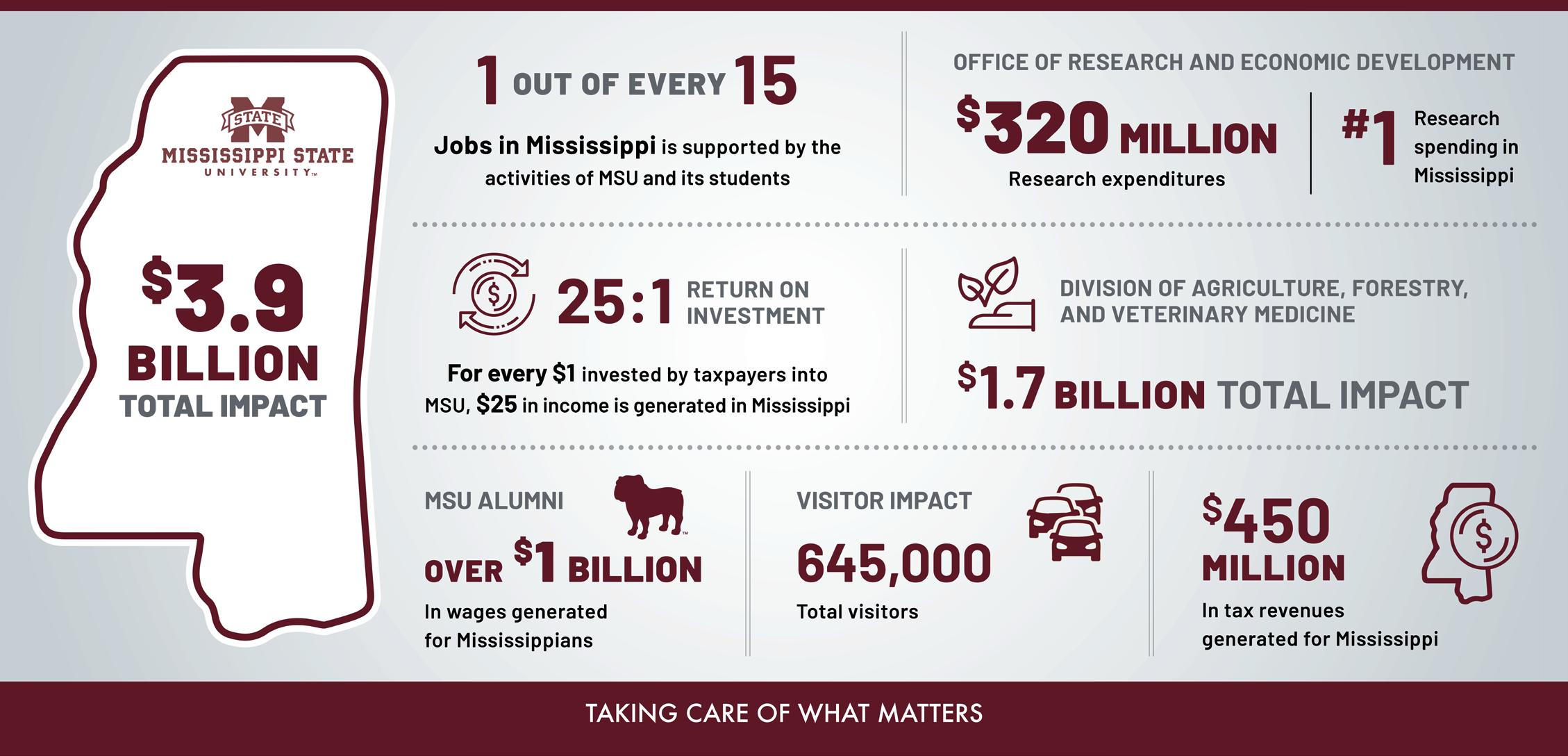
SPOTLIGHT

A HISTORIC REINVENTION: In April, MSU leaders gathered to mark the official opening of The Mill. Now home to the Division of Development and Alumni, the renovated 90,000-square-foot historic mill features a ballroom, meeting facilities and event space that draw conferences, banquets and conventions to the university and Starkville. Read the full story on page 66. Photo by Grace Cockrell

Whether staffing the front desk or teaching group fitness classes, student workers are an invaluable asset to University Recreation at Mississippi State. Through the Maroon L.E.A.D.S. initiative, these student workers, as well as the more than 2,500 others across campus, are gaining hands-on experience in communication, time management, engagement—building and other real-world skills, while building confidence and setting themselves apart long before graduation. Photo by
Emily Grace McCall
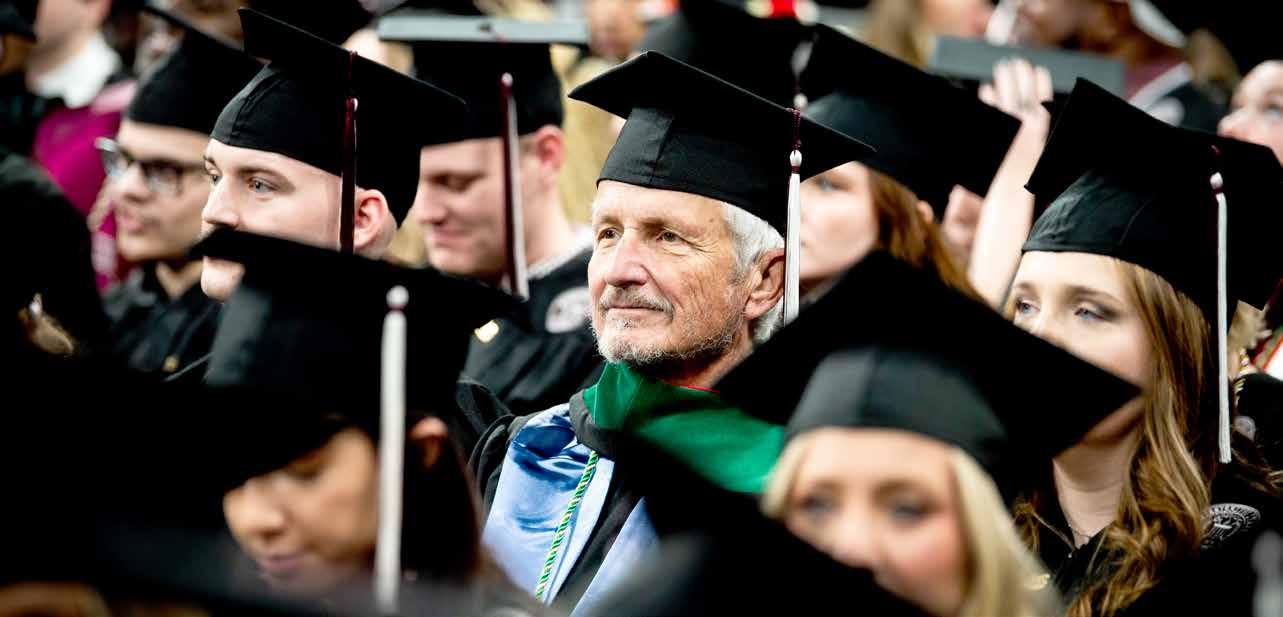
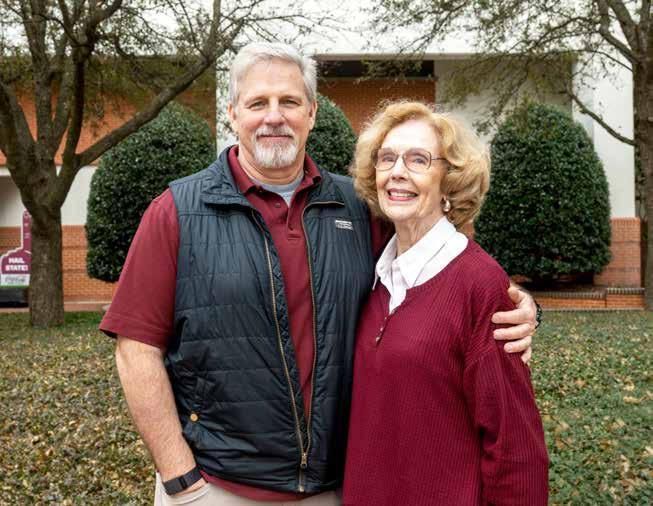



Photo by Grace Cockrell
PRESIDENT
Mark E. Keenum, ’83, ’84, ’88
VICE PRESIDENT FOR DEVELOPMENT AND ALUMNI
John P. Rush, ’94, ’02
ALUMNI ASSOCIATION EXECUTIVE DIRECTOR
Jeff Davis
VICE PRESIDENT FOR STRATEGIC COMMUNICATIONS
AND DIRECTOR OF PUBLIC AFFAIRS
Sid Salter, ’88
EDITORS
Susan Lassetter, ’07
Harriet Laird
WRITERS
Susan Lassetter, ’07
Allison Matthews, ’00
Mary Pollitz, ’16
Shunecy “Shun” Pounds, ’14, ’18
Nicole Thomas, ’98
Bethany Shipp, ’08
Sid Salter, ’88
Carl Smith, ’10
Kevin Tate, ’94
DESIGNER
Heather Rowe
PHOTOGRAPHERS
Amelia Andersson, ’18, ’22
Lana Bentley, ’21
Grace Cockrell
Emily Grace McCall, ’23, ’24
Tom Thompson, ’13
Beth Wynn
EDITORIAL OFFICE
P.O. Box 5325
Mississippi State, MS 39762
662.325.0630 slassetter@opa.msstate.edu
ADVERTISING
Leanna Smith 662.325.3360 lsmith@alumni.msstate.edu
Mississippi State University’s Alumnus magazine is published three times a year by the Office of Public Affairs and the Mississippi State University Alumni Association. Send address changes to Alumni Director, P.O. Box AA, Mississippi State, MS 39762-5526. Call 662.325.7000, or email cturner@advservices.msstate.edu.
Gone Fishing Rehabilitation opens Chadwick Lake to recreation once again
By Nicole Thomas, Photos by Lana Bentley and Grace Cockrell
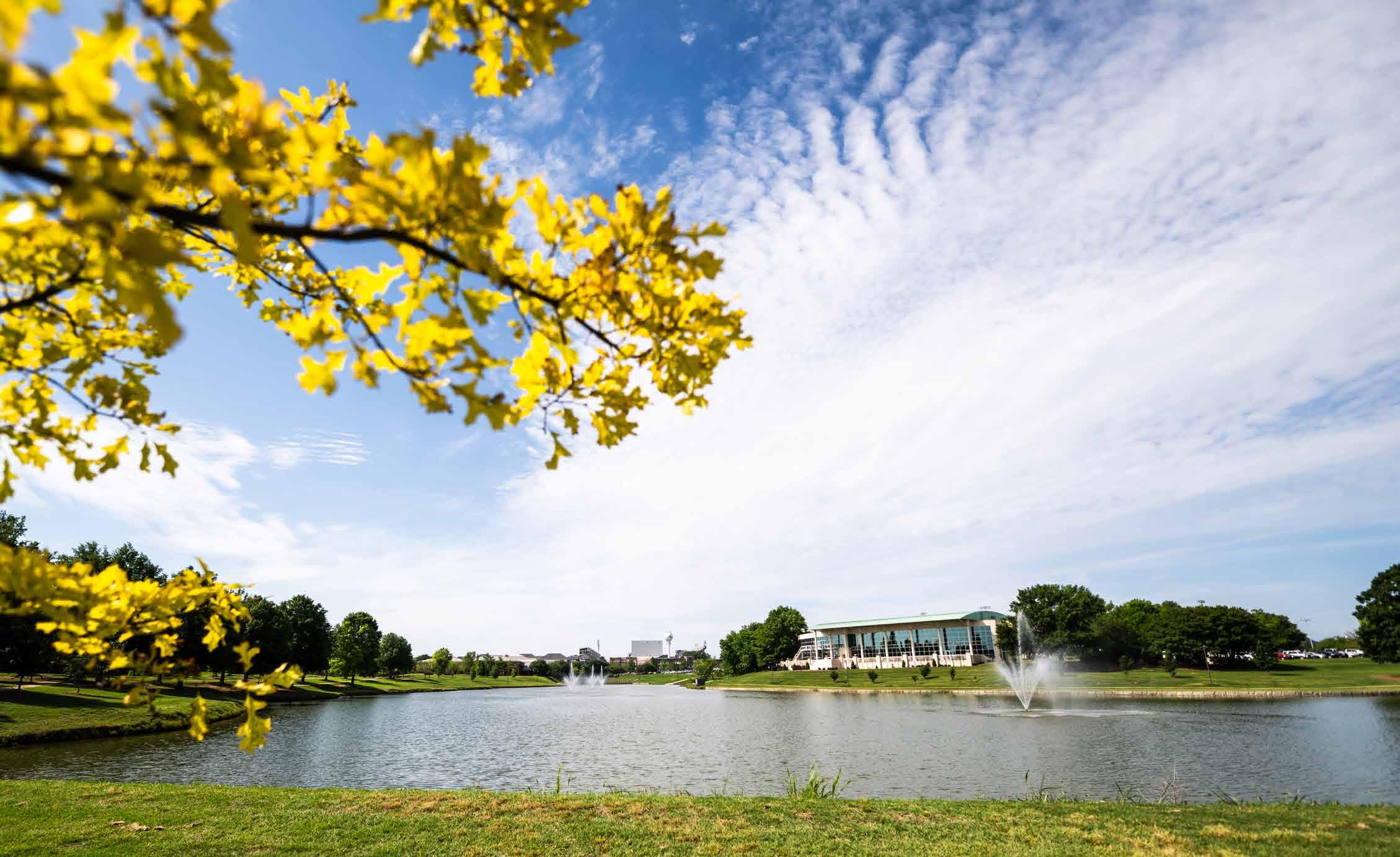
Since the 1990s, Chadwick Lake has served the Bulldog family as a resource for rest, recreation and recuperation. Now, a renewed restoration effort will allow it to thrive for generations of future Bulldogs.
“Bodies of water are incredibly valuable to communities, and the same is true for Chadwick Lake and MSU,” said Saunders Ramsey, executive director of MSU’s Campus Services. “The lake is one of those iconic outdoor spaces on campus with limitless potential.”
Located on the northeast side of campus where it anchors MSU’s athletic district, the 12-acre lake was constructed in the 1960s to serve a functional purpose. The 1990s ushered in recreational uses of the space with the completion of two major capital projects that transformed the landscape: construction of the Bryan Building, which houses Bulldog athletic administration, and the campus fitness center, the Joe Frank Sanderson Center.
With its proximity to the campus fitness and recreation center, Chadwick Lake quickly
became a popular spot for scenic strolls, while its surrounding green spaces are perfect for picnics and games of disc golf on its ninehole course along the lake’s perimeter.
“The lake is one of those iconic outdoor spaces on campus with limitless potential.” — Saunders Ramsey
Most recently, the 2013 addition of a 1-mile path around its shore helped the lake capitalize on its potential. Ramsey, a 2005 MSU civil engineering graduate, oversaw that project as a consultant with Neel-Schaffer.
“The track is one of the first projects I ever designed for Mississippi State,” Ramsey said. “It was a cornerstone of a health and wellness initiative on campus, and that really
increased the lake’s visibility and boosted its popularity.”
Upon joining the MSU staff in 2020, Ramsey was eager to reconnect with campus and redefine the outdoor spaces that shape the campus experience. He found his first opportunity in Chadwick Lake, a scenic focal point for those entering campus from Highway 182 or attending Bulldog sporting events. Once a vibrant habitat for fish, turtles and waterfowl, it was in the midst of an algae overgrowth.
“There was a layer of green algae covering the lake which signaled an imbalance in its ecosystem,” Ramsey said.
Ramsey connected with Mark Peterman, a senior research associate and applied aquatic biologist at MSU’s College of Veterinary Medicine who has studied Chadwick Lake for almost 30 years. Peterman specializes in fish health and water quality, including phycology—the study of algae.
“Green water isn’t uncommon to manmade freshwater lakes, but the algal bloom at Chadwick was significant,” Peterman said.

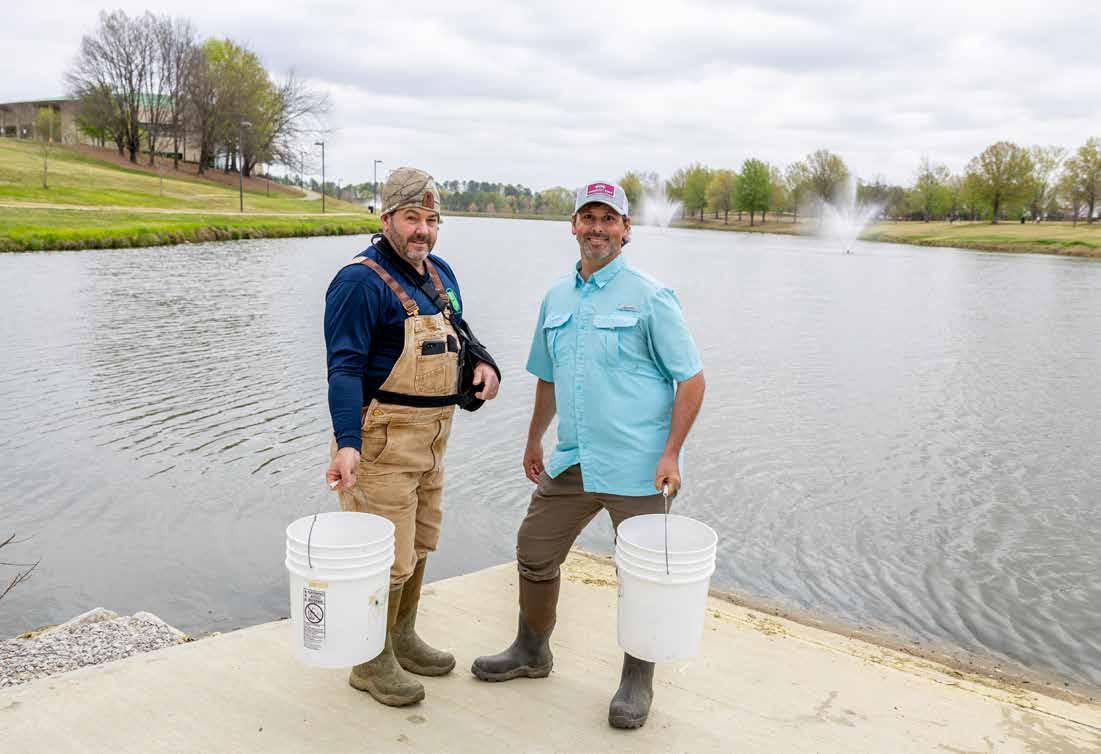
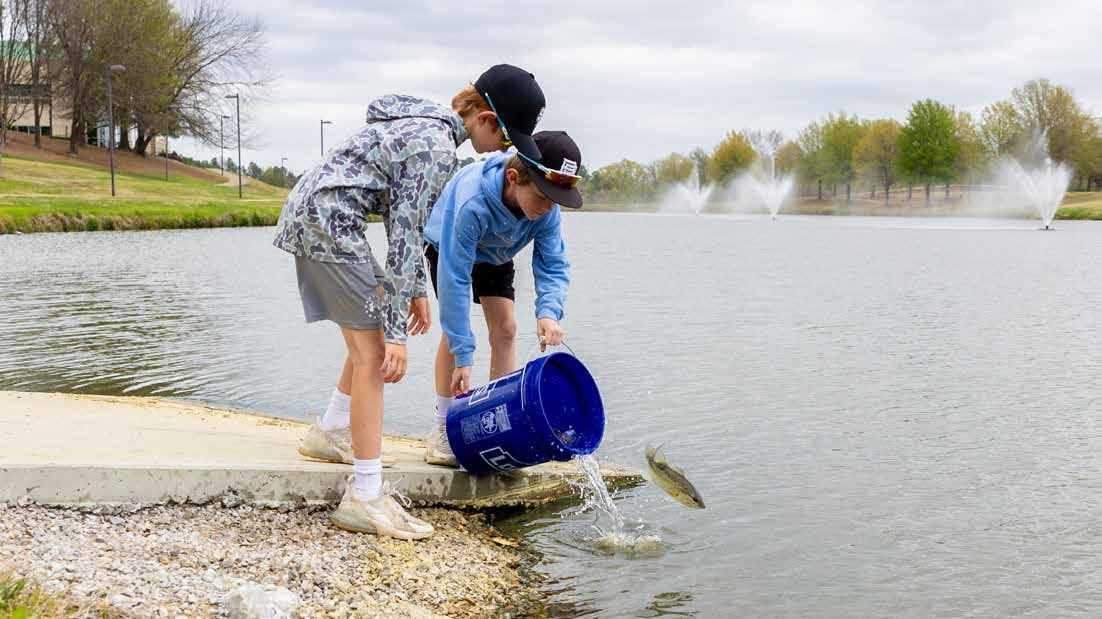
The lake’s level was lowered to target and treat the overgrowth of algae and to identify the cause of it.
“We discovered high levels of nutrients in the water column and pond sediments were the underlying causes of the algal blooms,” Peterman said.
Peterman collaborated with Campus Services to implement safe and effective algal bloom-management strategies and a comprehensive and preventative treatment plan to care for the lake and maintain a beautiful and healthy aquatic ecosystem.
In addition to introducing environmentally friendly algaecides, restoration plans included constructing a berm using natural materials to absorb excess nutrients and prevent them from entering the lake. Floating fountains attached to submersed aerators were installed in the lake to improve water circulation and increase oxygen levels. The lake also was dredged to remove nutrient-dense sediment contributing
to the excessive algae growth.
“The fountains look really nice, but they are also functional,” Peterman said. “When combined with the aerators, the water bubbles up from the bottom of the lake, and the fountains help keep it mixed to flush out nutrients, especially during periods of high rainfall. All of these efforts really worked together to calm the algae and balance the lake’s ecosystem."
The restoration efforts were so effective that Peterman applied them to aid the $1.9 billion farm-raised catfish industry.
“The same species of algae showing up at Chadwick Lake was also negatively impacting the commercial catfish industry,” he said. “After doing some research, we decided to apply the mitigation measures we used at Chadwick Lake to commercial catfish ponds, and it worked. We have a new management tool for catfish producers that’s evolved from our work at Chadwick Lake.”
A Healthy Habitat for Fish
With Chadwick Lake stabilized, Peterman began studying the health of the fish in the lake and exploring reestablishing the lake as a fishery—something he did as a graduate student in the late 1990s when he worked as an aquaculture and fisheries technician.
“When the Sanderson Center had just opened, I helped develop some outdoor programming including a catch-and-release program at the lake,” recalled Peterman, a 1996 MSU fisheries management graduate.
Last spring, Peterman recruited other MSU faculty, staff and students to form a multi-departmental effort to improve the lake’s habitat for fish and ultimately develop a plan to restore its once-thriving ecosystem. Through hands-on learning and real-world research experience, the team collected data including the variety, weight and measurements on the fish population in the lake.
Top Right: Associate director of campus grounds Jim Bo Hearnsberger, right, and Mark Peterman, an applied aquatic biologist at MSU, coordinated a catch-andrelease fishing day with members of the MSU Campus Services team and their families at a local, privately owned, overstocked pond. The catch was carefully transported and released into Chadwick Lake, helping both waterways move toward better ecological balance.
“It was a great opportunity, especially for students, to learn and apply their knowledge about sustainable ecosystem management to address contemporary issues impacting the lake.”
— Mark Peterman
“It was a great opportunity, especially for students, to learn and apply their knowledge of sustainable ecosystem management to address contemporary issues impacting the lake,” Peterman said.
Using a sampling technique called electrofishing, the students discovered the lake’s prey-to-predator fish ratio was unbalanced.
“That means there was an abundance of smaller fish such as bream in the lake, but there was an inadequate number of largemouth bass,” Peterman said.
To achieve a healthy, well-balanced fish population, the students recommended adding more largemouth bass to the lake.
“We had two options: we could purchase some larger bass, or we could catch and add them ourselves,” Peterman said.
Jim Bo Hearnsberger, an outdoor enthusiast and MSU’s associate director of
GET OUTSIDE
Though Chadwick Lake needs a little more time to reestablish its fish population before people resume fishing, the lake, as well as the rest of Mississippi State’s vast, picturesque campus, offers a variety of other outdoor activities and spaces to be enjoyed.
“The outdoor spaces at MSU are a key part of campus life that build a strong sense of community and connection to campus,” said Saunders Ramsey, executive director of MSU’s Campus Services.
• GREEN SPACES: MSU’s iconic Drill Field and Junction are favorites of students, families and campus visitors alike. Open to everyone and at the heart of MSU’s campus, they’re not just pedestrian thoroughfares or gameday hangouts—they also serve as gathering places, venues for impromptu yard games and picnic sites. They are also perfect for relaxing between classes, studying under the sun or participating in student-led activities and events.
• RELAXING RETREATS: Lounge chairs, picnic tables and hammock hangars strategically placed around campus invite students to take a break, read a book or visit with friends. These outdoor seating arrangements line the landscapes of the Cobb Institute of Archaeology, Colvard Student Union, Old Main Academic Center and Allen, Lee, Bowen and Hilbun halls.
• SCENIC VISTAS: For those seeking a quiet outdoor escape, Eckie’s Pond on the southeast side of MSU’s campus offers a serene, tranquil spot to relax, reflect and enjoy the natural beauty of campus. The university also maintains the Veteran’s Memorial Rose Garden off state Highway 182 on the north side of campus, while a bike lane on Hail State Boulevard guides riders between the pastures of South Farm.
• RECREATION OPPORTUNITIES: MSU’s campus offers two disc golf courses: nine holes around Chadwick Lake and 18 holes at the Wise Center, the home of MSU’s College of Veterinary Medicine. The Chadwick Lake area also
campus grounds, organized a catch-andrelease fishing day at a private pond in Oktibbeha County.
“We needed to catch a lot of fish,” Hearnsberger said. “I picked a Saturday in the spring and invited our Campus Services team and their families to join us to help restock Chadwick Lake.”
As almost 100 largemouth bass were reeled in, Peterman collected them in a large tank in the back of his truck and transported them to Chadwick Lake to release into the water. Some of the fish released into the lake should spawn this year.
“The lake connects us, blending history, nature and community,” Ramsey said. “We recognize the value of Chadwick Lake, and we have a tremendous responsibility to take care of it, not only because of its value and importance to campus but also to our community—to our neighbors.” n
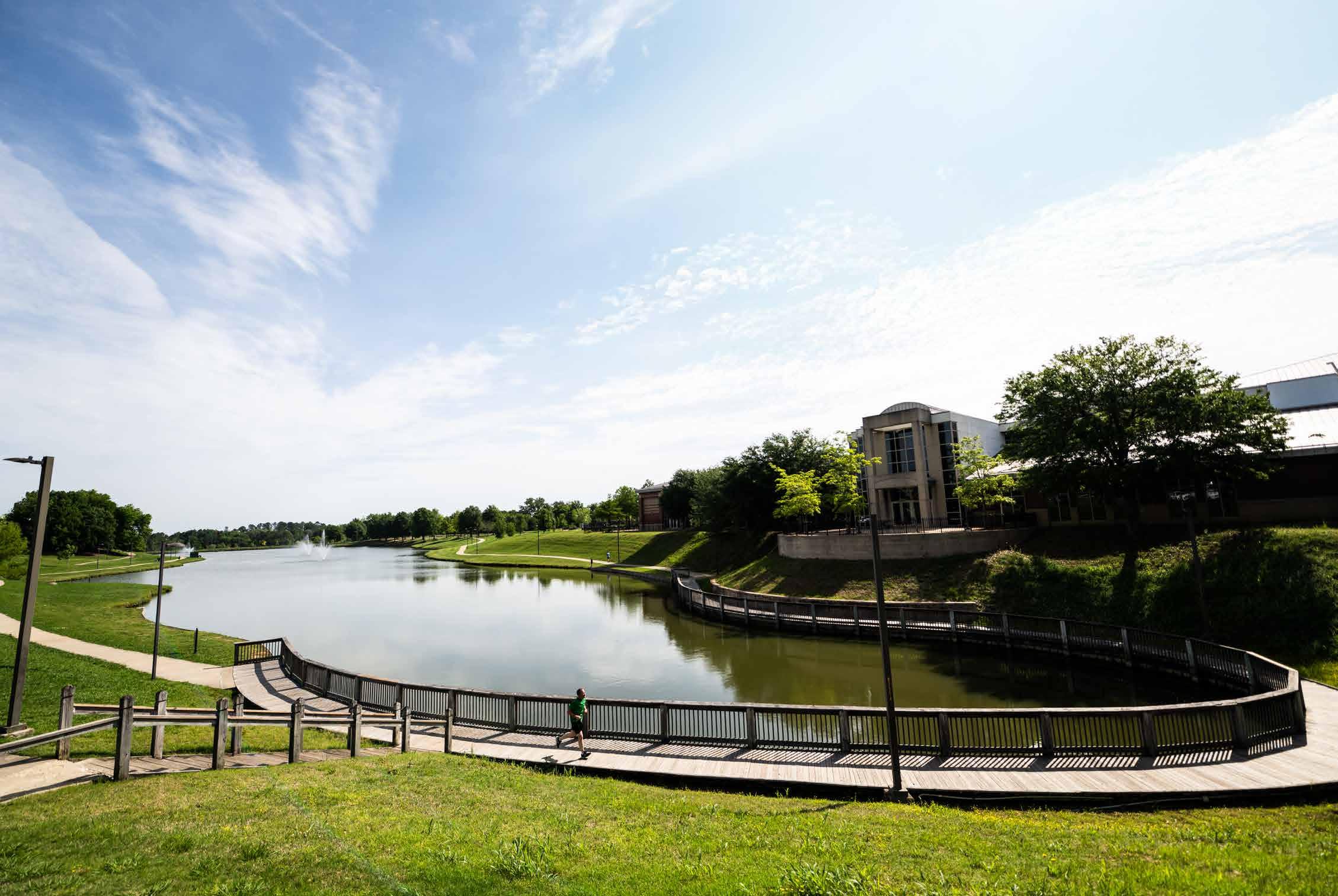
boasts a walking track, outdoor gym and sand volleyball court. The University RecPlex offers six outdoor tennis courts—including two that double as pickleball courts—as well as softball and multipurpose fields. While some of these are open and free to use, others require a reservation and small rental fee. Visit www.urec.msstate.edu for more information about rules for use.
The university is continuing to create inviting and useful outdoor spaces and expand its offerings for the MSU family. Plans for future construction include an eight-court outdoor pickleball complex on the Sanderson Center’s grounds, among other amenities.
“We are investing in the continued development of outdoor recreation areas to enhance the campus experience and further MSU’s commitment to learning, recreation and overall well-being,” Ramsey said.
Graphic design major Kinsley Bell hones her creative craft and builds real-world skills through a campus job with MSU Student Affairs—gaining hands-on experience, creative confidence and résumé-building skills along the way.
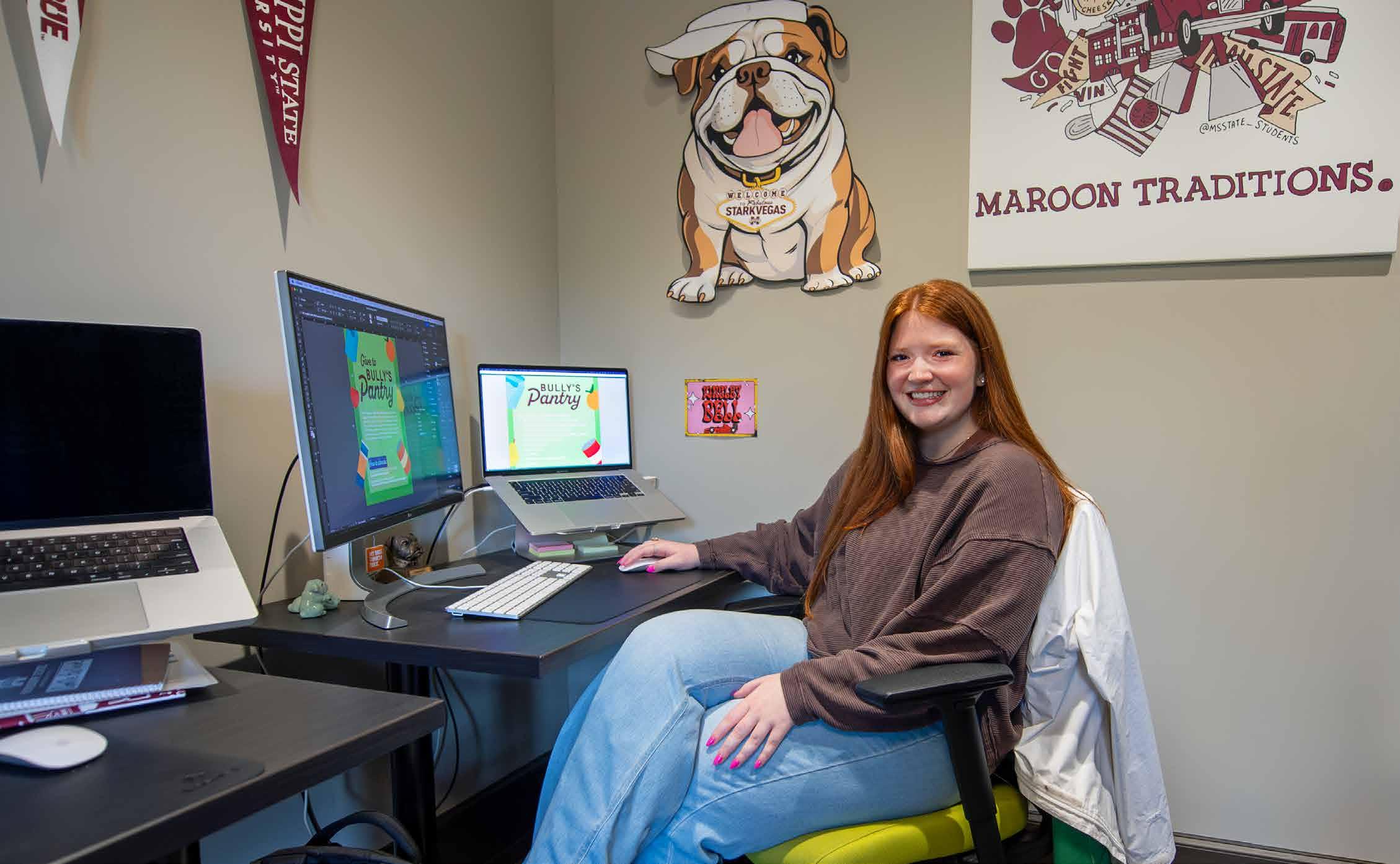
LEAD DAWGS
MSU gives students strong pathways to successful careers
By Mary Pollitz, Photos by Emily Grace McCall
After switching universities and changing majors from pre-med to graphic design, Kinsley Bell had to start her academic career from scratch. Wanting to catch up to her peers, the Mississippi State transfer student started searching for opportunities to hone her skills and boost her résumé.
Bell began working as a marketing and communication student worker for MSU Student Affairs. Now two years into the position, she’s not just caught up to her peers. The MSU senior believes her experience has propelled her much further.
“I’ve developed a better eye for design,” she said. “I’m the go-to typography person, and I’ll graduate with two years of graphic design experience. I feel like I’ve been working in this pseudo-corporate world. I have deadlines and manage multiple projects. It’s set me up with confidence in job interviews.”
Equipping students with these transferable skills is at the heart of MSU’s Maroon
Leadership, Employment, and Development for Students, or L.E.A.D.S., initiative—a universitywide effort to create intentional, career-focused practices across all student jobs on campus to enhance career readiness for Bulldogs.
BUILDING STRONG LEADERS
Regina Hyatt, MSU’s vice president for student affairs, said Maroon L.E.A.D.S. turns these jobs into stronger stepping stones for students’ futures.
“We know that on-campus employment can be a high-impact practice,” Hyatt said, “but only when intentional efforts are in place. It’s not just a job; it’s an opportunity to solve problems, get feedback from supervisors and develop teamwork skills.”
As part of the L.E.A.D.S. initiative, student employees complete a LinkedIn Learning course focused on the top eight competencies employers seek. Each module allows students to apply their learning to their jobs and discuss
insights with their supervisors.
Hyatt said her own experience as a student worker helps her understand the impact these positions can have on undergraduate students. While at Western Illinois University, she worked as a resident assistant—a fitting opening act of her career.
“Working as a resident assistant was my first introduction to what working in student affairs would be like,” she said. “I hadn’t considered working in student affairs when I became an RA, but later in my undergraduate student experience, that became the pathway I wanted to go down.”
MENTORING AND GROWING
In addition to preparing students for careers, the L.E.A.D.S. initiative aims to connect more students with on-campus opportunities and provide resources that will help them not only graduate but also advance in their careers. By serving as a central hub, Maroon L.E.A.D.S. makes it easier for

students to discover available positions relevant to their career goals.
But the program goes beyond teaching students the technicalities of a job. It helps prepare supervisors to play a key role in guiding students in the development of valuable soft skills they may not even recognize they’re learning.
“Students are doing customer relations and conflict management,” Hyatt said. “A major part of this initiative is helping students articulate their learning in a way that will benefit them when they enter the job market.”
For Bell, the benefits of her student job have been immediate.
“I’ve learned how to professionally communicate design and the processes behind it,” she said. “My supervisors, coworkers and other university professionals helped me see the value of my work. They’re really good at knowing when to treat you like a student versus when to treat you like a team member in the office.”
SERVING VITAL ROLES
While this initiative benefits students by preparing them for post-graduation success, it also provides a much needed service to the university as a whole as the more than 2,700 students serving these roles provide a distinct perspective. Serving in these campus roles, the student workers know the target audience and make those
on-campus environments welcoming to their peers.
As MSU’s largest employer of student workers, University Recreation provides nearly 200 campus jobs, including operating services at MSU’s Sanderson Center and the university’s intramural fields. Patrik Nordin, director of university recreation, said his experience as an MSU student worker shaped his own career and he’s happy to give that opportunity to today’s Bulldogs.
“As a student worker here, I developed self-confidence through the work I did and learned conflict resolution and time management,” he said. “It’s hard to list how many ways it helped me grow and I’m happy to continue that tradition with students today.”
With Nordin’s position, he regularly sees the growth and changes students go through from their freshman year to graduation.
“These student workers develop leadership skills,” he said. “It’s almost like night and day from when they first started. Our student workers have a definite advantage over new graduates who don’t have a student employment experience on campus.
“I get to see them grow over the course of four years,” Nordin continued. “They come out of their shell, become more selfconfident and their communication skills improve significantly.” n
REHAB YOUR RÉSUMÉ
FOR TODAY’S JOB MARKET
Whether you’re a student looking for a first job or a seasoned professional looking for your next opportunity, a strong résumé is the first step to getting through the door.
The last decade has ushered in lots of changes to what employers want to see on your list of qualifications, as well as automated sorting and scoring of applications. The MSU Career Center has tips to help members of the Bulldog family move to the front of the pack in today’s competitive job market.
o Ditch the objective statement. Replace it with a strong professional summary that highlights your value, experience and key skills tailored to the role you’re targeting.
o Keep formatting simple and scannable. Use clean fonts, consistent headings and bullet points. Avoid graphics, tables or columns that might confuse applicant tracking systems.
o Use keywords to beat the bots. Review the job description and naturally incorporate key skills and industryspecific terms. Many companies use AI screeners, so aligning your resume language helps you stand out.
o Show results, not just duties. When possible, focus on accomplishments using metrics, for example “Increased annual revenue by 15%” or “Led a team of 10 to launch a new product line.”
o Limit your resume to one or two pages For most professionals, a onepage résumé is ideal unless you have extensive, relevant experience. Keep it concise, tailored and easy to read.
Want more tips for job-hunting success?
The MSU Career Center has programs to support both students and alumni. Have expertise you want to share? The Career Center also facilitates mentoring between alumni and current students. Visit career.msstate.edu to learn more.
An MSU student worker leads a group fitness class at the Sanderson Center—one of nearly 200 roles with University Recreation that build leadership and career skills through the Maroon L.E.A.D.S. initiative.

State YOUR CASE
MSU PARTNERSHIPS CREATE ACCELERATED, IN-STATE PIPELINES FOR FUTURE BULLDOG LAWYERS
Story by Carl Smith, Photos by Grace Cockrell
When Ryan Jarratt walked into his first class at Columbia Law School in New York City, he arrived with an advantage none of his peers from Harvard, Georgetown or Stanford had: a well-rounded education from Mississippi State.
Jarratt, a Vicksburg native who earned bachelor’s degrees in political science and philosophy in 2022, said sitting next to some of the brightest minds from the most prestigious universities in the country deflated his confidence—at first. He wondered if he would succeed, but those fears disappeared as he proved Bulldogs not only can make it at one of the toughest law schools in the nation but also thrive in its demanding environment.
“There was a bit of an intimidation factor at first because there were very few people coming from either state schools or schools in the South. I found out pretty quickly, though, that the classes I took and the professors I had at Mississippi State prepared me to compete with those other students in every way,” the now-Juris Doctor candidate said. “At Columbia, I finished my first year with an Honors designation, became a managing editor of the Columbia Law Review, competed in the
law school’s moot court competition and have been selected for great summer internships. All of that happened because of my time at MSU.”
Although known more for its engineering and agricultural programs, MSU is the first stop in higher education for many future attorneys. Now, agreements with two other
“The classes I took and the professors I had at Mississippi State prepared me to compete with those other students in every way.”
- Ryan Jarratt
Magnolia State universities allowing students to fast-track their undergraduate and law school degrees could bring more aspiring barristers to Mississippi State.
Last year, MSU entered into partnerships with Mississippi College and the University of Mississippi allowing Bulldogs to enter the schools’ Juris Doctor programs before finishing
their bachelor’s degrees, shaving time off the total length of their higher education careers by one year.
Referred to as a 3+3 program—three years for an undergraduate degree and three years for a law degree—participating students who have completed three-fourths of the coursework required for a bachelor’s degree will be eligible for admission to the two law schools. After completing their first year of law school—earning 30 hours of credit—MSU will award their appropriate undergraduate degrees. The law school then will award its professional degree after completion of the Juris Doctor program.
The accelerated 3+3 programs begin this year, and both meet American Bar Association requirements. Both MC and UM will waive application fees and other costs for MSU students.
“These accelerated academic pathway agreements significantly benefit MSU students who want to pursue law degrees in their home state,” MSU President Mark E. Keenum said last fall. “It’s an exceptional opportunity for students, our institutions and the state of Mississippi.”

‘THE REAL DEAL’
When Whit Waide arrived at MSU as an instructor in the political science department almost two decades ago, he was determined to give undergraduate Bulldogs a real law-school experience.
After earning an English degree from Millsaps College, Waide enrolled at Ole Miss Law. The advice he received from others before starting law school fell short of truly preparing him for what lay ahead, he said.
“Everyone told me to take a lot of classes where you read and write papers. You then get there, and it’s so fundamentally different than any education you’ve ever had. Of course there’s writing, but law school really does rewire your brain and forces you to think differently,” he said. “That’s why it’s so important to me to provide more exposure and illuminate what law school is really like, to the extent you can as an undergraduate instructor.
“I want these students to experience the real deal, so they know exactly what to expect when they walk through those doors on their first day,” Waide explained. “I want their first day to not really be their first day.”
While MSU does not have a pre-law major, Waide helped create and now oversees the university's pre-law minor. The current 19-hour curriculum is interdisciplinary and touches many areas of campus. From specific electives on legal writing in the English department and international law in the College of Business to psychology- and sociology-based classes in their respective departments, students with a wide range of interests easily can find a pathway into jurisprudence-related topics.
“This is a land-grant school which is perfect for preparing students for law school because there’s a pragmatism to us that others do not have,” Waide said. “Our philosophy is a little bit different than others: There’s an element of classical education—the liberal arts and core
curriculum-type classes—but there’s also the practical application of learning.
“The classes we want students to take are about teaching critical thinking and how to build ideas and make sound arguments. Anybody can read case law; it’s about understanding and applying ideas,” he continued. “Mississippi State does a better job at pre-law preparation than most places in the country because we put a lot of effort and energy into making sure that you know all you need to know and can do all you can do before you start that endeavor. I’ve had former students in law school tell me, ‘I’m so glad I took legal writing at State because I’m not as lost as everyone else is here.’”
‘I WAS READY FOR IT’
The only "B" Sumner Fortenberry made as an MSU undergraduate was in Associate Professor Matthew Little’s Principles of Legal Writing.
“I still cuss him to this day,” Fortenberry joked, “but I was young and arrogant, and
Whit Waide, longtime MSU political science instructor and pre-law minor coordinator, is committed to preparing students for law school with rigorous, real-world instruction that mirrors the demands of a legal education.
I deserved it. It’s still wild to think about it, but he really shaped me as a legal writer when I was just a 19-year-old sophomore.”
After graduating from MSU in 2018 with a near-perfect GPA and a bachelor’s degree in political science, Fortenberry attended the University of Virginia for law school. There, the Tupelo native had a similar experience as Jarratt. In his first-year torts class he sat beside an Ivy League graduate who previously won the TV gameshow “Jeopardy!”
“I just remember thinking I was out of my league,” said Fortenberry, who was named MSU’s Political Science Undergraduate Student of the Year in 2018. “However, as the year went on, I couldn’t believe how well I could handle those classes because of what I learned at MSU and how Whit Waide taught me to take them.
“I soon realized that even though I’m sitting next to a proven genius who was much brighter and more capable in the raw than I was, I had more of pre-existing understanding of how the class worked,” he added. “It was so meaningful for Whit to focus on teaching you how to think like a lawyer before you went to become one, and it just made me way more confident throughout my whole law-school experience.”
Fortenberry earned his law degree in 2021 and clerked for Judge Leslie H. Southwick on the Fifth Circuit Court of Appeals. He later joined Bradley Arant Boult Cummings LLP—simply known as Bradley—where he practices construction, commercial and appellate litigation at the firm’s Jackson office.
“It all got started at Mississippi State, thanks to Whit. He and the university are such huge parts of my professional and personal trajectories,” Fortenberry said. “His impact on the lives of current lawyers all across the country is pretty hard to overstate.
“Those law-related classes and the professors who teach them are really what make State a dark horse for those thinking about law school. Pre-law might not be on the marquee, but MSU allows you to dip your toe into the legal environment. That’s the highest and best purpose of a university—to let you try new things,” he continued. “There are many people I went to law school with who were burdened with hundreds of thousands of dollars of debt from their undergrad years and weren’t as prepared as I was. They may have had different opportunities than I did at MSU, but we were there together, sitting in the same seats, learning the same law. The difference? I was ready for it.” n
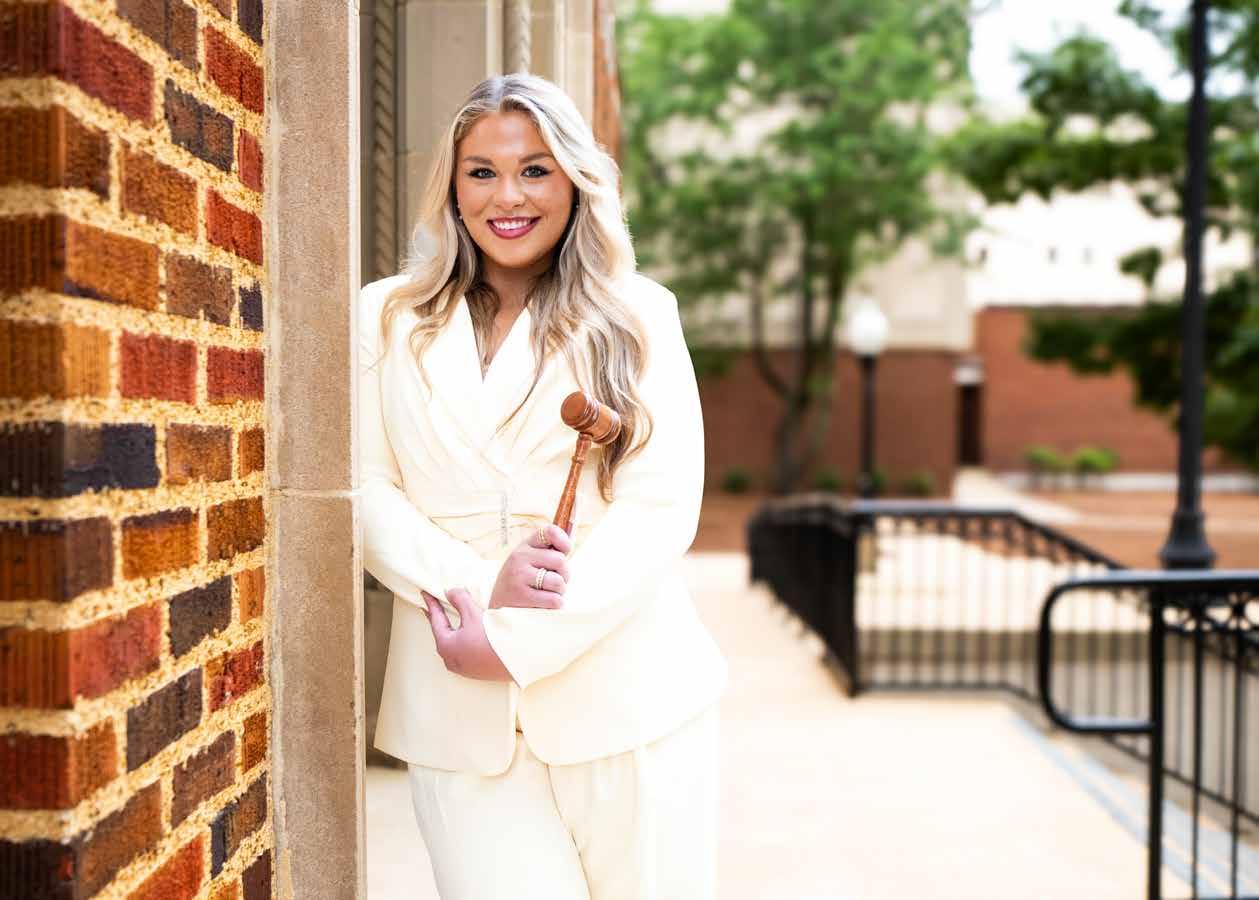
ASPIRING BULLDOG BARRISTER GROWS STUDENT-LED PRE-LAW SOCIETY
Exiting Pre-Law Society President Laney Hulbert had a simple goal for the group in her final year at Mississippi State: prepare students as soon as possible for the unexpected challenges of getting into law school.
“When I started, I didn’t realize it was going to take months to apply or how much it was going to cost,” she said. “As I was learning how to navigate law school applications, I realized I wished I had someone who went through the process helping me. That’s when I knew I could help others.”
Through her leadership, the Pre-Law Society grew to approximately 300 members and now tours regional law programs, hosts distinguished speakers and holds workshops on a variety of topics students will encounter as they work toward a Juris Doctor.
“I don’t think people realize how many Bulldogs are considering law school. There was so much interest in our first meeting after a hiatus that I almost didn’t have a big enough room,” she said. “Now, there are so many freshmen and sophomores at our meetings. Getting this exposure at such an early point will give them a leg up over their peers.”
Hulbert, a political science and criminology double major, wrapped her Bulldog undergraduate career this spring and will attend the University of Mississippi School of Law in the fall. While she was accepted to numerous law programs across the Southeast, the Lucedale native said she wanted to remain in Mississippi and stay close to family.
“Leading the Pre-Law Society has been incredibly rewarding me. I feel like I am actually helping people,” she said. “I’m going to take all those lessons I’ve learned from working with students and apply them in the future.
“MSU is truly my favorite place on Earth, and the pre-law minor is a hidden gem,” Hulbert continued. "Here, I felt so nurtured and cared about, and that made me flourish as a student and as a person. I tell people I’m attending the University of Mississippi, not Ole Miss. I’ll be a Bulldog ‘til the day I die.” n
Campus
Mississippi State’s landscape architecture department marks a new era with a name change. It is now known as the Department of Landscape Architecture and Environmental Design.
Mississippi State University is beginning an international education collaboration with Brazil’s Universidade de Rio Verde after the signing of a joint agreement. The memorandum of understanding officially acknowledges the academic alliance between the two institutions.
Mississippi State University has been recognized by the ALL IN Campus Democracy Challenge as a 2024 ALL IN Most Engaged Campus for College Student Voting. The initiative recognizes colleges and universities for outstanding efforts to increase nonpartisan student voter participation.
Mississippi State University is the Magnolia State’s only institution of higher learning named to Forbes’ inaugural America’s Dream Employers. The list includes 500 companies and organizations employing at least 1,000 people and spanning all sectors of industry. Mississippi State also was named an “exemplary employer” by the Great Colleges to Work For recognition program. This was MSU’s ninth consecutive year to earn the honor.
Mississippi State students claimed a majority of scholarships awarded by the Mississippi Automotive Manufacturers Association. Of nine university scholarships presented this year by MAMA to help grow the state’s automotive industry, seven are supporting MSU students interested in this field. Since its inception in 2006, the association has awarded more than $400,000 scholarships to 243 Mississippi college students.
Students seeking scientific medical knowledge at Mississippi State University now have access to a cutting-edge resource—the state-of-the-art Anatomage Tables. Seven of these advanced medical education systems were unveiled during a ribbon-cutting and open house in the Academic Computer Laboratory on Herbert Street. Acquired by MSU’s Department of Biological Sciences, these revolutionary tools will transform how students learn human anatomy and physiology, offering a highly accurate, digital alternative to traditional cadaverbased instruction.
MSU and HII’s Ingalls Shipbuilding division have launched a formal partnership offering eligible Ingalls employees enhanced education benefits, including a 10% tuition discount for undergraduate and graduate programs at Mississippi State.

In just its second year competing with the National Cheerleaders Association, two Mississippi State Spirit Squads were crowned national champions in Daytona Beach, Florida. With more than 80 MSU athletes competing, the Bulldogs earned the national title in the Small Coed Intermediate D1A and Spirit Rally D1A divisions. The MSU's Small Coed division team comprised four male and 16 female cheerleaders performing a traditional competition routine. The Spirit Rally team executed a game-day style performance.
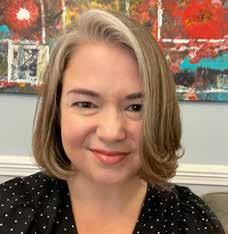
Mississippi State University’s Shalyn Claggett, a professor of English, received the 2024 South Atlantic Modern Language Association Book Award for her publication "Equal Natures: Popular Brain Science and Victorian Women’s Writing." The association’s most prestigious honor, the award recognizes scholarly excellence in literary studies and contributions to understanding language and culture.
Russell Pair, a senior in MSU’s College of Education, recently appeared on the reality TV show "Estate of Survival," now streaming on Amazon Prime Video. He won the $100,000 prize. A Southside, Alabama, native and Mississippi Excellence in Teaching Program scholar majoring in secondary education, Pair called the experience “super awesome” and said the win was a shock.
Morgan Dudley has been named the new director of the Mississippi State Riley Center in Meridian. An MSU alumna, she previously served as the center’s director of conferences, events and operations.



Peyton Bair earned the NCAA Indoor Track and Field National Championship for the men’s heptathlon in March. The competition combines seven track and field events testing an athlete’s mettle in running, jumping and throwing. The Kimberly, Idaho, native’s performance scored 6,013 points—enough for the first heptathlon national title in MSU history and First-Team All-American honors. He also earned the USTFCCCA South Regional Indoor Athlete of the Year award.
Gov. Tate Reeves has appointed MSU Associate Professor Kevin Armstrong to a five-year term on the Mississippi Board of Psychology, which oversees the credentialing, education, and ethical practice of psychologists in the state. The board helps protect public wellbeing by regulating professional standards and investigating complaints.
Rachel Allison, associate professor of sociology at MSU, has been named a Fulbright Specialist, allowing her to teach, present research and collaborate with international scholars at the University of Lucerne in Switzerland.

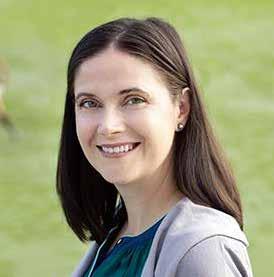
Candace Lukasik, assistant professor of philosophy and religion at MSU, has been named to the 2024–26 Young Scholars in American Religion cohort, a Lilly Endowment–funded program offering mentorship and professional development for early-career scholars.

Mississippi State University’s Clinical Psychology Program has earned a landmark achievement widely recognized as the gold standard in the field: a 10-year accreditation from the American Psychological Association. The Ph.D. program’s success extends beyond accreditation, with a 100% match rate for clinical psychology internships through the Association of Psychology Postdoctoral and Internship Centers for the past 13 years. The achievement far exceeds the national average—86%— and demonstrates the program’s dedication to preparing students for competitive placements.
Mississippi State Online’s team was recognized nationally for its recent marketing campaigns during the University Professional and Continuing Education Association’s annual competition. MS State Online won a silver excellence in marketing award for “Creating a Sense of Belonging: MS State Online Revamped Orientation” and bronze for “Revolutionizing Student Engagement: MS State Online’s Journey to Strategic Online Communication” campaigns.

MSU Assistant Professor Kemeshia Swanson has received the Eudora Welty Prize for her book "Maverick Feminist: To Be Female and Black in a Country Founded upon Violence and Respectability," published by the University Press of Mississippi. The annual award honors bold, impactful writing and is presented in partnership with the Mississippi University for Women.
Kristin Javorsky, associate professor in the Department of Teacher Education and Leadership, is the first faculty member in MSU’s College of Education to receive an endowed professorship. She is the inaugural recipient of the Dr. Susan McLaren Brooks Endowed Elementary Education Professorship, established in memory of the beloved Mississippi teacher.
Katie Echols has been promoted to assistant vice president of research and associate director of governmental relations in MSU’s Office of Research

and Economic Development. In her new role, she will help identify federal initiatives and external funding opportunities to support the university’s research mission.

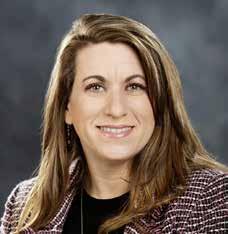
Seniors Sydney Denton and Devin Hutchins, both members of the Judy and Bobby Shackouls Honors College, are among MSU’s newest Rhodes Scholarship finalists. Denton is a history and political science double major from West Monroe, Louisiana, while Hutchins is a philosophy and economics double major from Hernando.
Dr. Alicia Olivier, professor of anatomic pathology at MSU’s College of Veterinary Medicine, has been named associate dean for administration.
Gregg Twietmeyer, associate professor of kinesiology, is among the 2025 NAKHE class of fellows chosen for their contributions to the field and the organization.



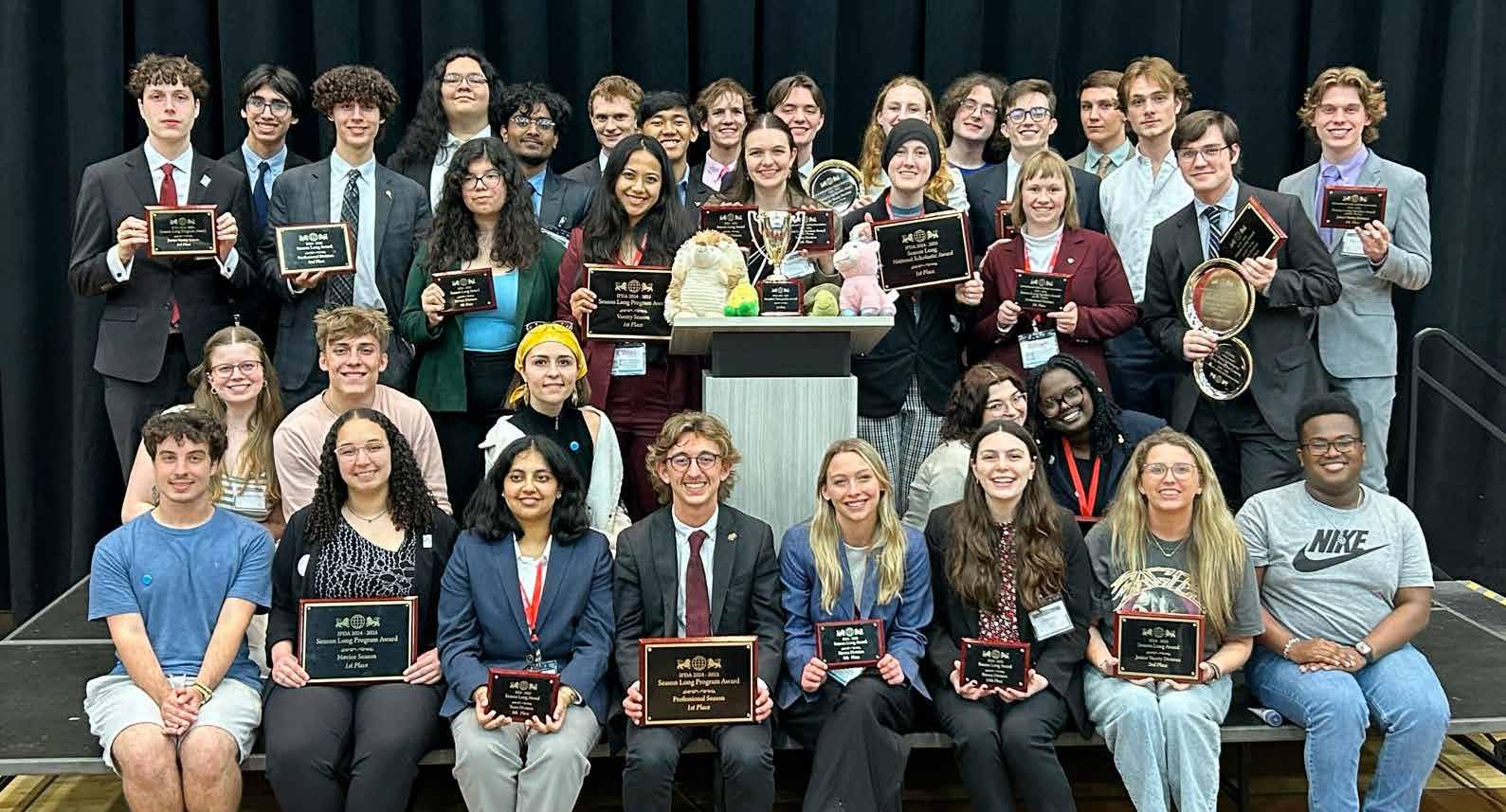
Mississippi State University is the back-to-back national champion of collegiate debate after winning top honors at the April 2025 International Public Debate Association National Tournament. The Bulldogs also added a new title, winning the IPDA Season Long Championship for the first time ever and uniting both titles as the undisputed champions of IPDA college debate. Individual MSU debaters also won numerous accolades in every division. In the Team Debate division, sophomore Ben Harvey was the national champion speaker, while freshman Brevia Kibet was the champion speaker in the Novice division. Freshman Sam Harvey took second place in the Professional division, while sophomores Nicholas Neal and George Utz and senior Devin Hutchins were named second-, third- and fourth-place speakers respectively. Sam Harvey was named season-long national champion in the Pro division, while freshman Kamron Hitson was national champion speaker in the Junior Varsity division. Neal and Hutchins also ranked in the top five for the season in the Professional division, while senior Hannah Daniels finished the season in fourth place in Varsity.
MAPPING PURPOSE
MSU-led GIS trainings help tribal populations better manage homelands
Story by Carl Smith, Submitted photos

The natural world of sub-Arctic Alaska defines the life and identity of Leilani Luhrs.
A member of the Traditional Council of Togiak, one of 27 Native American villages in Alaska’s Bristol Bay region, her roots run through the land and sea of her home, where she first fished commercially at age 11. As an adult, she has worked to monitor the area’s natural resources in many ways, including mapping migration patterns of salmon and tracking invasive fish species, for tribal, state and federal entities.
Luhrs’ understanding of her home, she said, is built on knowledge passed down by her ancestors and a modern-day, supplemental tool: geographic information systems, or GIS, that merge data and mapping, thereby allowing people to make better land-use
decisions based off a more comprehensive understanding of the world around them.
With help from Mississippi State University experts, Luhrs is sharing her GIS knowledge with area high schoolers to help a new generation better connect with, understand and manage their environment.
“GIS—the understanding of your world through maps and data—can be anything. It’s almost limitless. All throughout my adult life, I’ve used GIS without knowing it,” she explained. “Tools like GIS are important for young students because they help grow relationships between them, the land, our communities and our culture.
“It’s a vital bridge between our traditional way of life and the scientific world,” she continued. “This pathway opens the door for our community—the indigenous people of
Leilani Luhrs, a member of the Traditional Council of Togiak, draws on both ancestral knowledge and modern tools like GIS to protect the natural resources of her Alaskan home.
Alaska—to be better advocates for ourselves and our region.”
Luhrs is one of almost 1,000 people across more than 30 states who have received training through the Geographic Information Systems Training for Tribal Populations Project, a partnership between MSU’s Geosystems Research Institute and the U.S. Department of Interior’s Bureau of Indian Affairs empowering native communities with skills to enhance resource management and cultural preservation for the further development of tribal lands.
Launched in 2024 and supported by a NOAA Regional Geospatial Modeling Grant, the program focuses on introductory and intermediate training for ArcGIS, a family of geospatial mapping software developed by the Environmental Systems Research Institute,
or Esri. Free and made available online four times last year, the training was open to all federally recognized tribal and BIA employees, including contracted tribal workers. With a growing demand, organizers also hosted an in-person session last year in Alaska and plan to provide additional offerings in the future across the U.S.
“We want to help teach people how to better manage their land—teach them how to map boundaries and assess issues like sea-level rise, for example—so they can share this information with others and take action to help mitigate or take advantage of some of the things that are happening,” said Dixie Cartwright, a training facilitator with MSU’s GRI. “If you look at some of the tribal areas in Alaska and Louisiana, for example, they’re losing a lot of their land due to both natural and anthropogenic activities. GIS can help identify their most vulnerable areas so they can take action and ensure they will still have their land 15 to 50 years from now.
“But it’s not just data. A lot of knowledge from these different tribes is being lost from their elders—it’s not getting passed down to the younger generations within these groups,” she continued. “Being able to teach GIS skills and show how their land has changed over the years is opening the doors for conversations between the generations to help them learn more about their homes and what they can do to protect them.”
Protecting and preserving
For Roddy Nickey, data is history.
As the director of land management for the Mississippi Band of Choctaw Indians, Nickey uses GIS to oversee the tribe’s
approximately 35,000 acres. Data the two-time MSU graduate collects and the maps he creates are used in a wide variety of decisions, from better managing city growth through conscious zoning designations and integrating newly acquired land into the nation, to understanding land involved in major infrastructure projects and monitoring the environmental health of timber-producing areas over decades.
“It’s a vital bridge between our traditional way of life and the scientific world. This pathway opens the door for our community—the Indigenous people of Alaska—to be better advocates for ourselves and our region.” - Leilani Luhrs
“To me, data and information are two different things. What you take in is the raw data, and what you send out to people is information. Good information requires good data,” said Nickey, who has completed GRI training sessions. “Using GIS helps us protect and preserve our data, and plan accordingly for the future. We have to protect our data, because that’s our history.”
Luhrs has found that using map-centric video games like Fortnite and Call of Duty as a gateway to GIS helps contextualize the topic for high schoolers. Building their interest at a young age helps ensure valuable tribal-land data makes it to the next generation.
“They’re playing these types of games with their friends, and they’re building maps to go
along with them. I tell them, ‘You guys are literally playing ArcGIS,” she said. “Once they see the similarities, we start adding on data and components, tying everything together to what’s possible locally.
“We’re trying to show them how important environmental monitoring is—to build the relationship between the land and environment to their community and culture,” Luhrs continued. “It’s important to build up this capacity for our communities, because we don’t have many people who can bridge the gap between our traditions and the West. These students can use GIS for their subsistence and cultural interests as they get older, giving them the ability to be the future stewards we need and allowing them to preserve our ways of life.”
Both Luhrs and Nickey credit the GRI’s tribal training program and the expert knowledge guiding them as significant boons to the professional careers. Luhrs said instructors including GIS Coordinator Clarie Babineaux broke down complex ideas into layman’s terms, making topics easily understandable for her entire class.
“Since then, I feel like the number of opportunities to use and share this knowledge with others here has exploded,” Luhrs said. “It opened a door to a vast number of things, because many places here in Alaska have not been mapped to this level of detail.”
“Because of MSU, I was able to learn about the latest software tools and how to use them—becoming more effective at my job— at my own pace,” Nickey added. “Having these skills is important to me because of how many important parts of tribal life GIS work touches.”
Roddy Nickey, below, and Leilani Luhrs, center left, are among the almost 1,000 people across more than 30 states who have received training in geographic information systems, thanks in part to Mississippi State. Luhrs says the technology is "a vital bridge between our traditional way of life and the scientific world."
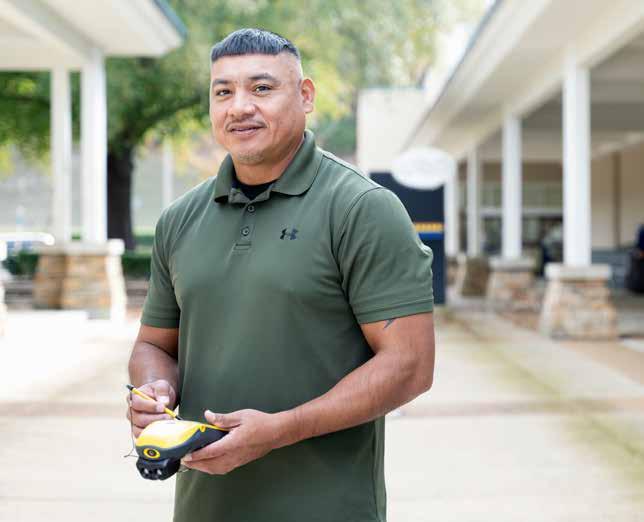
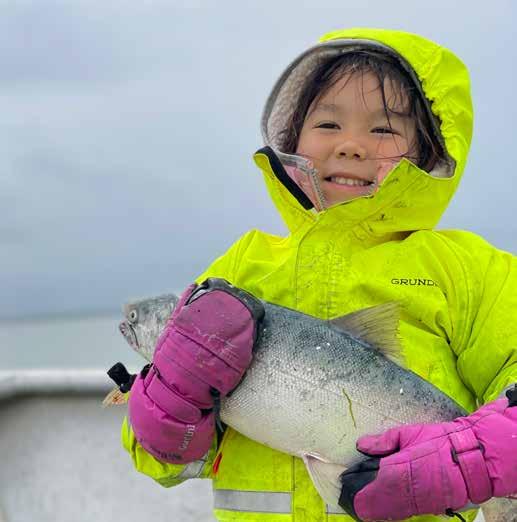


BRIDGING THE GAP
MSU grant increases access to behavioral health services in Mississippi communities
When Starkville kindergarten teacher Tynesha Elliott received her son’s autism diagnosis, she turned to Mississippi State University’s Autism and Developmental Disabilities Clinic and Pediatric Feeding Disorders Lab for support. Over the last two years, MSU's applied behavior analysis faculty and graduate students have helped her son “tremendously” by delivering life-changing behavioral healthcare services.
“He has gotten so much better,” Elliott said. “One thing we’ve been working on is keeping him seated during lunchtime. Previously, he would not sit still at lunch, but now he will. The MSU team even goes into schools to help him and their other clients, which is a huge help for me as a teacher and as a mom.
“I can tell they care about my son and his wellbeing and how he is going to adjust later in life,” she continued. “They greet him like he is theirs. I want him to keep coming to MSU’s clinic as long as he can because I know he will get the best care.”
By Bethany Shipp, Photos by Beth Wynn
Elliott and her son benefit from living within a few miles of MSU’s Autism and Developmental Disabilities Clinic, allowing them to receive world-class services without the need to travel long distances. However, Mississippi faces a shortage of behavioral health service providers, especially in rural areas. With support from a $943,000 grant from the Health Resources and Services Administration, Mississippi State University faculty and students are on a mission to meet that need.
Awarded to MSU’s Applied Behavior Analysis program in the College of Education, the two-year funding addresses the practitioner shortage through stipends and support to ABA master’s students and existing providers who serve in rural areas of the state, allowing families across the state’s 82 counties to receive the same quality of care available to those who can easily visit the campus clinic.
ABA practitioners primarily serve clients diagnosed with autism or an intellectual or developmental disability. According to the U.S. Centers for Disease Control and
Prevention, 1 in 36 children are diagnosed with autism nationally. ABA practitioners seek to improve the clients’ overall quality of life and independence by using techniques to modify behaviors and teach vital life skills. Hallie Smith, an assistant professor and ABA program coordinator, serves as the principal investigator for the project.
“Our state has less than one third of the workforce needed to provide childhood behavior-analytic services, which translates to long waitlists for families and children not getting the care they need,” Smith said.
“With this grant, we are working to increase the number of providers and better meet the needs of children, adolescents and young adults in rural and underserved communities in Mississippi.”
A YEAR OF SUCCESS
The team experienced a successful first year of the grant “Bridging the Gap: Building a Comprehensive Training Program for Behavioral Health Service Providers in Rural Mississippi Communities,” or MSUBRIDGE for short. Fifteen ABA second-year
Merritt Scoville, a graduate assistant with MSU Autism Liaison Services, supports a student in an Oktibbeha County School.



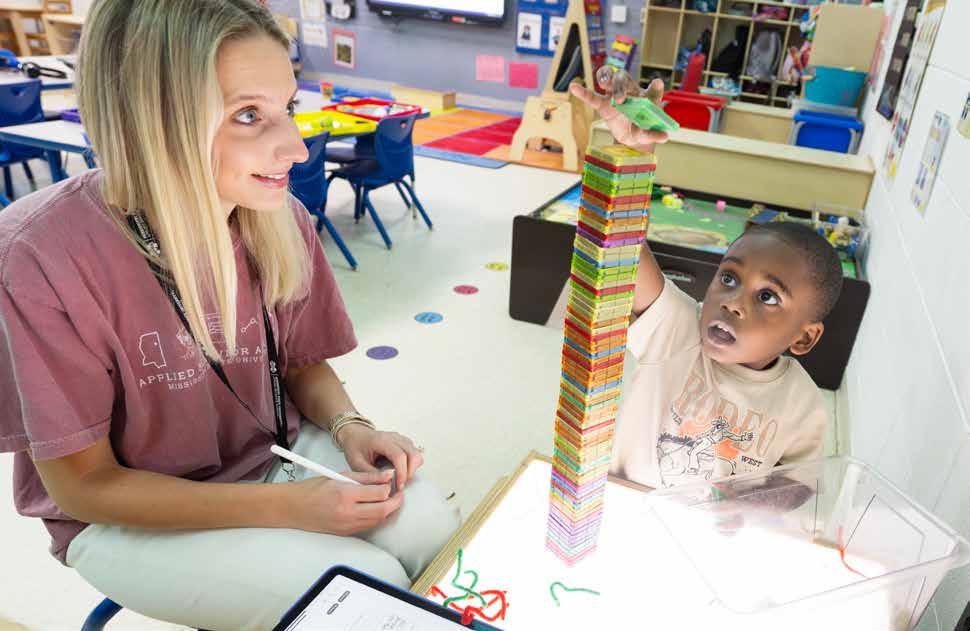
The MSU-BRIDGE program allows children like this young client to access high quality, evidence-based services in their communities. Assistant Professor Hallie Smith, top left, instructs MSU graduate students who provide wrap-around services for this child at his local public school, as well as at the MSU Autism and Developmental Disabilities Clinic and MSU Pediatric Feeding Disorders Lab.
master’s students, were placed in communitybased clinics in rural areas of the state, including McComb, Oxford, Starkville, West Point and Winona. Students also served in the Starkville Oktibbeha School District and Webster County School District.
Smith said nine of the 15 MSU-BRIDGE students from the first year are now employed full time at clinics in Mississippi, half in a rural setting.
“One of our goals was to increase the quality and quantity of eligible practitioners in the state, particularly in rural areas,” Smith said. “So, it’s really good to see that so many of our students stayed.”
The students were not the only ones who directly benefited from the grant project. Their clinic supervisors received stipends, professional development and funds to cover continuing education. Additionally, the MSU team met with each supervisor quarterly to provide feedback, resources and recommendations based on the students’ evaluations.
“Once you’re certified, it’s not often you have a professional in your field available to give you objective feedback,” Smith said. “Our supervisors have said that it’s helpful to get that feedback from an objective third party professional.
“I think it’s important to recognize that we wouldn’t be able to do any of this if we didn’t have the support of the current ABA practitioners in our state,” Smith continued. “While we do have a shortage of providers, we also have really great practitioners who allow us to continue our work.”
COMING FULL CIRCLE
With one more year of funding to go, Smith says the project is coming full circle. Current students are now being placed in clinics where their supervisors are former MSU-BRIDGE participants.
“It’s really neat because we already have a relationship with these alumni,” Smith said. “They know what our program is like, and they’re able to serve as really good mentors and supervisors for our current students.”
“The MSU-BRIDGE program truly changed the course of my life and career. The support, mentorship and hands-on experience I gained not only prepared me for the technical aspects of being a BCBA but also instilled a deep passion for serving families in Mississippi.”
- Molly Rossiter
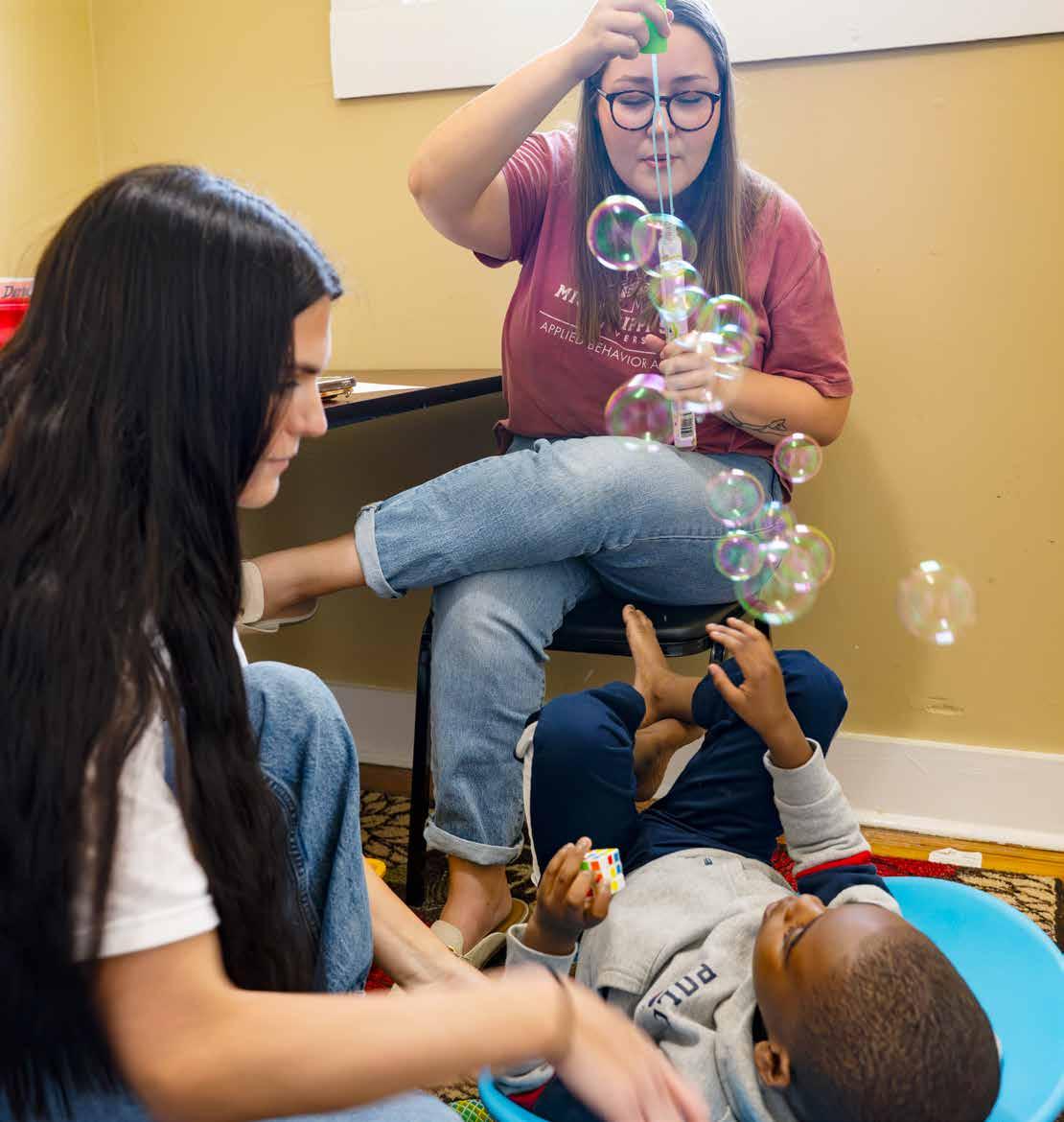
Mississippi State graduate students Hayley Rossiter, left, and Taylor Moore use playful techniques—like blowing bubbles—to help children stay engaged and build important skills during therapy. These small moments are part of a broader approach rooted in applied behavior analysis.
One such supervisor is MSU alumna Molly Rossiter, who is now serving as a Board Certified Behavior Analyst at Will’s Way Pediatric Behavioral Psychology in Hattiesburg.
“The MSU-BRIDGE program truly changed the course of my life and career,” Rossiter said. “The support, mentorship and hands-on experience I gained not only prepared me for the technical aspects of being a BCBA but also instilled a deep passion for serving families in Mississippi. The program opened my eyes to the incredible need for behavioral health services in our state and gave me the confidence to step into this role.
“Staying in Mississippi felt like the best way to give back to the community that has given me so much,” she continued. “I’m proud to now work as a BCBA at Will’s Way where I get to see firsthand how this
work transforms lives.”
Smith hopes more students, like Rossiter, will choose to stay in the Magnolia State, thus increasing access for children and families to the care they need. Currently, MSU offers an ABA master’s degree and minor to prepare students to enter the field.
And with a new ABA bachelor’s degree scheduled to launch in fall 2025, the university’s impact in the field is only expected to grow.
“The MSU-BRIDGE program is a testament to taking care of what truly matters—ensuring children and families in Mississippi have access to the behavioral health services they need,” Smith said. “By investing in our students and supporting dedicated practitioners, we’re building stronger and more supportive communities for those with disabilities and behavioral health needs.” n
ADVOCATING FOR ACCESS
Nothing is harder for a parent than sensing your child has a developmental need but not knowing what it is. Being a vocal advocate for your child can make the difference in early detection, intervention and treatment for a variety of educational and behavioral needs.
Mississippi State University is working across the state—and, through our graduates, across the country—to increase access to these services. With experience researching and providing for these needs, MSU’s Hallie Smith, a licensed psychologist, board-certified behavior analyst, offers the following suggestions to help parents get started if they feel their child needs assessment or intervention.
BE
PROACTIVE.
Parents can monitor their child’s progress toward appropriate developmental milestones to catch delays and advocate for their child as needed. There are many apps available that allow parents to easily track their child’s progress and stay on top of their development between pediatrician appointments.
TALK TO YOUR CHILD’S PEDIATRICIAN.
Talking to your child’s doctor about your specific concerns can be a good first step. You can request a list of providers, such as licensed psychologists, they would recommend for an evaluation. But remember, you don’t have to have a referral to get your child evaluated. Parents can call providers directly to request their child have an evaluation.
EARLY INTERVENTION IS IMPORTANT.
Research indicates the earlier intervention is provided to a child, the more significant the outcomes of that intervention will be. It is important to note that for many developmental disabilities, like autism spectrum disorder and intellectual disability, there is no cure and these are lifelong diagnoses; however, many individuals with these diagnoses who receive high-quality, evidence-based interventions have excellent quality of life and can gain relevant functional skills to support their independence.
Visit WWW.CHEF.MSSTATE.EDU for more information about the Applied Behavior Analysis program or the Department of Counseling, Higher Education Leadership, Educational Psychology and Foundations.

In the article “Accelerating Growth of Human Coastal Populations at the Global and Continent Levels: 2000–2018,” published in Scientific Reports-Nature, Mississippi State Social Science Research Center Professor Emeritus Arthur G. Cosby and U.S. collaborators use data from Oak Ridge National Laboratory’s Global LandScan Project to estimate coastal population growth.

Mississippi State University Associate Professor
Margaret A. Hagerman has been honored with the Distinguished Early Career Award by the American Sociological Association’s Section on Children and Youth. This prestigious award recognizes exceptional contributions by early-career sociologists in childhood and youth studies.

Mississippi State is part of a European-American study on how human activities like fertilizer use are impacting nitrogen-fixing plants. MSU’s Ryan A. Folk co-authored a Science Advances study showing increased nitrogen is reducing plant diversity and distinctiveness.
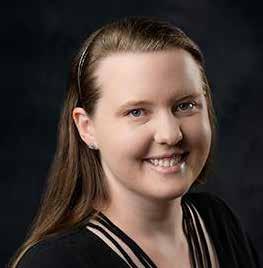
Amanda Patrick, assistant professor in Mississippi State’s Department of Chemistry, is one of 19 early career scientists globally named an “Emerging Investigator” by the Journal of the American Society for Mass Spectrometry for advancing the field through her research.
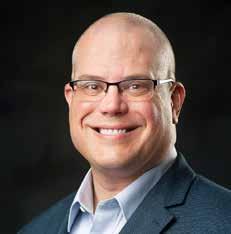
Mississippi State researchers earned the George Marra Award for their AI-driven wood identification work.
Led by Frank Owens, the team’s 2023 article in Wood and Fiber Science was honored at the society’s conference in Slovenia.

Craig Merrett, Mississippi State aerospace engineering faculty member, has been named an AIAA Associate Fellow by the American Institute of Aeronautics and Astronautics. The honor recognizes Merrett’s achievements and MSU’s strong impact in the aerospace engineering field.

Mississippi State biologist Matthew Ballinger has discovered a new parasitic wasp species in the Eastern U.S., opening avenues for research in biological processes. His study, published in a leading science journal, reveals a parasitoid wasp of adult flies found in backyard traps.

Mississippi State biologist Ling Li is featured in New Phytologist for research aimed at improving global nutrition and sustainability. Her work on rice and soybean crops offers a potential strategy to increase protein content and combat global protein deficiency.
Mississippi State is partnering with John Deere through a master research agreement, establishing a framework for the university’s Agricultural Autonomy Institute to help develop technology automating critical steps in crop production.
Mississippi State mechanical engineering faculty, staff and students are gaining new space for research and collaboration with the ongoing construction of the Innovation, Design and Engineering Education Laboratory. Located in Patterson Engineering Laboratories, the IDEELab is in phase two of a four-phase plan to expand labs, classrooms and student spaces.


The Forest and Wildlife Research Center at Mississippi State has acquired 14,071 acres of coastal forestland to establish the Wolf River Coastal Forest Research and Education Center, protecting a vital area in perpetuity. FWRC will manage the bottomland hardwood and upland forests—part of the Coastal Headwaters Protection Initiative in Harrison and Hancock counties along the Wolf River.
A strategic collaboration between Nancy Link and Mississippi State’s College of Veterinary Medicine will create a state-of-the-art facility for pioneering research in preventing and treating laminitis. The Nancy Fair Link Laminitis Research Center will be located at the MSU CVM.
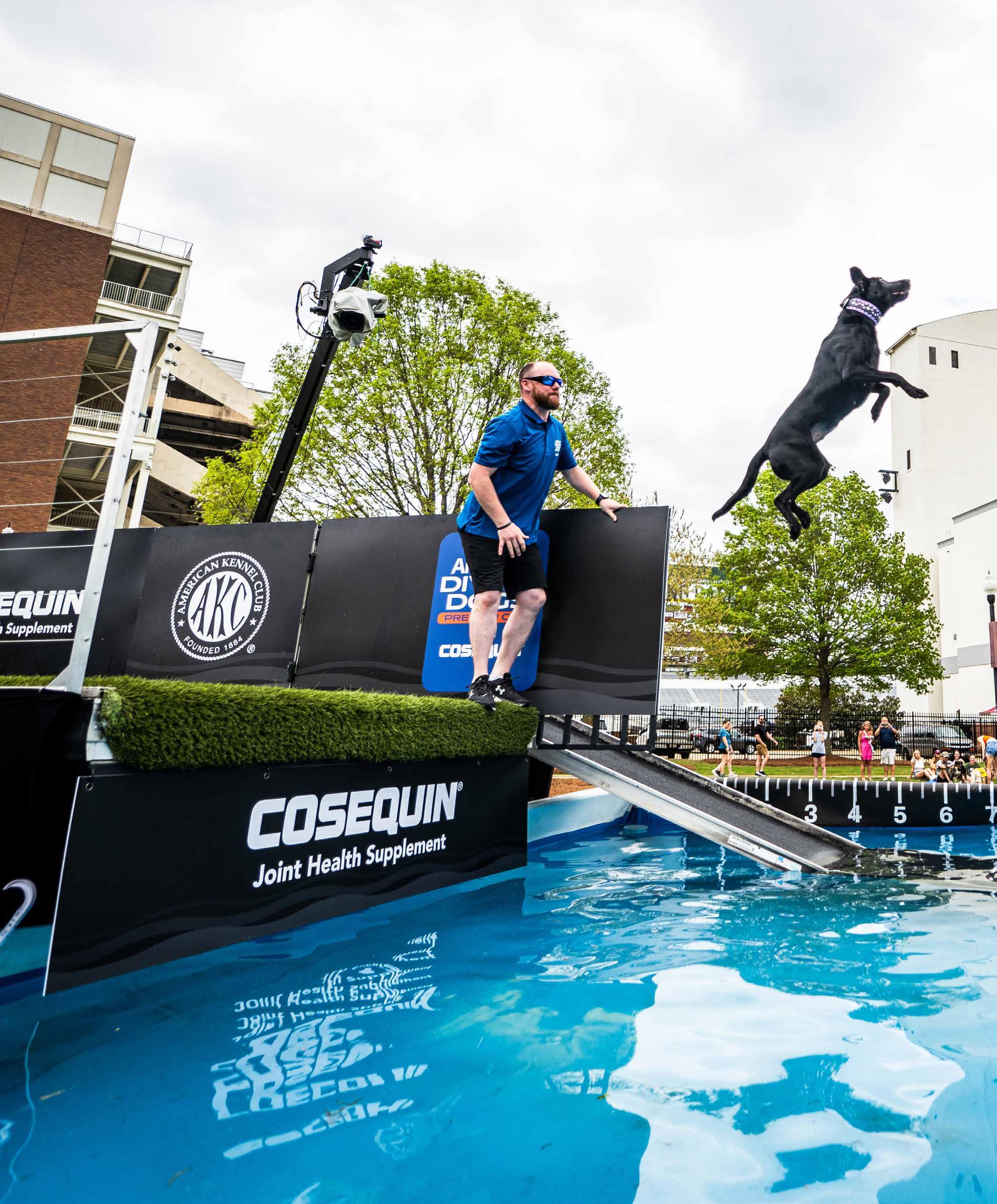
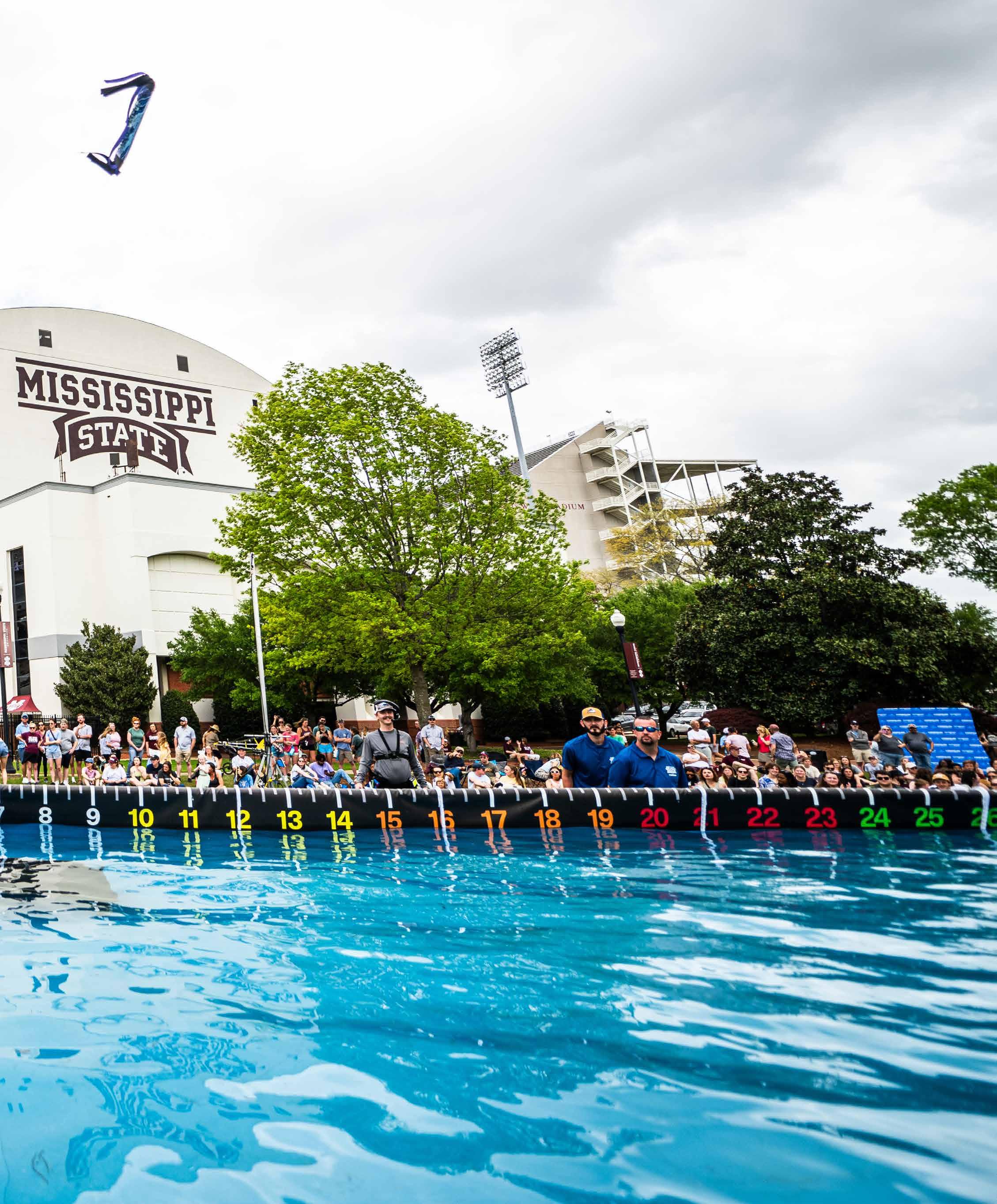
MAKING A SPLASH
America’s best canine athletes showcased their strength and agility when Mississippi State hosted the 2025 American Kennel Club Diving Dogs Premier Cup in April. The event, which featured dogs from across the country, was sponsored in part by Nutramax Laboratories Veterinary Services Inc., which develops animal health products under the guidance of President and CEO Dr. Todd Henderson, a 1992 MSU College of Veterinary Medicine graduate and active supporter of the university. Photo by Grace Cockrell
Poised for Prestige
Mississippi State’s Office of Prestigious External Scholarships encourages students to reach new heights
By Allison Matthews, Photos by Megan Bean and Beth Wynn
After earning an exceptional high school GPA and test scores, Christopher Robinson turned his attention to college. Dreaming of a career in the medical field, he submitted his applications full of promise and anticipation. But as a first-generation college student, the Brookhaven native was largely unfamiliar with the opportunities a university could provide.
That’s where Mississippi State stepped in. By providing support through a presidential scholarship— the most prestigious at the university—as well as challenging academics and opportunities for research and civic engagement, MSU helped position Robinson to achieve his goals and more.
Today, the 2022 biomedical engineering graduate is in his second year at Harvard Medical School with a résumé that includes a Public Policy and International Affairs Fellowship at Princeton and being a finalist for the Harry S. Truman and Rhodes scholarships. His undergraduate years were crucial in paving his way for further success by providing mentors, challenging coursework and hands-on research opportunities that helped make his dreams a reality.
He credits Mississippi State and its Office of Prestigious External Scholarships, or OPES, for helping him overcome feelings of self-doubt and reach heights he never would have thought possible.
“I hadn’t heard about any of the major scholarships before, but coming to MSU opened my eyes to what was possible,” Robinson said. “The first barrier for students to overcome is simply understanding what these opportunities are and how they are beneficial. And as someone long burdened with imposter syndrome, applying to these programs was as emotionally challenging as it was technically difficult.
“I wouldn’t have felt like I could apply, or even have known these opportunities existed, if it weren’t for the faculty and mentors I met throughout my time at MSU,” Robinson continued.
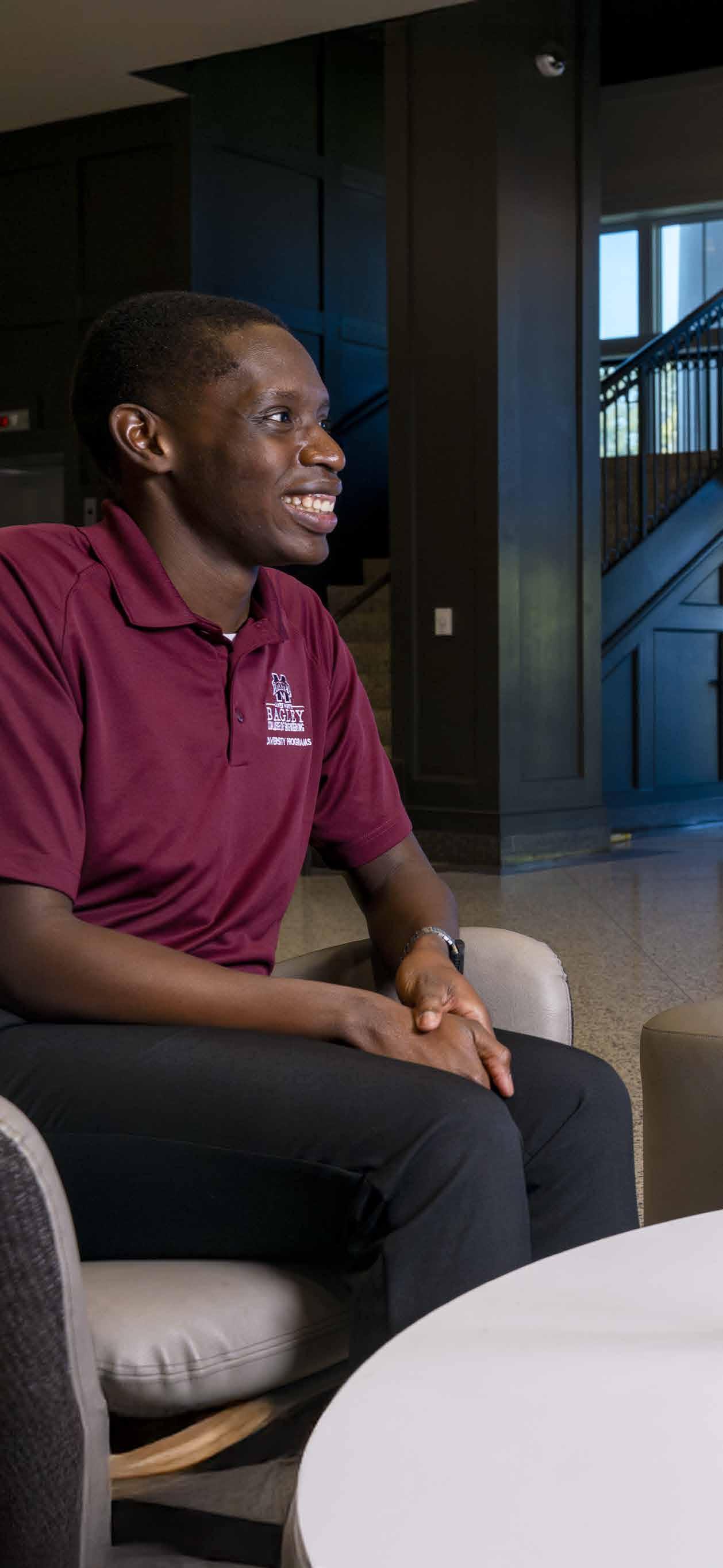

David Hoffman (center) visits with MSU students Joshua Phillips (right), a Boren Scholar and G.V. “Sonny” Montgomery Presidential Endowed Scholar, and Kaleb Love (left), a Fullbright UK Summer Institute participant. They are among the many MSU students Hoffman serves as director of OPES, helping them pursue prestigious academic opportunities.
“I wouldn’t have felt like I could apply, or even have known these opportunities existed, if it weren’t for the faculty and mentors I met throughout my time at MSU.”
~ Christopher Robinson
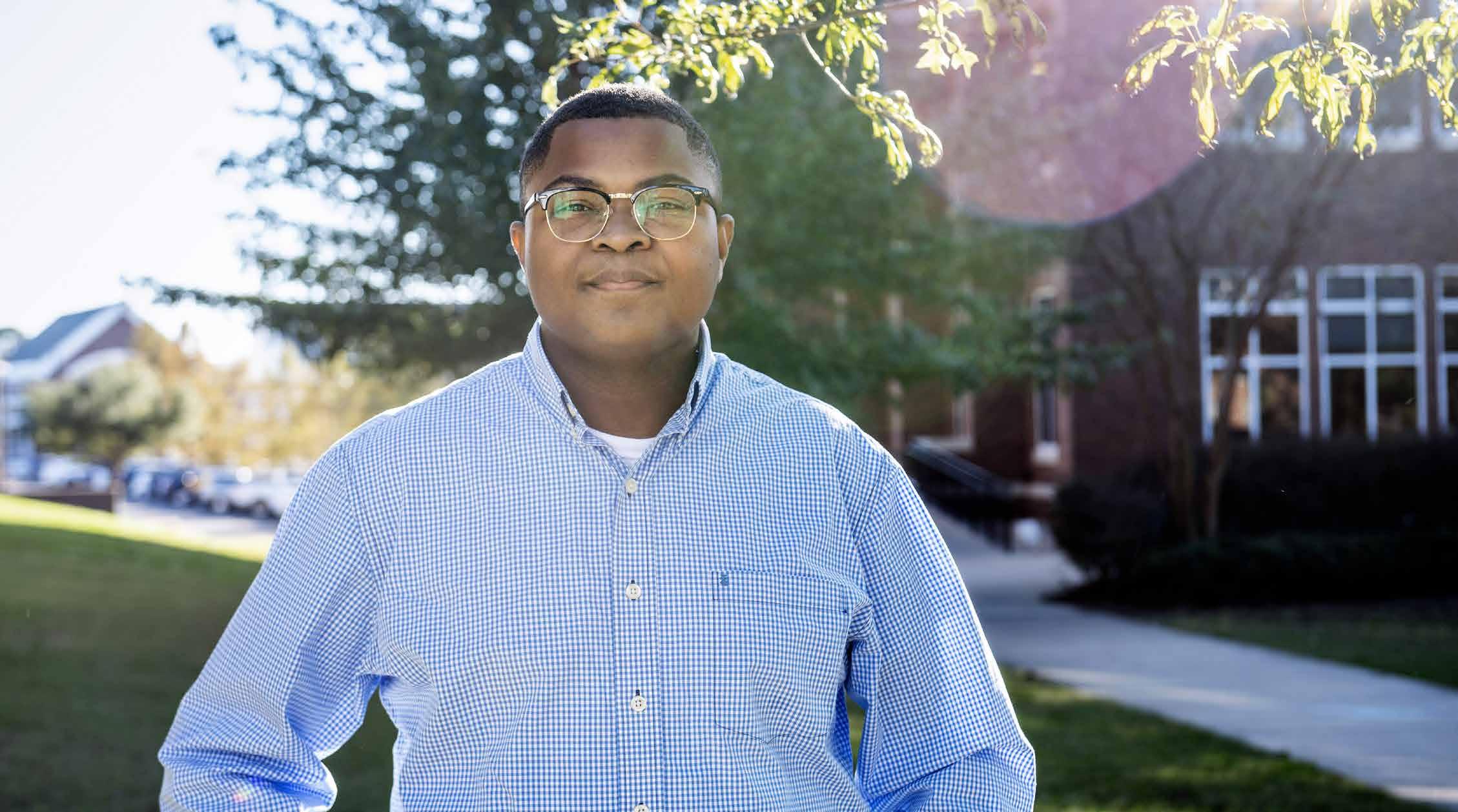
Seizing Opportunities
Led by David Hoffman, OPES helps Mississippi State identify candidates for prestigious national and international awards and provides guidance as they apply for these highly competitive, merit-based honors, which include Rhodes, Gates Cambridge, Marshall, Truman, Goldwater, Astronaut, KnightHennessy, Fulbright and Udall scholarships.
Robinson said Hoffman doesn’t just guide students through the often-tedious application processes but also helps them build confidence, manage expectations, identify opportunities and stay on task.
“To have someone explain these possibilities and believe that you can achieve these goals—that is important,” Robinson said. “For someone to see your potential and help you grow essentially from a high school senior to a functioning adult, is so meaningful.”
Mississippi State formally began mentoring students on their path to prestigious scholarships in 2012. Last fall, the university took that support to the next level by expanding the OPES advising capacity and
making Hoffman, a professor of anthropology, the full-time director. The unit also has new office space in Nunnelee Hall, which is homebase to many members of MSU’s Shackouls Honors College.
“We have amazing students who just need to be identified, encouraged and given the tools to compete on these levels,” Hoffman said. “It’s amazing to see the students’ self-confidence grow as we help them navigate options and find what they’re truly passionate about.”
Investing in Success
MSU Provost and Executive Vice President David Shaw said investing in students to help them achieve their goals is an obvious priority for a university that has such a strong student body—boasting the highest average ACT scores in the state.
“MSU is blessed with incredibly talented students who have what it takes to succeed at the highest levels when mentored appropriately, and we need to invest in them in the way they deserve,” Shaw said. “We do that by developing programs, like the Office of Prestigious External Scholarships,
staffed with exceptional faculty who know where opportunities lie and can match each student’s strengths with those prospects.
“Our students can compete with anyone in the world given the right coaching, and it is our responsibility to provide that guidance and mentoring to help them achieve their full potential,” he continued.
The university’s efforts are paying off. Across the board, Mississippi State has seen an increase in the number of winners and finalists for some of the country’s most competitive collegiate awards. For instance, Robinson was MSU’s fifth Rhodes finalist in 10 years and there have been four more since. He also was the sixth Bulldog in seven years to receive the national PPIA Junior Fellowship; the fourth to participate at Princeton. Since that time, MSU has had at least one PPIA winner every year.
“We’ve seen tremendous growth in applications and awards, including a dozen Fulbright winners, our first Marshall and Churchill scholars, multiple Goldwater winners, and Truman and Rhodes finalists,” Hoffman explained. “With the growth of OPES, we can expand the scope of
With support from the Lila and Hunter Henry Presidential Endowed Scholarship and the Dave C. Swalm Endowed Scholarship, 2022 biomedical engineering graduate Christopher Robinson discovered opportunities at Mississippi State University that set him on a path to Harvard Medical School and beyond.
our mentorship to include many other prestigious awards.
“Advising and application steering is the bread and butter of the office, which we know benefits students,” he added. “It is my mission to shine a light on amazing students and the excellent faculty mentoring that occurs throughout Mississippi State.”
Opening Doors
Hoffman explained that the expansion of OPES not only enables faculty to mentor students for a wider variety of awards, it also makes it easier to reach a wider segment of the MSU student body. With a more formal physical presence and more faculty dedicating time and effort to the unit, it is now easier than ever for students to learn about OPES and for faculty to identify students who show the potential to be competitive award applicants.
“The new office and additional focus time enables us to reach more eligible students,” Hoffman said. “It goes far beyond those who are part of the Shackouls Honors College to
include all eligible students.”
Hoffman said students of all backgrounds, studying a broad range of disciplines, benefit from the mentorship and services offered through OPES. And regardless of their ultimate success in applying for awards, those students who take part all come out as winners.
“We are helping them develop strong applications for their desired scholarships or fellowships, but we are also helping them develop compelling personal narratives which can be applied in so many other ways,” Hoffman said. “This work clearly is beneficial for everyone entering the workforce or going on to graduate school.”
Robinson said his time at MSU pushed him out of his comfort zone. He became involved on campus, joined a research team, and developed relationships with other students and a wide variety of faculty and staff mentors. OPES, he said, encouraged him to consider those experiences as a whole to better understand his interests and define his career and life goals.
He said that self-reflection solidified his passion for health care and helped him discover an interest in public policy.
“OPES taught me to articulate what drives my interest in a way that encapsulates all of my experiences,” Robinson said. “The encouragement and conversations around melding my passions with tangible career options continue to shape how I view my role in the world.”
Other students who have worked with OPES echoed his sentiment. Lucy Mellen, a senior geosciences and political science double major from Hattiesburg and a Bobby and Barbara Martin Presidential Endowed Scholarship recipient, said the office helped shape her next steps.
“Applying for a prestigious external scholarship requires deep thought about your aspirations. I have been able to research and discover my professional goals in a way that has thoroughly prepared me both for my applications to graduate school and for taking advantage of professional opportunities, such as internships, that align with those goals,”
David Shaw, Mississippi State University’s provost and executive vice president, said the university is committed to
mentoring high-achieving students
and expanding access to transformative academic opportunities.
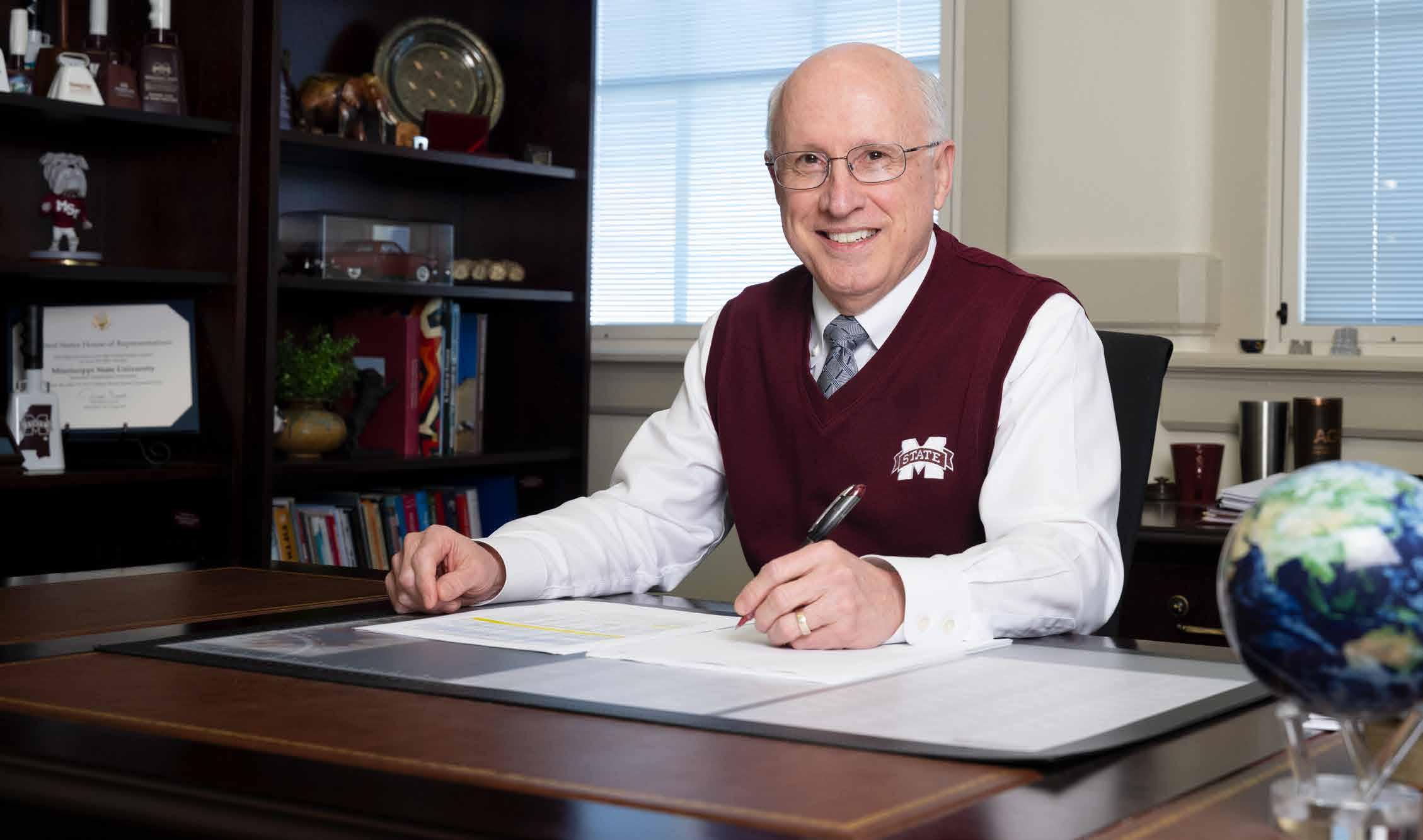
“Our students can compete with anyone in the world given the right coaching, and it is our responsibility to provide that guidance and mentoring to help them achieve their full potential.” ~ David Shaw
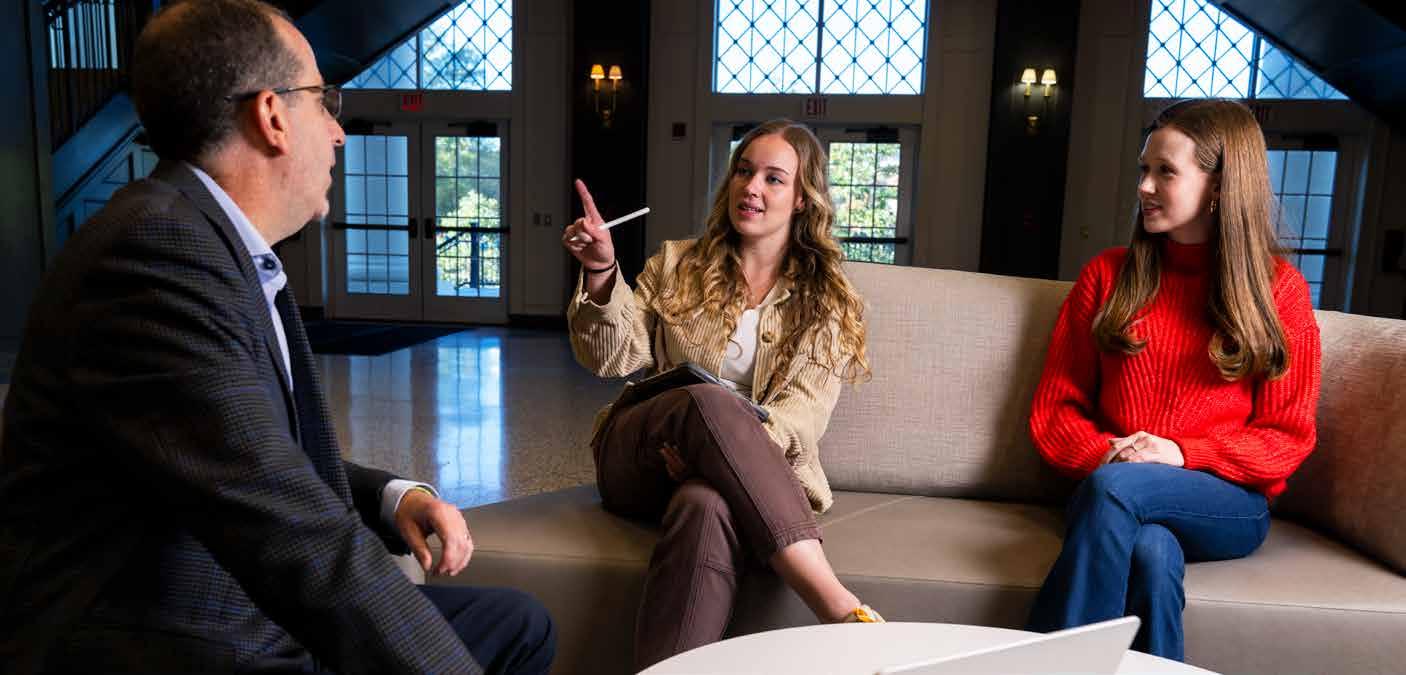
Alyssa Williams (center) and Annamarie Thompson (right) are two of the university’s 2024 Astronaut Scholars, a national honor that includes up to $15,000. Thompson, also a Joseph and Annie Barrier Engineering Scholarship recipient, said she is grateful for OPES and credits Hoffman’s (left) mentorship with helping her confidently pursue graduate school.
said Mellen, who was named one of only 55 Udall Scholars from across the country for 2023.
“I will leave MSU knowing that I did everything I could to build relationships and experiences that will go far beyond the walls of this institution,” she added.
Trussville, Alabama, native Annamarie Thompson, a Goldwater and Astronaut Scholarship winner in 2024, said she is grateful to have sought guidance from OPES and credits that mentorship with allowing her to confidently pursue graduate school.
“Mississippi State allows students to achieve in big ways,” Thompson, a senior biomedical engineering major, said. “Working with Dr. Hoffman and OPES was one of the best decisions I made as an undergraduate.”
Shaw said one of the reasons Mississippi State excels producing successful graduates is that Bulldog faculty and staff are fully invested in helping every student achieve his or her goals—going above and beyond to open eyes and open doors to any opportunity that might lay the groundwork for future achievement.
“Effective mentorship is the differencemaker not only in students competing for and winning these scholarships but also for helping them realize their potential and see avenues of success that they might not otherwise know about,” Shaw said.
“And what makes MSU special, is that we celebrate each other’s successes, because when one Bulldog succeeds, we all do,” he continued.
Sharing the MSU Story
In the crowded and competitive world of higher education, having Mississippi State talked about in these high-achieving circles helps bring recognition to the exceptional work being done at the university. And that exposure—having Bulldogs listed among the ranks of Ivy Leaguers and those from other historically prestigious institutions—has a kind of benefit that can’t be measured.
Shaw calls it “telling our story”— helping the world to see all Mississippi State has to offer and to overcome outsiders’ sometimes negative perceptions of the rural South.
“Success breeds success,” Shaw said. “The more MSU students are successful in competing for and winning these prestigious awards, the more people will see Mississippi State as the kind of university that produces exceptional graduates, creates opportunities and does world-changing work.
“The more success we have in competing for these awards, the more we can use that as a tool to recruit both students and faculty of the very highest caliber,” he continued. “These prestigious achievements are another way for us to tell our story and help the world understand what we’ve always known— Mississippi State and our family do great things that are changing the world for the better.” n

MERIT PAGES HIGHLIGHTS MSU STUDENT ACHIEVEMENTS OF ALL KINDS
At Mississippi State, student achievement knows no bounds. To celebrate each individual’s success, the university has partnered with Merit Pages to highlight student success of all types.
Through the Merit Pages platform, MSU can create and distribute personalized stories to showcase student accomplishments, making it easier than ever for proud family and friends to celebrate their Bulldog’s achievements.
Regina Hyatt, MSU’s vice president for student affairs, said Merit Pages allows the university to ensure all student success is recognized beyond the campus borders.
“Merit Pages is a wonderful tool for celebrating and sharing the incredible achievements of our students,” Hyatt said. “It not only highlights their hard work and dedication but also connects them with future employers, graduate programs and their communities.”
Managed for the university by the Office of Public Affairs, the Merit Pages platform allows students to create a profile, which can include a picture and résumé. In this way, the service works as a searchable, online portfolio of one’s notable achievements— including professionally written articles from MSU’s newsroom, as well as other accomplishments listed by the individual.
While students can opt-out at any time, the free-to-them service has been a hit not just with the students but also their parents, high school alma maters, hometown media outlets and even local elected officials, who can receive automatic emails about new honors so they can celebrate, congratulate and boast about their Bulldogs’ successes.
Learn more or search for students you know at msstate.meritpages.com.

AGAINST THE ODDS
MSU Animal Health Center gives pet owners hope
By Mary Pollitz, Photos by Tom Thompson and Amelia Andersson
On a stormy night in Arkansas, a car hit a runaway Goldendoodle, leaving her stranded on the road unable to move.
Dylan McCay and Emily Roberts, a young, engaged couple, saw a social media post from a delivery driver about the injured dog in need of help. McCay drove in the rain and found the 10-month-old puppy now named Maple lying in mud. With an array of blankets and towels ready, he carefully loaded her in the car.
“Her temperament was wonderful. I had my hazard lights on, got out and she was trying to scoot over toward me,” McCay said. “She put her head on my lap as I’m trying to call emergency hospitals. The whole time, she just wanted to be loved on.”
Maple’s hind legs were broken, both femurs were exposed to the elements and caked in mud. McCay and Roberts rushed Maple to Greenbrier Animal Hospital where MSU graduate Dr. Eric Schrand initially handled her case. He recognized the severity of her injuries and the likelihood of amputation but suggested finding a nearby surgical specialist to give Maple the best path to recovery.
Maple, pictured with her rescuers and now forever family, Dylan McCay and Emily Roberts, prepares to head home after life-saving surgery at Mississippi State’s Animal Health Center. Thanks to the dedicated care of MSU’s veterinary team, Maple defied the odds and walked out on all four legs.


Roberts and McCay tried admitting Maple to animal hospitals in Little Rock, Arkansas, and Memphis, Tennessee—both within 100 miles of their home in Conway—but because of those clinics’ caseloads and the immediacy needed, both denied Maple as a patient. Schrand told the couple Maple’s best chance at recovery was more than 300 miles away at Mississippi State.
Dr. Michael Jaffe, MSU’s chief of small animal surgery, said the university’s Animal Health Clinic sees every patient that comes through the doors—often serving as pet owners’ last best chance for hope. MSU veterinarians provide a fresh perspective for these lost-cause cases and often bring about miraculous recoveries.
In recent years, pet owners have traveled to Starkville from Tennessee, Alabama, Louisiana, Kentucky, Georgia and Arkansas looking for hope, sometimes bypassing other vet schools on their journeys.
“Mississippi does not have any other true specialized animal hospitals. There’s nobody else. There’s just us,” Jaffe said. “But it’s not just Mississippi. It’s crazy how far people come for the services our experts provide. People will find a way to bring their pets here for care.”
With a referral from Schrand, the Arkansas couple drove with Maple to Starkville. Using the money previously earmarked for their wedding, they dropped Maple off hoping for the best possible outcome: her survival and comfort. Jaffe and second-year surgical resident Dr. Weston Beamon spent five hours piecing Maple’s legs together with five screws, two pins and one bond plate in each leg.
“They were expecting her to go home with an amputated leg, but she went home on four legs,” Jaffe said. “That’s an amazing thing for us. That’s why we do what we do.”
Now, Maple has nearly recovered from her October accident thanks in large part to MSU's CVM. But the Mississippi State experts aren’t just in Starkville. The couple’s primary veterinarian is an MSU graduate, as is the doctor who did her hydrotherapy sessions. Forever grateful for the care they received, the couple has bought into the Mississippi State culture and are now proud members of the extensive Bulldog family.
“There’s been a ton of MSU family involved in our girl’s recovery,” Roberts said. “We’re definitely Mississippi State fans now. Maple has the cutest MSU jersey, and she wore it on our return journey to Starkville for her follow-up. For Maple to now
Top: Veterinary students and clinicians at Mississippi State wrap Maple’s bandages and monitor her progress during an exam. Bottom: With support from her rescuers, Maple takes early steps on all four legs after surgery—a powerful milestone made possible by the compassionate expertise at Mississippi State.
comfortably walk on her legs is nothing short of a miracle considering the degree and location of her fractures.”
Mississippi State is the answer
For pet owners across the Southeast, the Mississippi State Animal Health Center serves as a beacon of hope. There’s a number of reasons they travel such a distance to Starkville, Jaffe said. A large portion of the Animal Health Center’s success is rooted in the staff and faculty’s expertise, but another crucial aspect is its open-door policy.
“We are a multi-specialty hospital, but there are other vet schools that have those specialties as well,” he said. “One of the things that is outstanding about Mississippi State, is we don’t close our doors to anybody or anything. During COVID, some vet schools closed their doors. We saw cases straight through the pandemic. We never shut down.”
Accepting every patient can make the hospital busy, and the clinic usually is too. Not including spays or neuters, the Animal Health Center performs more than 100 major surgeries a month, including ACL repairs, neurological surgery, fracture repair and more.
In need of specialized care and expert knowledge, pet owners from every background, ranging from a Fortune 500 company CEO to the young, engaged couple who sourced a GoFundMe to save Maple the Goldendoodle, seek help from MSU's CVM.
“You don’t know who you’re treating, and it doesn’t matter. We offer the same level of care to everyone. That sends a strong message to our students,” Jaffe said. “We are a service-oriented profession, and I think students gain a greater sense of empathy for patients and sympathy for owners.”
Mississippi State boasts a team of specialists across a wide range of fields, including surgery, neurology, ophthalmology, dermatology, radiology, anesthesiology, community practice and critical care. This multidisciplinary team guarantees collaborative care for every patient.
“We work very cohesively and that’s what attracted me to come here,” Jaffe said. “There is such a good working environment between the services. It’s not like that everywhere, but it is here. The students really see how well these services work together.”
Saving Buddy
One well-known example is Buddy, a young Labrador retriever found in Tate County with an extension cord wrapped around his neck and extensive facial burns after being set on fire by a 12-year-old. He needed Mississippi State and its staff to not only survive but live the best life possible.
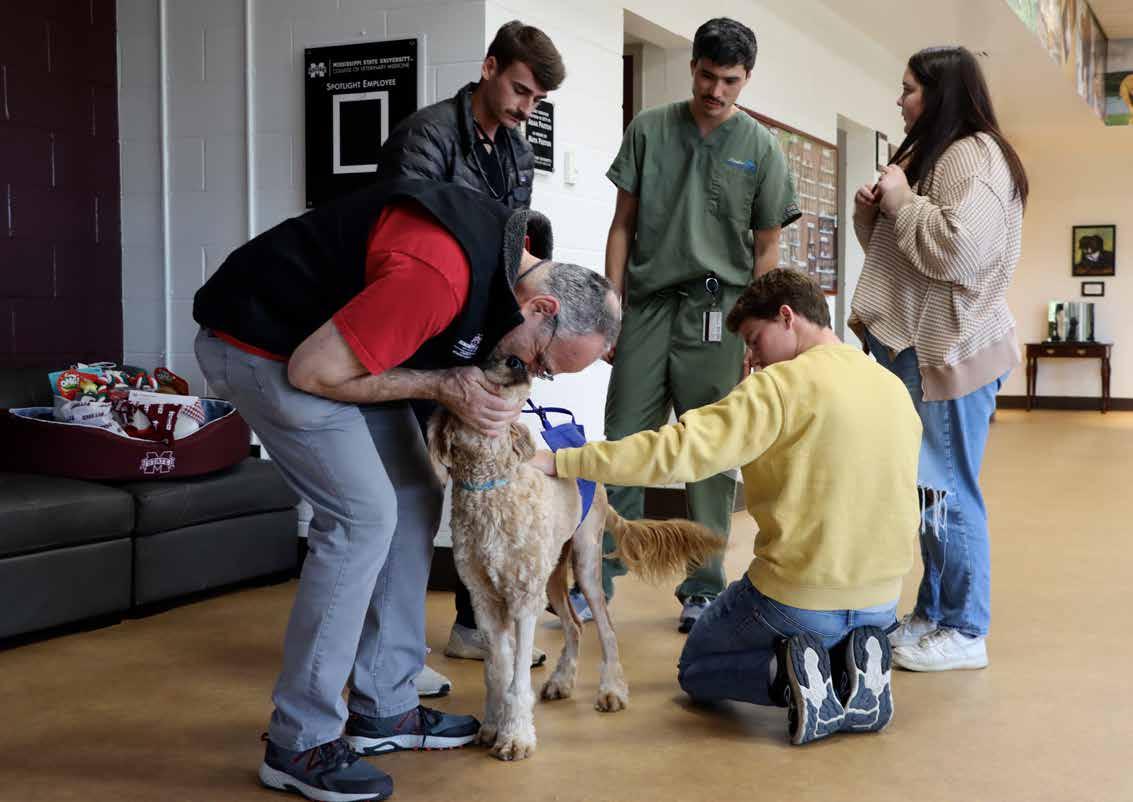
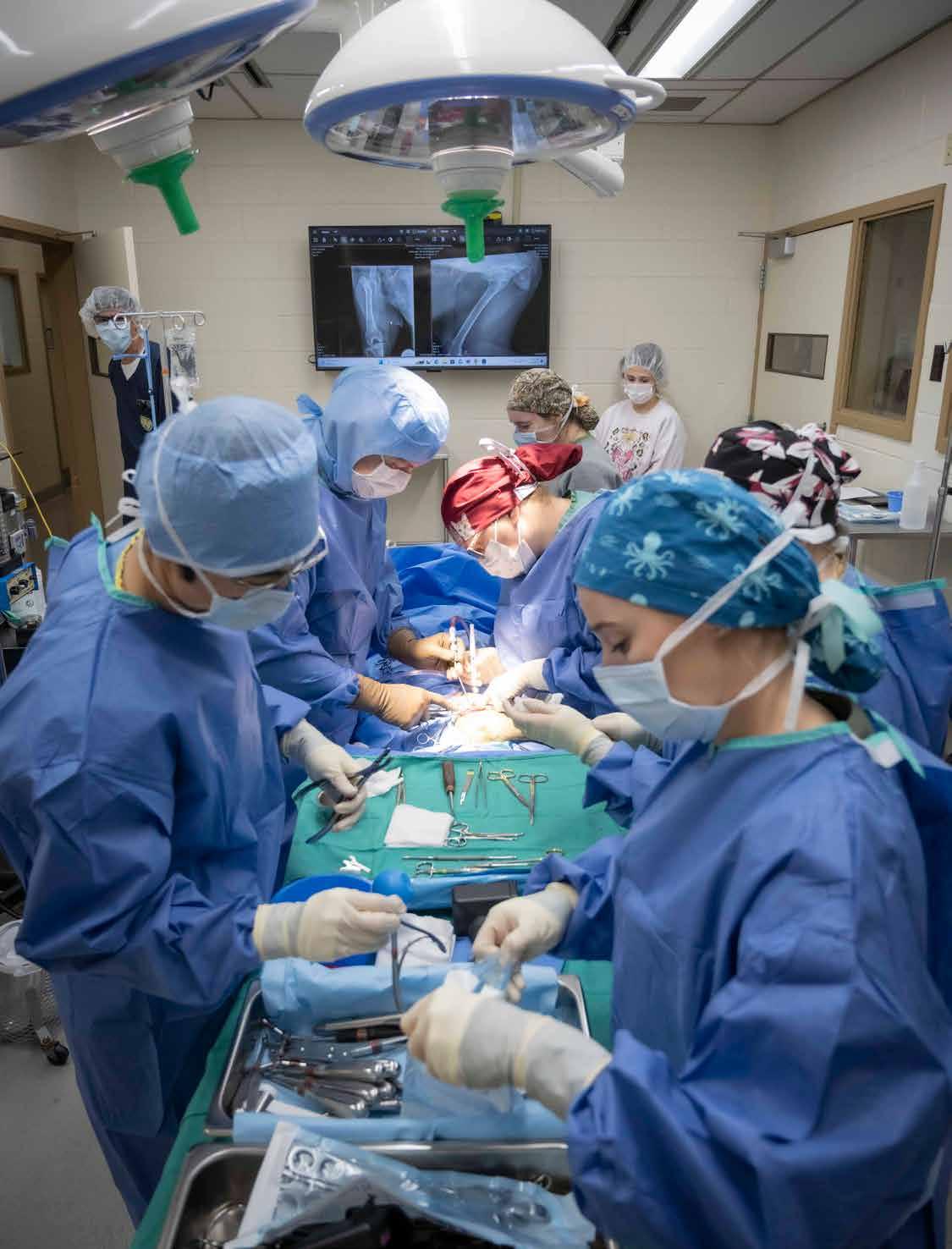
Top: The MSU Animal Health Center team says farewell to Maple as she heads home with Dylan McCay and Emily Roberts. Bottom: CVM’s Animal Health Center performs one of its many complex procedures as part of the more than 100 major surgeries completed each month. With specialists across disciplines, the center offers advanced care for pets from across the Southeast.
Tunica Humane Society originally handled Buddy’s case, but soon contacted Dr. Betsy Swanson, an MSU associate professor of small animal surgery. She started brainstorming Buddy’s optimal path to recovery using fish skin grafts. She was getting a Brazilian research paper on using tilapia skin for burns translated to English, when she recalled a colleague’s work with Kerecis, a medical device company that produces skin grafts for animals and humans from ethically sourced cod.
By the time Buddy arrived in Starkville, Swanson had spearheaded a gift from Kerecis VET, which gave nearly $25,000 of North Atlantic cod skin grafts to treat Buddy’s burns.
“When he came to us, his whole head was wrapped, but he still came out of that car with his tail wagging and giving everybody kisses,” Swanson said. “All he had to do was brush that bandage against something and he would whine. All you could think was that poor, poor dog. How is he so strong that he’s still loving everybody?”
The extensive, state-of-the-art procedures and surgeries performed at MSU, guaranteed Buddy’s best possible outcome during his eight-month stay in Starkville. For Buddy’s case, Swanson said he needed 24/7 care with specialists in surgery, critical care, anesthesia, ophthalmology, pharmacy and community veterinary services to survive and recover. In short, he needed Mississippi State.
“The resources Mississippi State provides, especially in Mississippi where there are not a lot of specialty veterinary practices, is needed,” she
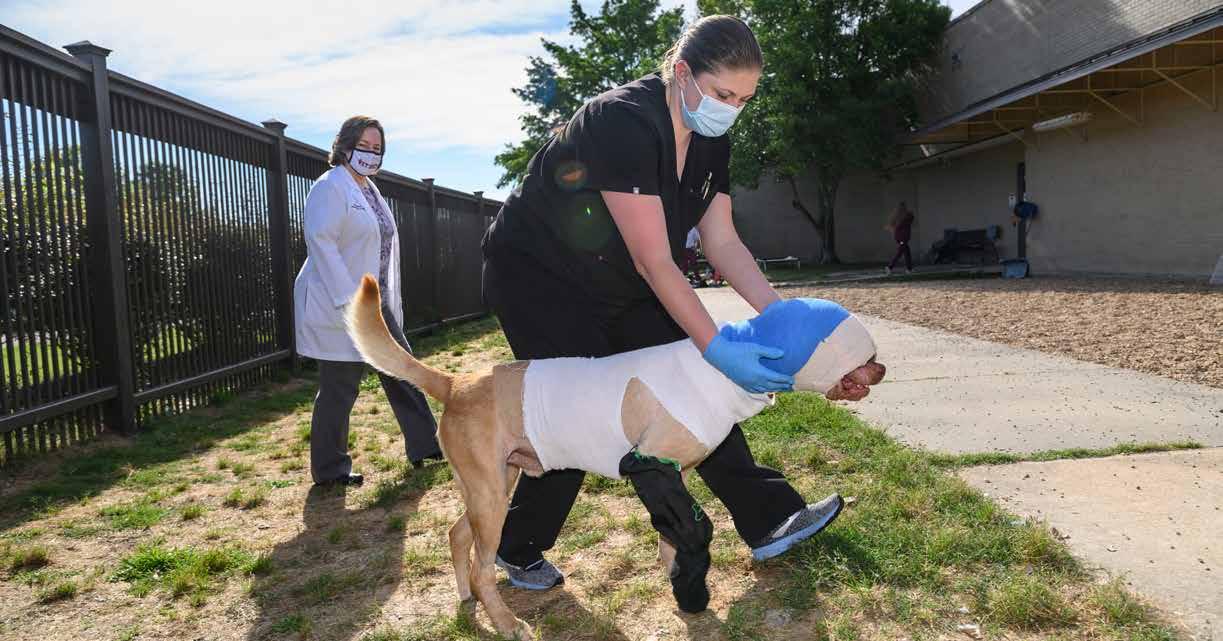

Wrapped in bandages after receiving extensive facial burns, Buddy came to Mississippi State in need of urgent, specialized care. Despite his injuries, the resilient Labrador greeted staff with tail wags and kisses to make the start of his monthslong journey to recovery. The veterinary team was led by Dr. Betsy Swanson (top left), with significant involvement from vet student Dr. Melody Whitney, who is now an assistant clinical professor.
CVM FUNDS SAVE ANIMALS: Support Critical to Veterinary Care
The Mississippi State College of Veterinary Medicine offers exceptional medical care for animals, but this expertise comes at a price. Fortunately, programs like the Sue and Sarge McLean Client Assistance Fund and the Small Animal Good Samaritan Fund help fill the gap.
Jimmy Kight, CVM senior director of development and team lead, explains that these funds provide essential financial support for both owned and unowned animals in need of life-saving care. Without these funds, the thousands of dollars required for such care would be out of reach for many pet owners.
“Many people have dogs and cats, and at some point, they all need to go to the vet. When you need the highest level of care, you come here,” Kight said. "Pets are like family and we all want the best medical care for our family. That’s what the College of Veterinary Medicine provides.”
The CVM funds make an impact because of the gifts from those who believe in the university’s mission. Help continue to grow CVM’s impact through generous gifts online.
https://dda.msstate.edu/college-of-veterinary-medicine.

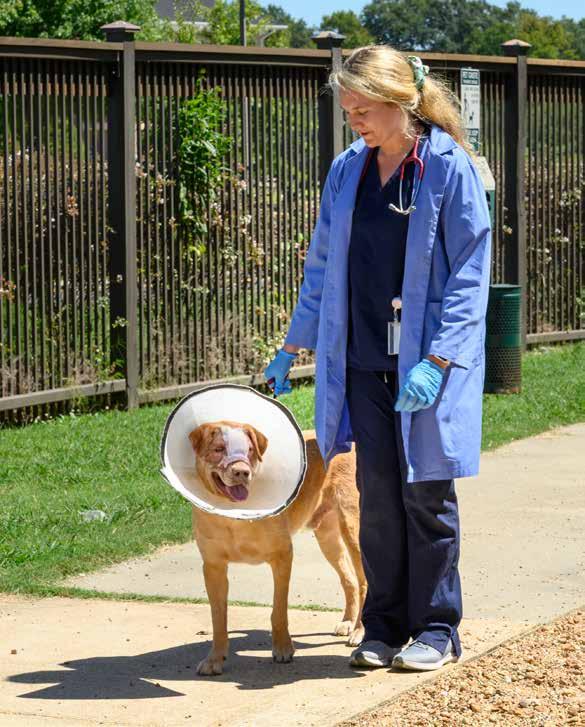
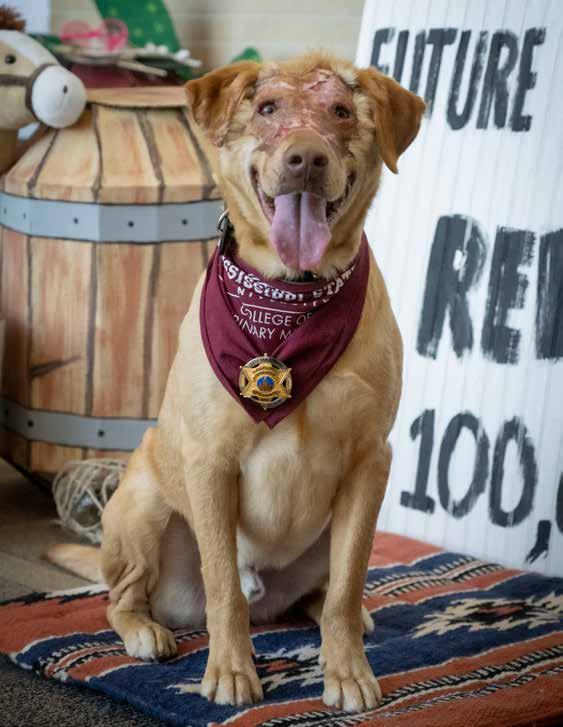

said. “To have a place like this that can offer this level of care and these specialists is invaluable.”
Buddy garnered national support and an online following from those hoping to adopt him after his recovery. But as an unofficial mascot for the vet school, Buddy found a home in Starkville with Swanson who fostered him before officially making him a part of her family.
“It wouldn’t seem right for Buddy to be anywhere else,” Swanson said.
Still ever-present on campus, Buddy wags his tail and is happy to greet everyone wherever he is, from vet school open houses to the Starkville Dachshund Dash.
“I already loved him as my patient and just seeing him in my home—he was exactly the kind of dog that I love,” Swanson said. “He’s super smart and wants to learn, very interactive. I was head over heels in love with him as a companion, not just as my patient.”
‘This is what we do’
Because of the university’s expertise and level of care, MSU veterinarians will always see cases like Buddy and Maple. As popular as those dogs became online, MSU sees hundreds more a year that go unnoticed.
“There’s a lot of rescue groups in the area that we work with. We see a lot of these cases here because we don’t say no to anything,” Jaffe said. “If we see someone in need of care, we help them. If there’s any chance we can help these animals, one way or another, we go for it.”
Jaffe explained that these cases, though sometimes challenging, give faculty, staff and students the experience needed for every case they treat.
“We see so many puppies with old fractures and we have to try and piece them back together,” he said. “These dogs with old injuries may not always turn out as successful as we want, but we offer them a much higher quality of life. As surgeons, we always have a vision of the perfect surgery and we don’t like anything less than perfect.”
This mentality isn’t uncommon at Mississippi State. Though Maple and Buddy’s cases are a testament to the lengths Mississippi State veterinarians will go to for every patient, their stories aren’t unique. Swanson approaches every case with that same research and passion.
That’s true across the board. That’s the standard for the Animal Health Center’s staff: exhaust all options and give each patient a fighting chance.
“That is what we do, it’s why we’re here,” Swanson said. “We can’t save them all, but we sure try. You never know when a miracle can happen, Buddy sure was one.” n
Top: Buddy's case brought together a team of specialists working around the clock to give him a second chance at life. Middle: Buddy’s transformation is nothing short of extraordinary. Thanks to innovative cod skin grafts and months of expert care, the once-severely burned pup made a stunning recovery. Bottom: From patient to family, Buddy found his forever home with Dr. Betsy Swanson—the MSU veterinarian who led his care.
ALL DOGS (AND CATS) GO TO HEAVEN MSU alum brings peace to pets and their families
By Mary Pollitz, Photo submitted
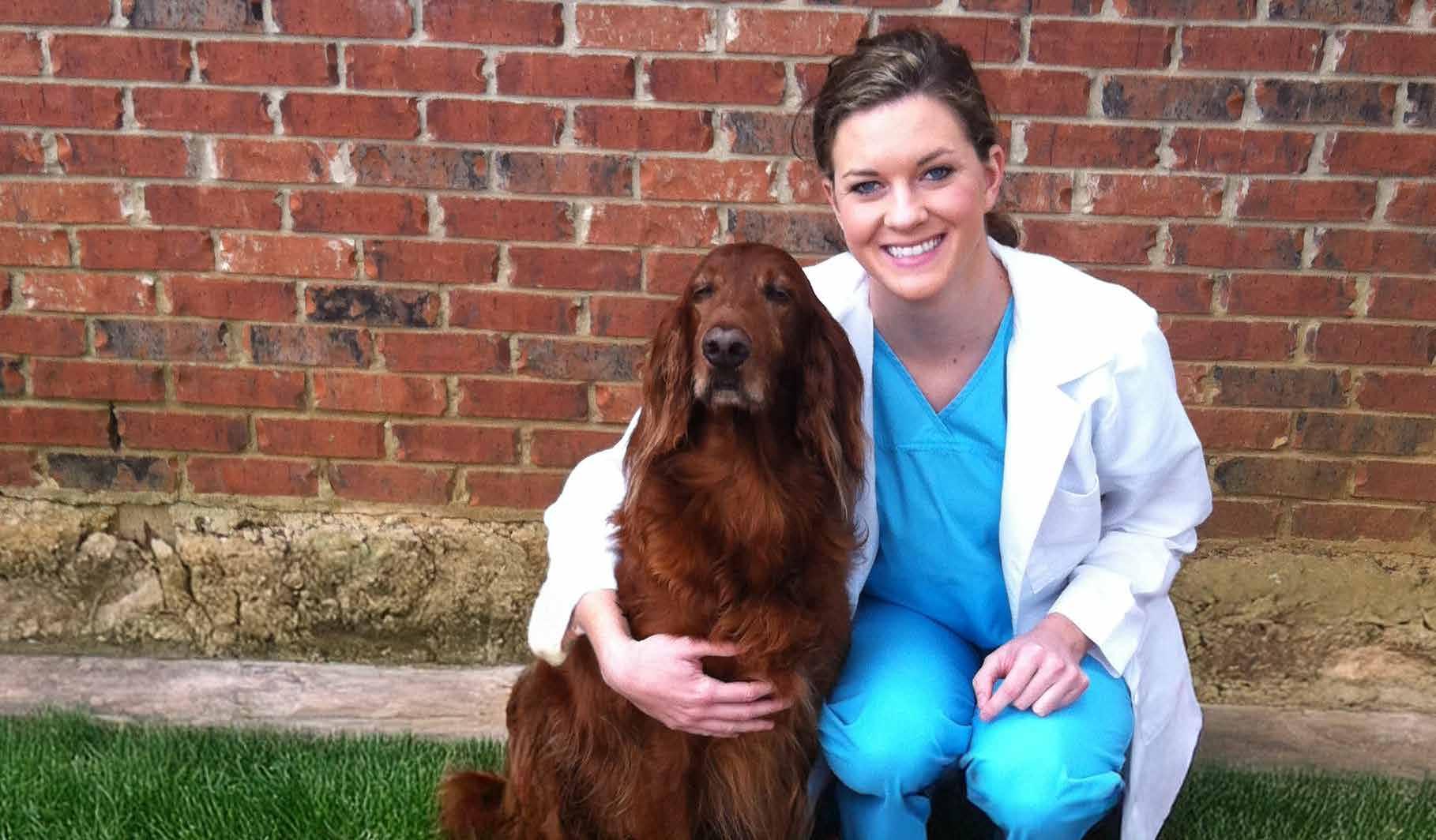
Though veterinarians try, not every animal can be saved, even with the most advanced medical intervention. In those cases, giving the animal peace is the last, best decision a pet owner can make.
With that in mind, Dr. Anne Holloway, a 2011 MSU veterinary medicine graduate, established Graceful Journey, an in-home service designed to help pets pass peacefully and comfortably in the familiar loving environment of their homes.
“I realized we can do better for our pets by having them not be stressed in their last few moments of life,” she said.
A native of Lake Jackson, Texas, Holloway spent 13 years in general veterinary practice in Mississippi and Texas, but said she came to realize she could do more for her patients and their families by providing a niche service: athome euthanasia services for cats and dogs.
Though her decision to change career paths was recent, she said the importance of compassionate care was something she learned during her time at Mississippi State, where she witnessed first-hand the College of Veterinary Medicine’s emphasis on comfort and compassion.
“Even then, in-home euthanasia and even comfort rooms were relatively new,” she said. “But, MSU faculty really put a huge emphasis on comfort. They set up a special room for end-of-life. They did their best to make it as home-like as possible. That really spurred this idea for me.”
“I realized we can do better for our pets by having them not be stressed in their last few moments of life.” ~ Anne Holloway
Dr. Tracy Jaffe, an MSU assistant clinical professor, said the practice of in-home euthanasia makes a difference for all involved. It’s something she’s experienced from the perspective of both a pet owner and the veterinarian performing the end-of-life service.
“It’s much less stressful for both the pet and the pet owner not to have to travel to an animal hospital,” Jaffe said, “Putting a pet to sleep is such an emotionally difficult decision to make, and we should attempt to make the pet’s transition as relaxed and as comfortable as possible. Permitting a pet to spend its final moments at home, in a private setting that feels safe and familiar, helps make the process more peaceful for all involved.”
While Holloway admits she never would have envisioned this career path as a student—and certainly not as the 5-year-old who dreamed of caring for animals—she says she now can’t imagine not providing this much needed care to animals suffering from incurable illness.
“Owners are so appreciative,” Holloway said. “It can be sad, but being there and seeing the bond between pets and their owners, knowing that we’re doing what’s best for the animal, makes it worth it.
“It’s a blessing to end suffering and a huge honor to come into these pet owners’ homes,” she continued. “They know I have the best intentions and see it as a blessing to end whatever suffering their pet is going through.”n

STARKVILLE CLINIC





College


Dr. Bill Hulett celebrates his milestone moment outside Humphrey Coliseum with his wife, Dr. Karen Hulett, their daughter, Sara Yarrow, and son-in-law, Keith Yarrow.
of Arts and Sciences Dean Rick Travis congratulates Hulett on officially joining the ranks of MSU alumni.
Dr. Bill Hulett waits with fellow graduates as names are called during Mississippi State’s spring commencement ceremony.
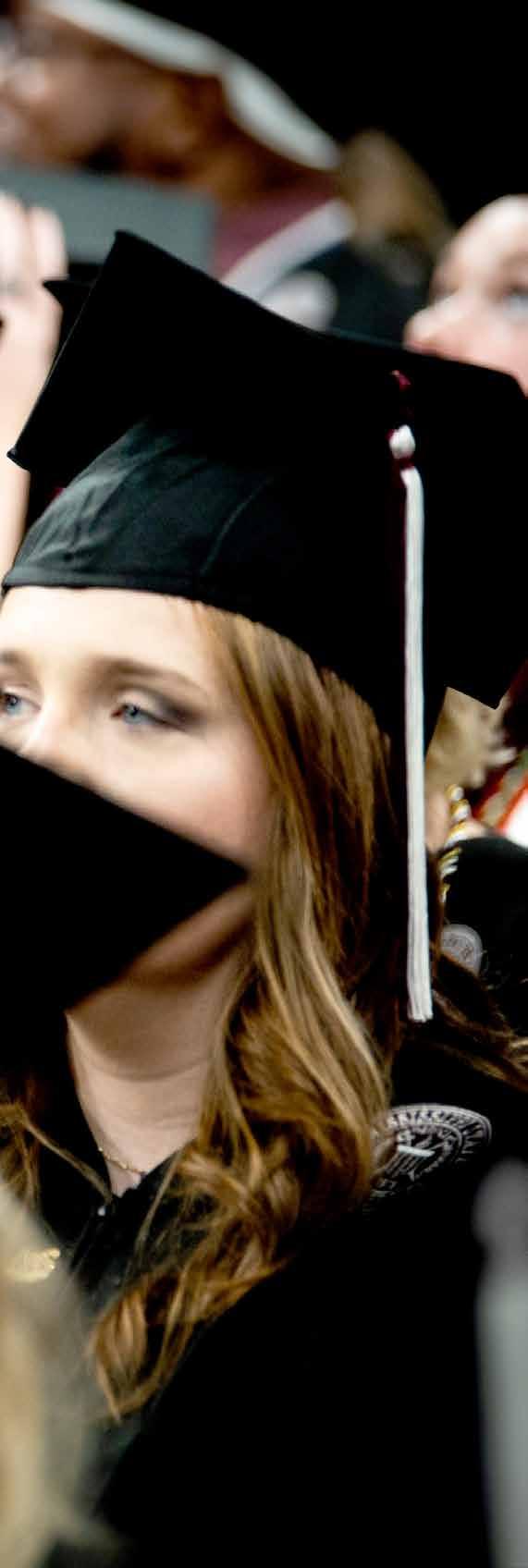
A BULLDOG STORY, DECADES IN THE MAKING
At an age when many choose to slow down, Dr. Bill Hulett decided to write a new chapter— one proudly colored in maroon and white. In 2024, the retired anesthesiologist and longtime Mississippi State University supporter officially became an alumnus, earning his Bachelor of Arts at age 77.
Although his diploma is newly printed, Hulett’s relationship with MSU began decades ago. It all started with a “quasi-blind date” with Karen Dwyer, a spirited MSU 1972 science alumna who would later become his wife of more than 50 years. Her love for Mississippi State quickly became their shared passion. Over the years, the Huletts, who make their home in Madison, deepened their involvement with the university, supporting both athletics and academics. Together, they served on the College of Arts and Sciences Advisory Board for more than 25 years.
As a board member, Hulett has been a tireless advocate for student support and academic achievement. Among his proudest contributions is helping launch Doctor Dawgs, an alumni network of healthcare professionals who graduated from MSU. Since 2017, the group has served as a valuable resource for current pre-health track students, providing mentorship and connections through the university’s Health Professions Resource Center and alumni-led events. Hulett also supported MSU’s successful bid to establish a chapter of Phi Beta Kappa, the nation’s oldest and most prestigious academic honor society. He credits College of Arts and Sciences Dean Rick Travis and Sara Frederic, the college’s director of development, for helping bring these efforts to life. His decision to return to the classroom was driven by a personal goal. After seeing cognitive decline among peers, Hulett turned to education as a way to stay mentally sharp. What started as a casual interest in online courses soon evolved into
a full academic journey—and a degree he hadn’t originally intended to pursue.
“It began as a brain exercise,” he said. “But with the help of an amazing advisor, Kate Sawaya, it turned into something I’m genuinely proud of.”
A self-described nontraditional student, Hulett took most of his classes online, including upperlevel history and psychology courses. He jokes that typing was the hardest part of going back to school, but he found the work meaningful— especially a Cold War history class that examined events he’d lived through.
“My MSU diploma doesn’t say ‘Dr. William Hulett.’ It just says William B. Hulett. Because when I came back, I was just another student. I wanted to do it the right way.”
“It was fascinating to revisit those times through an academic lens,” he said.
Despite his previous education, including a medical degree and a long career in anesthesiology, Hulett said he felt something was missing.
“My MSU diploma doesn’t say ‘Dr. William Hulett.’ It just says William B. Hulett,” he said. “Because when I came back, I was just another student. I wanted to do it the right way.”
Now officially an MSU alumnus, Hulett is proud to stand alongside the many Bulldogs he’s supported for years. Reflecting on what the university means to him, he recalled an essay he once wrote following a tough football loss. After hosting a game-day gathering at home, he sat down and captured what MSU meant to him—beyond the scoreboard. The piece, titled “Observations of a Walk-On Alumnus,” was later published in Alumnus Magazine.
He closed that essay with a simple but heartfelt line: “It’s good to be an MSU Dawg.”
That message still rings true. “It really is good to be an MSU Dawg,” he said, smiling. “That’s never changed.”
Dr. Bill Hulett is living proof that it’s never too late to come home—and that the Bulldog spirit truly has no age. n
Adapted from the Vision Podcast interview with Dr. Bill Hulett, hosted by Karyn Brown and Sam Kealhofer.
SCAN TO VIEW 2002 Alumnus story by Hulett
SCAN TO HEAR VISION Podcast with Hulett


‘THIS
IS WHAT I WANT TO DO’ MSU ALUM BRINGS
PLAYER-PERSPECTIVE AS WOMEN’S BASKETBALL COACH
BY MARY POLLITZ
“By competition time, we had the best team and won every game. I knew then—this is what I want to do. It’s weird, everything just came full circle. I’m doing what I love, both playing and coaching.”
~ Victoria Vivians
With a loss to the Las Vegas Aces in the 2024 WNBA playoffs, Seattle Storm shooting guard Victoria Vivian’s professional basketball season ended—just in time to start her collegiate coaching career with her alma mater.
Just two months before the college basketball season started, Vivians traveled from Seattle, Washington, to Starkville, becoming a new assistant coach with Mississippi State.
“While playing professionally, I was on call but MSU let me focus on playing basketball,” Vivians said. “When I got here, I really locked in as a coach.”
The 2024-25 season was Vivians’ first year as a basketball coach, but it’s not her first time coaching in MSU’s Humphrey Coliseum. During her junior year, the Bulldogs hosted a basketball camp for young students. She led a group of aspiring athletes that included girls who are now NCAA stars. With an admittedly weaker team, Vivians focused on improving her players and developed a game plan before the end-of-camp competition.
“By competition time, we had the best team and won every game. I knew then—this is what I want to do,” she said. “It’s weird, everything just came full circle. I’m doing what I love, both playing and coaching.”
Switching from being coached to being the coach wasn’t a difficult transition for Vivians to make. She quickly embraced her role in player development for the Bulldogs— from practicing against the starting squad to pushing each player during early morning workouts.
“It’s been a learning point for me,” she said. “My first week, I didn’t say much at all. It wasn’t because I was afraid or anything. I was just observing the players, observing the culture, just trying not to step on toes. But I’m a player at heart. Eventually, it all came out.”
STARKVILLE’S RISE IN WOMEN’S SPORTS
During Vivians’ MSU career from 2014-18, the talentstacked Bulldog squad took women’s sports to unseen heights in Starkville. Attendance skyrocketed, tickets sold out, businesses closed during game time and fans made The Hump unsustainable for opposing teams. In 2018, a recordbreaking crowd of 10,794 fans watched the Bulldogs defeat the reigning national champions South Carolina. That record stands as the university’s largest basketball crowd for both the men or women’s teams.
“It’s super surreal because that doesn’t happen everywhere,” Vivians said. “You go to some of these games and there's barely 20 people in the stands. To see how this


A standout basketball star in high school, Victoria Vivians’ 5,745 points still stand as Mississippi’s all-time scoring record in both boys' and girls' basketball. At Mississippi Sate, she helped lead the Bulldogs to back-to-back national championship appearances and was voted Homecoming Queen in 2017. In 2018, she completed her bachelor’s degree in family development and human studies, and was a first round pick in the WNBA draft.
program grew and to play a part in it, it makes me feel like I did something good.”
Sam Purcell, MSU head women’s basketball coach, knew the impact Vivians would make on his staff. As an assistant coach with Louisville in 2013, he traveled to Scott Central High School to recruit her for the Cardinals. He crossed paths with her again five years later in the 2018 Final Four matchup. As an opposing coach with Louisville, Purcell stood and watched Vivians score 25 points as the Bulldogs won in overtime.
“There are moments when you sit there and watch someone like her and you’re just in awe,” Purcell said. “That’s what I won’t forget—just how special she was, how quick her release was, how strong she was, and, most importantly, how she carried herself. That’s the beauty of the women’s game— just watching these players become who we thought they would and take the women’s game to another level.”
Though, the national popularity of women’s sports has increased as well, Mississippi State fans were ahead of the curve, having packed The Hump for nearly a decade, and as an athlete Vivians played a pivotal role in building the program. With that power, impact and experience, Purcell knows her leadership as a coach will continue to grow the program.
“It’s one thing for me to speak on Mississippi State’s history, but it’s another level when Victoria does,” Purcell said. “It gives you goosebumps. She commands a room. It means something different with her having worn that jersey.”
ELEVATING PLAYERS, LIVING HER ROLE
Sitting on the bench in The Hump is a different perspective for Vivians. But just as she quickly learned the game of basketball, she’s picking up the art of coaching it.
“The hardest thing for me is not subbing myself in,” she laughed. “I’m very passionate about this game. After my first week, it felt like I’d been here for 10 years. I tell the players, ‘If it’s broken, fix it. If it’s not broken, just go in and make it better.’”
Purcell said having Vivians on staff serves the team in various capacities. As a professional athlete, she’s an expert in the game. As a Bulldog alum, she knows the environment and the fan’s expectations. After taking the Bulldogs to back-to-back national championships and unseen heights as a player, Purcell is excited to see her make that same mark as a coach. That path starts with Vivians reminding players of the trajectory this program can take and the responsibility that comes with that.
“I can’t say enough great things about who she is as a person,” Purcell said. “She’s got a heart of gold. You’re kind of in awe because she’s a pro, but then when you get to talk to her, you’re like, ‘Oh my gosh, she’s one of us.’”
THE MISSISSIPPI STATE FAMILY
Vivians felt the family tie with the university almost immediately as a high school recruit. Even with a list of collegiate offers, she was going to be a Bulldog.
“It was a no-brainer,” she said. “I got here, and everything was so family oriented. It was all about family. I knew if I stayed here, my parents, my family—everybody could just come to all the games and watch me play.”
Vivians is always locked in, whether she’s playing in the WNBA, helping facilitate MSU practices or staying up late reviewing game film. That drive is what helped her rack up accolades as a high school and college athlete. That intensity will also push her as she helps lead the team. Vivians has felt the family atmosphere and the buy-in from the community, as a player and a coach. To her, Mississippi State is family.
“Everybody embraced me as a player— Mississippi State fans, the team, coaching staff and the community,” she said. “Coming back here, it couldn’t go any smoother.” n
CONSERVATION THROUGH COALITIONS
MSU alum merges profit with sustainability
By Mary Pollitz, Photo by Stephen DeVries

Jimmy Bullock’s parents didn’t care where he went to college. He just needed to go.
He found the answer to “where” as a high school senior, while on a camping trip with his best friend Randy Spencer.
“We can’t really agree on who had the idea, but one of us said ‘Let’s go to Mississippi State and study forestry and wildlife’ and we both went,” the Bogue Chitto native recalled.
Bullock graduated from Mississippi State in 1980 with a bachelor’s degree in forestry and 1982

with a master’s degree in wildlife ecology.
During that time, Bullock discovered a passion for wildlife conservation and forest management that would serve as the backbone of his career ambitions.
“Being at Mississippi State helped me to learn how to think," he said. “Adding one and one and getting two is not as simple as it seems. You want to think about what you’re doing and why, and also think about how the parts of the equation were formed and how the result will impact where you end up.”

Our PEOPLE
Path to Conservation
After graduating, Bullock spearheaded numerous conservation efforts, including chairing the Louisiana Black Bear Conservation Committee, or BBCC, which made a major contribution to the restoration of the subspecies found in east Texas, Louisiana and the lower two-thirds of Mississippi.
Bullock said his approach to black bear conservation applied a lesson from the northern spotted owl which sparked legal battles between conservationists and forest landowners, when it was added to the federal list of threatened species. Instead of taking things to court when the Louisiana black bear was proposed for the list in 1990, he and the BBCC forged alliances to begin conservation efforts for the bear.
“A group of folks decided in the South, we could avoid the ‘timber wars’ between landowners and environmentalists,” he said. “We put together a grassroots effort called the Black Bear Conservation Committee. It was about how we could help conserve the bear and keep working forests working. I enjoyed trying to find ways to achieve conservation while allowing working forests and farms to continue to produce products essential to society without undue regulatory burden.”
That has been the crux of Bullock’s career—marrying two diverse and sometimes combative parties with two goals in mind: finding the best path for a healthy environment and conserving species in need of conservation while allowing landowners to be able to achieve their economic goals.
Serving in various roles, Bullock’s 18-year career leading the Sustainability Team of Resource Management Service, LLC, focuses on just that. RMS manages 2.4 million acres of private forestlands throughout the United States and Brazil, and Bullock is instrumental in advocating for conservation efforts within these lands.
He and his team often serve as a bridge between private landowners and regulators, aiming to find common ground where both the environmental and economic efforts can thrive.
Working with policy makers, state and national regulatory agencies, and serving as a
national advocate for forestry issues that are germane to RMS-managed lands, Bullock continually makes strides in conservation. He helped pioneer conservation on private lands for a federally listed species, the Red Hills salamander in Alabama—coauthoring three habitat conservation plans that detailed ways to help recover the species.
Bullock’s work with the Red Hills salamander, which dates back to the mid ’90s, underscores his core belief that collaboration and communication play vital roles in the fight for conservation.
“We put together a grassroots effort called the Black Bear Conservation Committee. It was about how we could help conserve the bear and keep working forests working.” ~ Jimmy Bullock
“It’s all about finding innovative ways to conserve species. Once we demonstrate successful techniques, other landowners can see the benefits and implement them,” Bullock said. “The National Alliance of Forest Owner’s Wildlife Conservation Initiative is one significant conservation milestone. Imagine 46 million acres of managed forests contributing to the conservation of species. The WCI has completely changed the perception of the importance of managed forests for conservation and has built a platform for trust between forest landowners and state wildlife agencies, the U.S. Fish and Wildlife Service, and other stakeholders.”
A legacy built on Maroon and White
With no set schedule, there’s no typical day for Bullock. The RMS Sustainability Team works on projects ranging from forest certification to advocating for policy changes in Washington, D.C.
“Forests are more than just growing trees,” he said. “They are natural solutions
for climate challenges, they help sequester carbon and clean our air, they provide clean water and they conserve and enhance wildlife habitat and biodiversity. One of our most recent projects is really exciting, as we are demonstrating the biodiversity found in RMS-managed forests.”
Now 40 years into his career, Bullock has racked up numerous accolades, celebrating his progress in advancing conservation. He was named a 2024 Champion of Conservation by Garden & Gun magazine, earned the Quality Deer Management Association’s Joe Hamilton Lifetime Achievement Award, received the Wildlife Management Institute’s George Bird Grinnell Award for distinguished service in natural resource conservation and was the MSU College of Forest Resources’ Alumni Fellow in 2019.
As he nears retirement, he is excited to see what the next generation can offer and makes a point to devote time to mentoring up-and-coming conservationists.
“I am excited to be a part of developing innovative new strategies for conserving species,” Bullock said. “But, I’m more excited to watch the new generation that truly has this passion for conservation to pick up the mantle and run with it.”
He advises them to take a page from his book, noting that this simple approach is almost always the answer: communicate, collaborate and build a strong network based on trust.
“It’s a win for conservation and a win for the landowners,” Bullock said. “What’s really neat is the trust factor that’s being built up between landowners and the regulatory community, whether it’s state wildlife agencies or the federal agency. We trust each other enough that we’ll do the right thing. And we do.”
And Bullock is proud to say that MSU alumni have and are poised to continue having a big impact on these relationships moving forward, noting that regularly finds himself shaking hands with Bulldogs from across the country while in Washington, D.C. to discuss policy.
“The Mississippi State network of forestry and wildlife graduates is alive and well,” he said. n
MAROON & WHITE DONE RIGHT

Family ‘s love of MSU sparks generational commitment Bulldogs
By Susan Lassetter, Photos by Emily Grace McCall and Submitted
Standing in The Junction in early 2025, Gary Gleason couldn’t help but remark on the changes he saw to Mississippi State’s campus—new buildings, new and “missing” roads, and far more students than when he was an undergrad in the 1980s. Those changes are even more stark for his mother Bettye, who was a student in the 1950s.
Still, despite how the university has grown since their days as students, they said the feeling of being a Bulldog and the sense of purpose that drives Mississippi State has remained the same. And that shared sentiment has not only kept the Gleason family tied to MSU but also provided a maroon and white thread that has kept the family connected through the generations.
“I don’t know that we’d be as close if we didn’t all share that Mississippi State

connection,” Gary said of the relationship that exists between him, his parents, his brothers and their children. “If we had all gone to different schools, there would be a big link missing. It’s cool that we have this common thread connecting our lives.”
It all started when Bettye Bradley, a graduate student in business, came to Mississippi State following her graduation from Delta State and met the late John “Jack” Gleason in Perry Cafeteria.
A Corinth native, Bettye served as a sponsor for MSU’s ROTC and was selected as the university’s first Miss MSU. Representing MSU in the Miss Mississippi pageant, she came in as runner-up to Lynda Lee Mead of Natchez, who would go on to be crowned Miss America 1960.
John, a Doddsville native who grew up on a farm, was in Starkville to study agricultural
engineering, though his education was put on hold while he completed military service. He was living in Old Main when it burned in January 1959. Bettye, who was already smitten with her new beau, watched the inferno from the window of her dorm— Magruder Hall—which was across the street.
“It was horrific; just unbelievable,” Bettye recalled, explaining how she waited and watched to make sure John emerged from the building. “Old Main was supposed to always be there. To look out and see it going up in flames was just heartbreaking.”
The couple married the next year and became eligible for married-student housing. Having completed her master’s degree, Bettye taught classes in the College of Business. John graduated the next year.
After a brief stint with Massey Ferguson, John was appointed to the U.S. Secret


Bettye captured this photo of Old Main in flames from the window of her dormitory, Magruder Hall.
Bettye pictured with the MSU ROTC.
Service. Among his first jobs was guarding the west gate of the White House during the Kennedy administration. He took a leave of absence from the Secret Service for a year to help his aging father manage the family farm, leaving JFK’s detail roughly a month before the assassination.
“I was thankful he wasn’t serving when Kennedy was assassinated,” Bettye recalled.
“But dad spent a lot of time guarding Kennedy,” Gary added. “Mom even accompanied him to Martha’s Vineyard and the Kennedy Compound during that time.”
John ultimately had a 34-year career with the Secret Service, serving under every president from Kennedy to Bill Clinton. During that time, he and his family—which grew to include sons Brad, Gary and Michael—lived in Washington, D.C.; Chicago, Illinois; and Knoxville and Memphis, Tennessee; and Clinton. He retired in 1994 as special agent in charge for the State of Mississippi.
Bettye, meanwhile, returned to the workforce after raising her sons by working part time for the Mississippi Railroad

Bettye Gleason holds a vintage issue of Alumnus magazine featuring her on the cover as Mississippi State’s first Miss MSU and a runner-up in the 1960 Miss Mississippi pageant.

Association. She then had a 20-year career as a government affairs liaison for Illinois Central Railroad, retiring as Canadian National Railroad’s director of government affairs for the state of Mississippi.
Gary speaks with undeniable pride of his parents’ careers, especially his trailblazing mother. Following the untimely death of her father, Bettye was raised by a single mother who worked multiple jobs. The family had little, and Bettye grew up making her own clothes— including those for pageants. Despite these hardships, she still found her way to earning a master’s degree at a time when pursing higher education wasn’t “something women did” and ultimately overcoming challenges to earn her position with the railroad.
“Some of the men in the railroad association didn’t want a woman representing them at the Capitol,” Gary said. “But Illinois Central was so impressed by her and her abilities they said they were going to pull out of the association, along with Kansas City Southern, and she went on to represent their interests.”
Support your Bulldog Beauties
A lot has changed in the 66 years since Bettye Bradley represented Mississippi State in the Miss Mississippi Pageant. For one, it’s unlikely anyone in this year’s contest made their own clothes for the competition like she did in 1959. For another, there’s a lot more scholarship money—more than $100,000—on the line.
One thing that hasn’t changed, however, is MSU’s reputation for having plenty of representatives in the Miss Mississippi pageant. Miss MSU 2025 Sarah Randolph is the official Bulldog entrant, but there are several other members of the Maroon and White family who will join her onstage in Vicksburg to vie for a chance to represent the state in the Miss America competition. When the stage lights come on, the Bulldog family can cheer for the following MSU students and alumni in this year’s contest:
• Miss Brandon Skylar Harden, a senior in interdisciplinary studies
• Miss Starkville Karolina Heathcock, a senior in wildlife, fisheries and aquaculture and Student Association vice president
• Miss All-American City Jaycee Janzen, a senior in marketing
• Miss Lee County Avery Claire Littleton, a 2022 biomedical engineering graduate
• Miss Fairpark Aniyah McKissic, a junior in music education
• Miss Vicksburg Morgan Nelson, a senior in biological sciences and Miss MSU 2024
• Miss Heartland Jalyssiah Ott, a senior in psychology
• Miss MSU Sarah Randolph, a senior in biological sciences
Mark your calendars for the 2026 Miss MSU pageant, Thursday, Sept. 18, when the university will select its next Miss Mississippi representative.
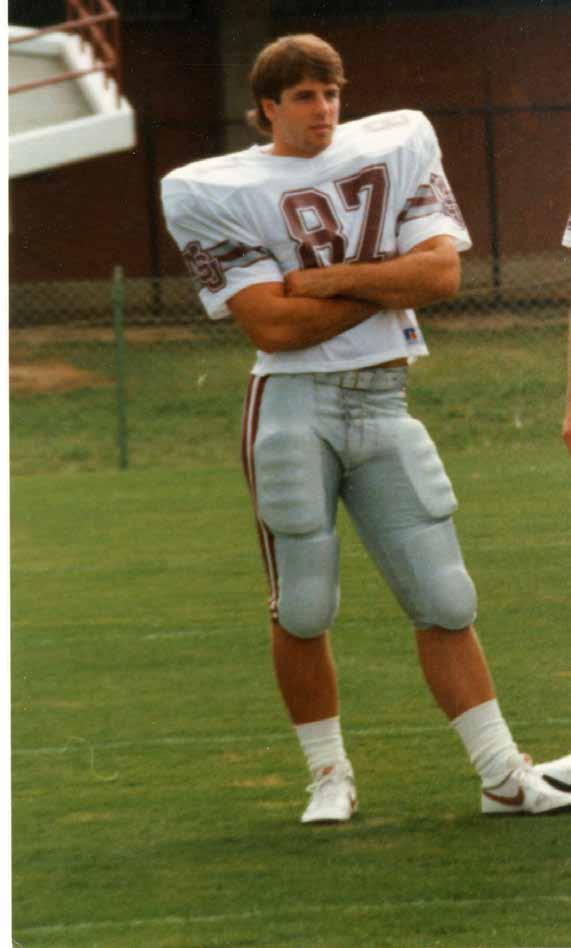

“When they needed legislation introduced, I would help make that happen and work to get it passed,” Bettye recalled.
Gary said he and his brothers always knew Mississippi State was the backbone of their parents’ success—providing opportunities and an education to set their careers in motion. And while as kids they weren’t exactly coming to campus to tailgate for football games, he said his parents made sure the boys knew where the family got its start.
“We might get like a Mississippi State jacket for Christmas or something and we’d follow Bulldog sports from afar,” Gary said. “But the main thing was we always knew that’s where our parents went to school and how it shaped our family.”
When it came time to choose their own destinations for higher education, there was no question where the Gleason brothers would go. In turn, each came to Mississippi State.
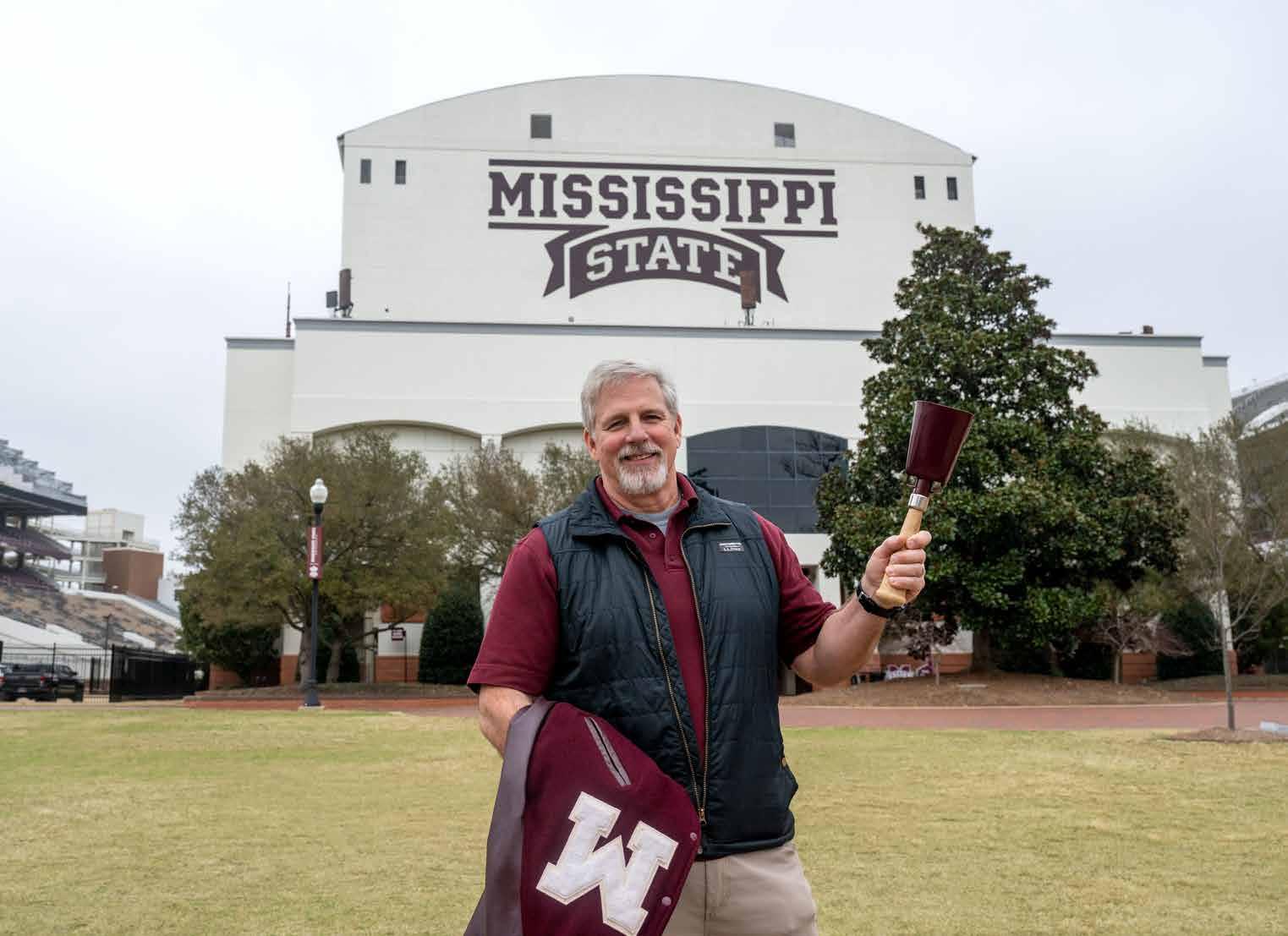
“If we had all gone to different schools, there would be a big link missing. It’s cool that we have this common thread connecting our lives.” ~ Gary Gleason
Brad graduated in 1988 with degrees in business management and marketing and works in the HVAC industry in Memphis. Michael received bachelor’s and master’s degrees in forest products in 1993 and 1995, respectively, before earning a medical degree from the University of Mississippi Medical Center. He now practices in Jackson as a board-certified emergency medicine physician. Middle son Gary earned an industrial technology degree in 1989 and is now self-employed with Gleason Steam LLC —a niche company that provides engineering services and training for industrial and institutional steam users across North America.
While at State, Gary was letterman and a team captain for Bulldog football. As a walkon under Head Coach Rockey Felker, he was a back-up to All-SEC tight end Louis Clark. He recalls beating Tennessee—the defending SEC champions—in Knoxville as one of his stand-out MSU memories.

“It was a thrill,” he recalled. “We practiced all week with huge loudspeakers playing jet noise to prepare us for the crowd noise at Neyland Stadium. But the coolest thing that stuck with me was that when our plane landed at Golden Triangle Regional Airport, it wasn’t just the bus waiting to take us back to campus.
“There was a huge crowd of fans gathered on the tarmac treating us like rock stars as we deplaned,” he continued. “Then, the entire way back from the airport, Highway 82 was lined with fans. There was another huge crowd waiting at McArthur Hall, which was the athletic dorm at the time.”
On the family front, Gary’s playing time gave the Gleason family a reason to visit Starkville and make new memories. The brothers continued to attend MSU sporting events over the years ensuring John and Bettye’s six grandchildren were also exposed to the Maroon and White life.
And it worked. The four grandchildren
Gary Gleason on the field as a Bulldog tight end during his time under Head Coach Rockey Felker. He served as a team captain in the late 1980s.

who have reached college age—Michael’s children Parker, Miller and Carlie, and Gary’s oldest son Jack—have all attended State. Parker earned a biomedical engineering degree in 2022 and is following his father’s footsteps into medicine. Miller enrolled in 2021 and his twin sister, Carlie, earned early admission into the architecture program. She is completing her fourth year in the five-year program.
More than simply making her a Bulldog fan and exposing her to campus, Carlie credits her trips to Starkville with helping to shape her career goals. It was at her family’s tailgates that she met MSU architecture alumna Carley Dunaway who owns Jackson’s Dunaway Williams Architects, where Carlie has interned for three summers.
“I don’t have an earliest or favorite memory of visiting State,” Carlie said. “It’s just that as long as I’ve been remembering things, I remember being here. I remember being in my cheerleader outfit over there. I remember meeting my boss when she was in architecture school at a tailgate outside Barnes & Noble.
“MSU has just always been a part of my life,” she added.
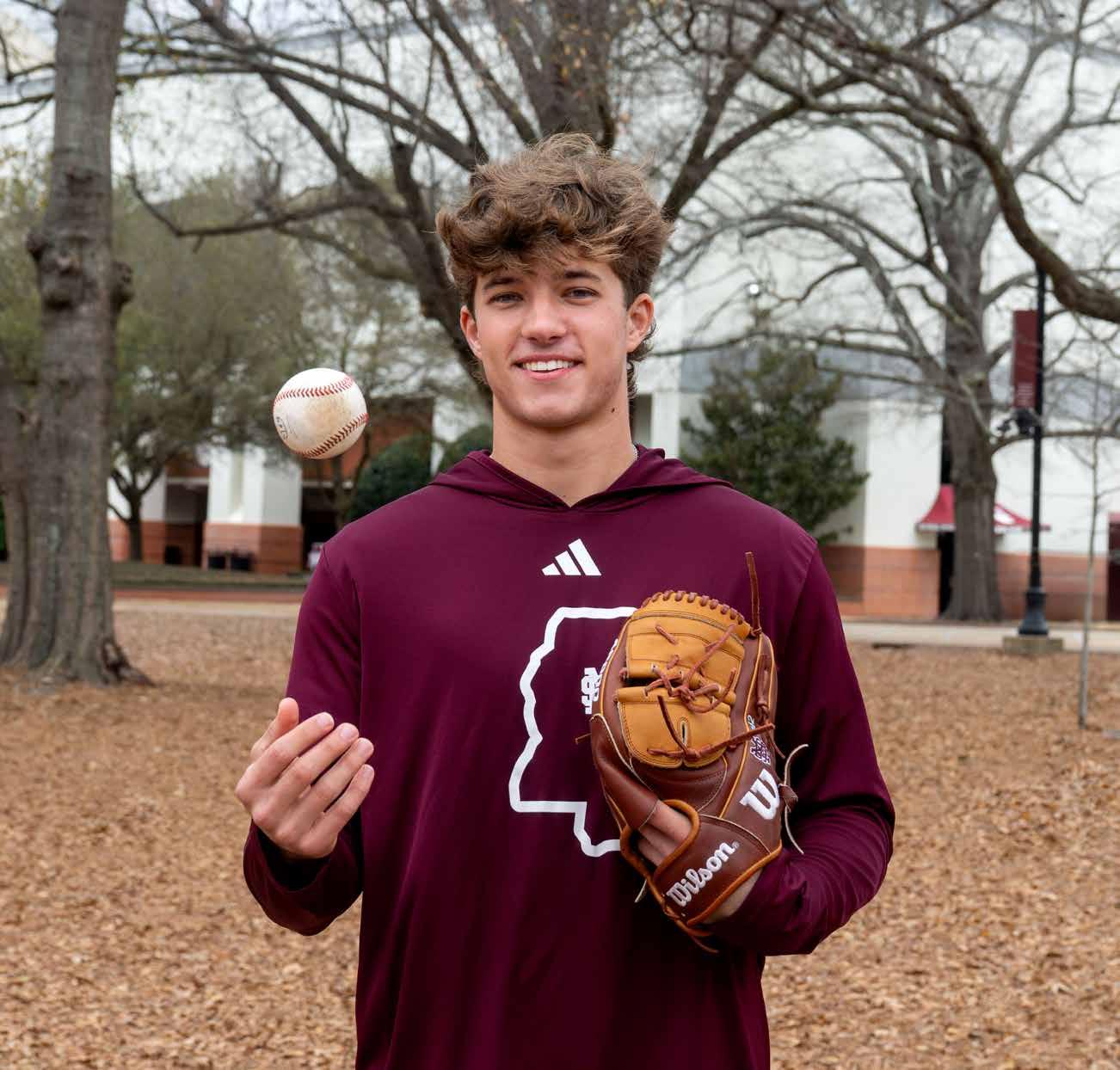
Carlie Gleason, a fourth-year architecture student, and Jack Gleason, a freshman pitcher for the Diamond Dawgs, continue the family’s proud Mississippi State tradition.
Her cousin Jack, agrees. The freshman, who is named after his grandfather, said he never really considered another school. Instead, he hung his hopes on the family alma mater where he developed fond memories while attending baseball camps sponsored by
“That’s the best way parents can encourage their kids to come to MSU. No pressure, no ultimatums. Just exposure to the university and all that it has to offer, and the knowledge of what it can do for you.” ~ Carlie Gleason
the Diamond Dawgs and even a football camp hosted by Dak Prescott.
Now, as a right-handed pitcher, he is part of Bulldog baseball’s youth camps, helping K-12 students from across the region make their own memories of MSU.
“When I was their age, this was my dream. This is what I wanted to do my whole life,” Jack said. “There was one point where I

thought there was no way I was going to make it, but you keep going and keep working hard and you can do anything, God willing.”
Gary said that’s what Mississippi State has given to the Gleason family—a place that rewards hard work and sets them up for success whether their dream is medicine, baseball or a career in architecture. And while there are still two of “Bettye Mom’s” grandchildren left to make a college choice— Gary’s younger children Grace, a high school sophomore, and 11-year-old Andrew—the family is confident they will follow the sound of cowbells to Starkville as well.
“Our parents didn’t pressure us to come here. In fact, mine encouraged me to look around and see what school fit me best,” Carlie explained, speaking of her family in general and her parents, who met at MSU, specifically. “The thing is, because MSU is such a part of our family no other place was going to feel as homey.
“That’s the best way parents can encourage their kids to come to MSU,” she added. “No pressure, no ultimatums. Just exposure to the university and all that it has to offer, and the knowledge of what it can do for you.” n

REACHING THE NEXT GENERATION
When it comes to choosing a college, today’s prospective students have more options and are more heavily recruited than ever before. At Mississippi State, we work tirelessly to make sure everyone knows what the Maroon and White life has to offer—but no brochure, ad or website is as convincing as exposure to the university and high praise from alumni.
There are several ways graduates can help future students see that MSU provides an exciting college experience that can build lifelong relationships, a meaningful career and memories to last a lifetime.
Below are some tips for how you can help turn young pups into full-fledged Dawgs:
• START THEM YOUNG: It’s never too early to plant the seed of lifelong Bulldog loyalty. Request an official, free, “Future Bulldog” certificate from the MSU Alumni Association. Intended for children 10 years old and younger, each personalized certificate has MSU President Mark E. Keenum’s signature. Sign up at dda.msstate.edu/futurebulldog-certificate
• ENROLL IN THE LEGACY PROGRAM: Active alumni can enroll their children and grandchildren in the official MSU Legacy Program. Beginning with their
first birthday, enrolled “legacies” get a birthday card and special MSU-themed gift each year. Learn more at alumni. msstate.edu/legacy-program
• INVITE THEM TO CAMPUS: Whether it’s bringing your own children to Bulldog sporting events or encouraging young adults to visit campus for Old Main Music Festival, getting future college students to step foot on campus is a great way to make a lasting Maroon impression.
• The university offers a variety of activities for all ages from athletic and educational camps for K-12 students to performance, athletic and educational events for all ages. Check msstate.edu and MSU social media for upcoming opportunities.
• CONNECT WITH OTHER ALUMNI: Can’t make it to campus? Find other Bulldog alumni in your area to help strengthen your MSU connections and find opportunities to spread MSU’s mission of taking care of what matters.
• Local chapters help families stay connected to Bulldog spirit and traditions—no matter where they live. Find a local chapter by visiting alumni. msstate.edu/alumni-chapters-andclubs. In addition to great socializing, these groups are Bulldog ambassadors
to local schools, volunteer in the name of MSU, and provide scholarships to area students. All of these can help get future students in a Mississippi State state of mind.
• SHARE YOUR KNOWLEDGE: Mentoring can be a great way to help students see how Mississippi State prepares you for a successful career. Offer your services to local schools to form connections with potential students and sign up for MSU’s Bulldog Network at bulldognetwork. msstate.edu to be connected with current students and help them develop the tools they need to be successful and form strong ties with the university.
• BECOME AN ALUMNI RECRUITER: The MSU Alumni Recruitment Network offers several ways for alumni to become official Bulldog ambassadors through a variety of programs developed to fit as much, or as little, time as you have to offer. Programs like Maroon Mail Writers and Bully’s College Fair Crew connect alumni with prospective students in small ways that make a big impact on shaping the next generation of Bulldogs. Visit alumni.msstate.edu/ arn to learn more.
Scan Me

Traveling Bulldogs 2025 & 2026 Trips
The MSU Alumni Association sponsors trips across the globe through the Traveling Bulldogs program. Itineraries are booked through 2026. Explore our website for more details at alumni.msstate.edu/travel or contact the Alumni Association at 662.325.7000. Invite your friends and family, and start crossing destinations off your travel bucket list!
Booking Trips for 2025 & 2026 *
JULY 2025
Radiant Alaska
Danube Delights with Munich
Stunning Scotland
AUGUST 2025
Canadian Rockies Explorer
Cape Cod & the Islands
SEPTEMBER 2025
Switzerland's Alpine Majesty
National Parks of the Southwest Flavors of Tuscany
The Battle of Normandy
OCTOBER 2025
Mediterranean Mélange
Egypt & the Eternal Nile
Mackinac Island, The Grand Hotel & Niagara Falls
Victory in the Pacific: Japan
NOVEMBER 2025
Douro River Voyage
Macy's Thanksgiving Day Parade
DECEMBER 2025
Iceland and The Northern Lights
Holiday Markets Along the Rhine
Christkindlmärkte Along the Danube River
Montreal & Quebec City
Christmas Markets

JANUARY 2026
Expedition to Antarctica | Journey to the Earth’s Last Frontier
Costa Rica's National Heritage
FEBRUARY 2026
Finland: Arctic Magnificence
The Luxurious Caribbean Sea
The Galapagos Islands
MARCH 2026
A Collector's Treasure: Australia & New Zealand
Portrait of Italy
Discover Egypt & the Nile Valley
Hawaii Three Island Adventure
APRIL 2026
Village Life Cotswolds
Enchanting Ireland
Across Spain and Portugal
Celtic Greens and Coastal Fairways
Espionage & Intelligence: The Allied Secret Agents & Codebreakers of WWII
MAY 2026
Isles of the Mediterranean
Great European Journey
Masters of the Air: The Mighty Eighth Over The Skies of Europe
Greece / Athens & Kalamata
JUNE 2026
Swiss Alps & the Italian Lakes
Cruise the Majestic Norwegian Fjords
National Parks & Lodges of the Old West
Kenya Safari: The Big Five
Historic Baseball Tour
Easy Company
Battle of Normandy and the Liberation of Paris
JULY 2026
Majestic Vistas & Wildlife
Scandinavia and the Baltic Sea
Discover the Canadian Rockies by Rail
AUGUST 2026
Northern Italy
Exploring Iceland
African Expedition by Private Train
SEPTEMBER 2026
Scotland: Highlands and Islands
Landscapes & Lighthouses of Coastal Maine
Great Trains & Grand Canyons
OCTOBER 2026
Rivieras of France & Italy
Intriguing India
Bali, Singapore, Thailand & Angkor Wat
NOVEMBER 2026
Macy's Thanksgiving Day Parade
DECEMBER 2026
A Royal English Christmas
Holiday Markets
Montreal & Quebec City Christmas
A WEEKEND OF LEADERSHIP, RECOGNITION AND BULLDOG SPIRIT
MSU Alumni Association
Honors Outstanding Volunteers
By Shun Pounds, Photos by Grace Cockrell & Beth Wynn

Each year, Mississippi State University’s Alumni Volunteer Leadership Weekend brings together passionate Bulldogs from across the country—volunteers who devote their time, energy and leadership to keeping the MSU spirit alive in their communities. Held at The Mill at MSU, this year’s event not only celebrated outstanding chapters and volunteers but also provided an opportunity for alumni to connect, learn and shape the future of alumni engagement at Mississippi State.
From the Chapter and Volunteer Awards Reception to the Alumni Leadership Conference, the weekend reflected the strength of MSU’s alumni network which is rooted in dedication, tradition and an unwavering commitment to giving back.
The weekend kicked off with the annual Chapter and Volunteer Awards Reception, honoring alumni leaders and chapters for their outstanding service. Out of nearly 100 chapters and clubs, 51 were recognized for their achievements in membership growth, engagement activities and overall impact.
Alumni chapters received gold, silver and bronze Cowbell distinctions, celebrating their success in strengthening MSU’s alumni presence in communities nationwide. Honor awards were also presented to high-achieving chapters that demonstrate excellence in leadership and outreach.

In addition to chapter recognition, several individual alumni volunteers were honored for their exceptional dedication to MSU:
DISTINGUISHED SERVICE AWARD WINNERS
• Col. Robert Barnes Jr. of Byram – A 1972 sociology graduate and past chair of the Black Alumni Advisory Council
• Heath Barnett of Corinth – A 2004 mechanical engineering graduate and president of the Alcorn County Chapter
• William Thomas of Atlanta, Georgia – A 1989 chemical engineering graduate and vice president and scholarship chair of the Atlanta Chapter
• Jessica Dougan of Memphis, Tennessee – A 2013 elementary education graduate recognized for nearly a decade of service to the Memphis Chapter and the Young Alumni Advisory Council.
These individuals represent the very best of Bulldog spirit. They lead by example and demonstrate how alumni engagement plays a vital role in shaping MSU’s continued success.
While the awards celebrated past achievements, the Alumni Leadership Conference focused on the future. It provided volunteers with the tools, updates and inspiration needed to further MSU’s mission.
National Alumni Association President Terri Russell and Executive Director Jeff Davis shared insights into MSU’s strategic alumni initiatives, reinforcing the importance of grassroots leadership in connecting Bulldogs worldwide. Attendees also heard from:
• Thomas Broadus, chief marketing officer, MSU Office of Public Affairs
• John Dickerson, associate vice president for enrollment services
• Nick Zimmerman, head women’s soccer coach Alumni Association staff provided updates on engagement strategies, highlighting ways for chapters to inspire Bulldog pride through meaningful events and outreach efforts. Peer-to-peer discussions allowed chapter leaders to exchange ideas, share best practices and strengthen connections within the alumni network.
For nearly 140 years, Mississippi State’s Alumni Association has served as a bridge between past, present and future Bulldogs. What began in 1885 with the first three graduating classes of Mississippi A&M has evolved into a thriving community of more than 165,000 living alumni, with nearly 100 active chapters and clubs.
The success of the 2025 Alumni Volunteer Leadership Weekend reflects the enduring commitment of MSU’s alumni, who continue to give back, mentor students and build a stronger Bulldog family. Whether through local chapter leadership, student mentorship or scholarship fundraising, these volunteers shape the university’s legacy—one connection at a time.
As MSU looks ahead, alumni engagement remains a driving force behind its continued excellence. Events like this serve as a reminder no matter where life takes them, MSU alumni will always have a home in Starkville. n


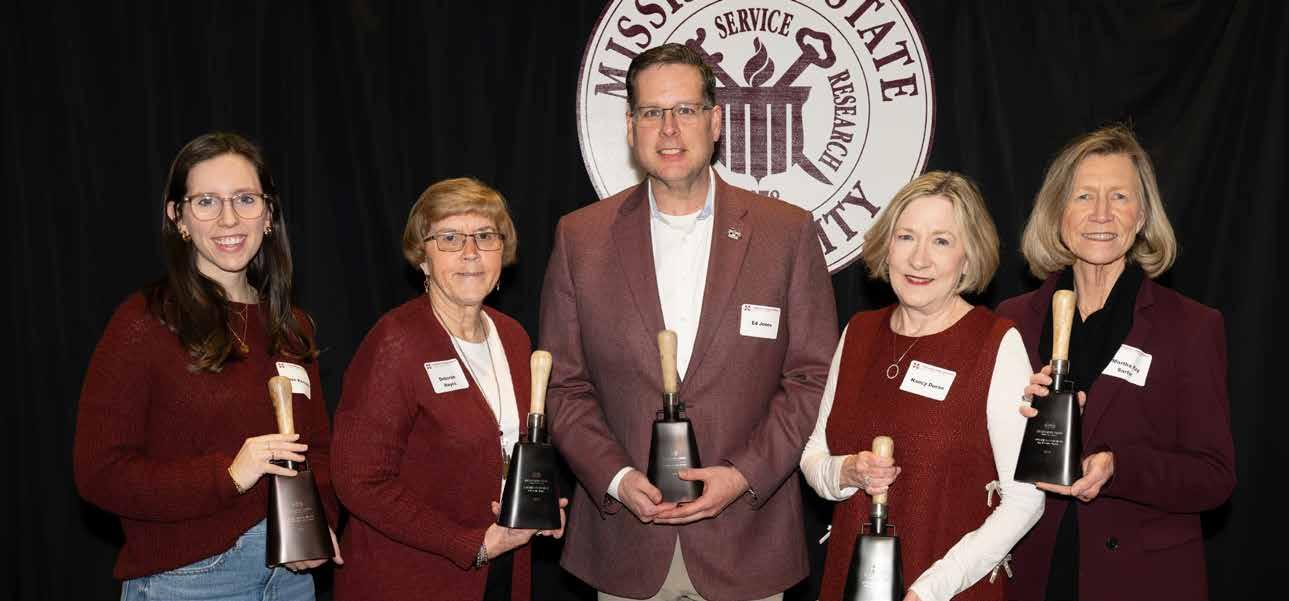
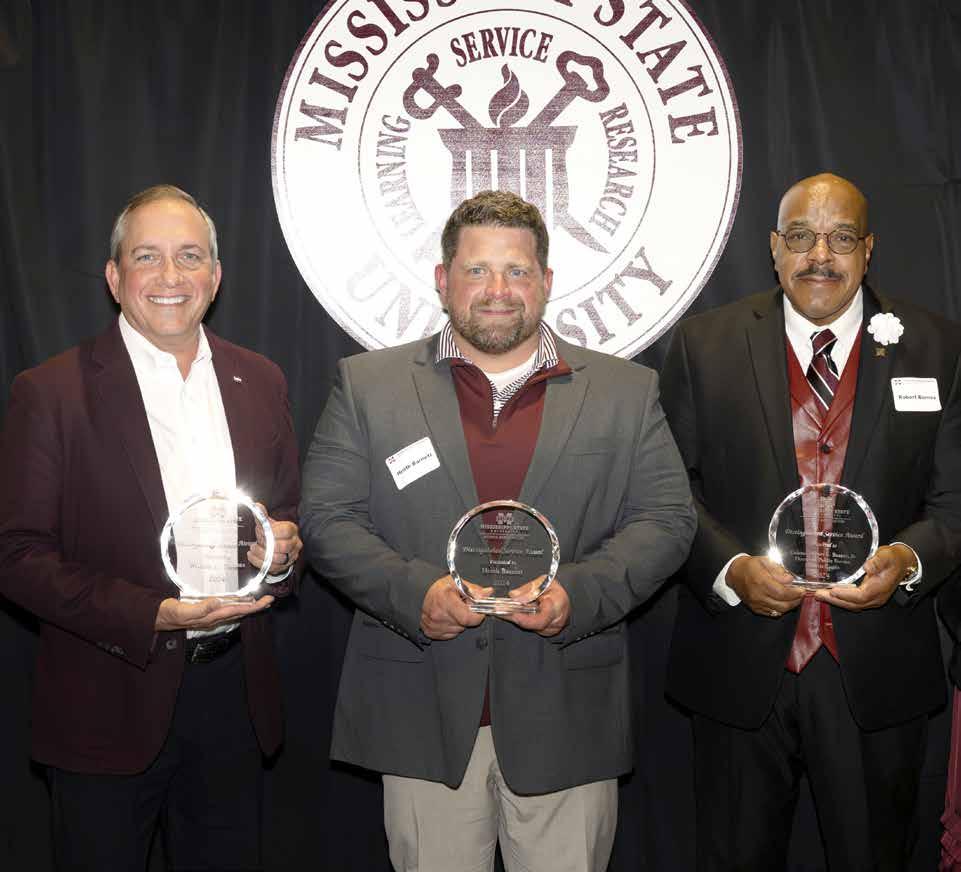


Distinguished Service Award Winners
Outstanding Young Alumna Award Winner


THE IN-STATE CHAPTERS HONORED INCLUDE:
Adams-Franklin-Wilkinson, Alcorn County, Attala-Holmes, Central Mississippi, Clarke County, Clay County, DeSoto County, George-Greene, Grenada-Montgomery, Lauderdale County, Lawrence-Jefferson Davis, Leake County, Lee County, LincolnCopiah, Lowndes County, Mississippi Gulf Coast, Monroe County, Neshoba County, Newton County, Oktibbeha County, Pine Belt, Pontotoc County, Sharkey-Issaquena, Southwest Mississippi, Tate-Tunica, Tippah County, Union County and Washington County.
OUT-OF-STATE
CHAPTERS HONORED INCLUDE (BY STATE):
Alabama: Birmingham, HuntsvilleDecatur, and Mobile; Colorado: Rocky Mountain Colorado; District of Columbia: Washington, D.C.; Florida: Northeast Florida (Jacksonville), Northwest Florida (Panhandle), Greater Orlando; Georgia: Atlanta; Louisiana: Baton Rouge and Greater New Orleans; Illinois: Chicago; New York: New York; North Carolina: Greater Raleigh-Durham; Ohio: Greater Cincinnati-Dayton; Tennessee: Greater Chattanooga, Memphis and Nashville; Texas: Dallas, East Texas, Greater Fort Worth, Greater Houston and South Texas.

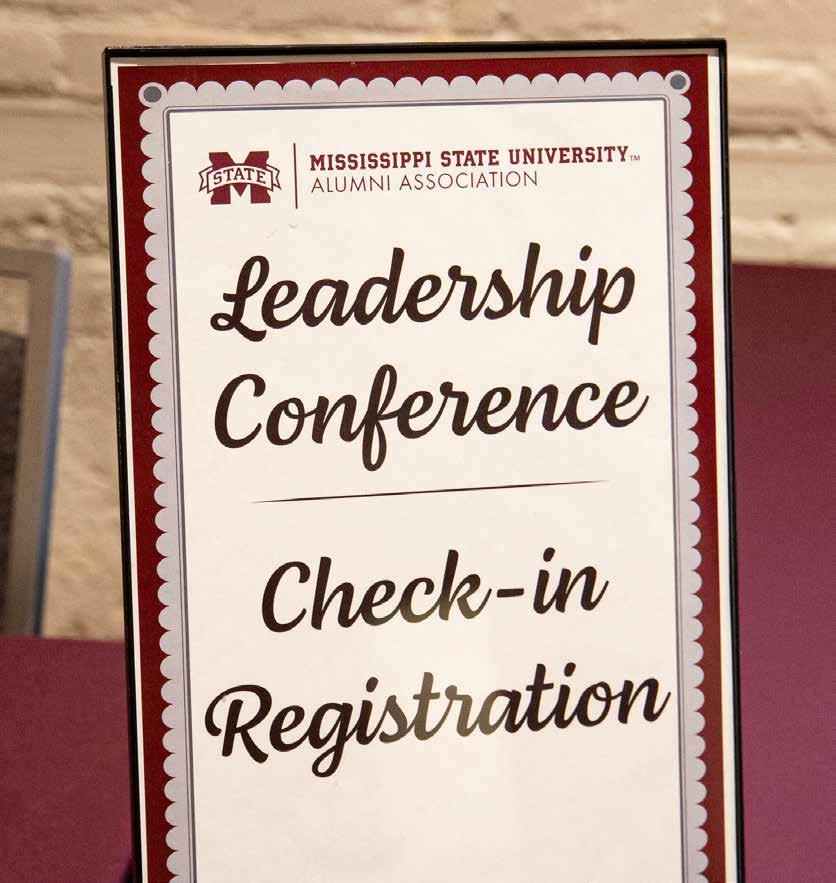

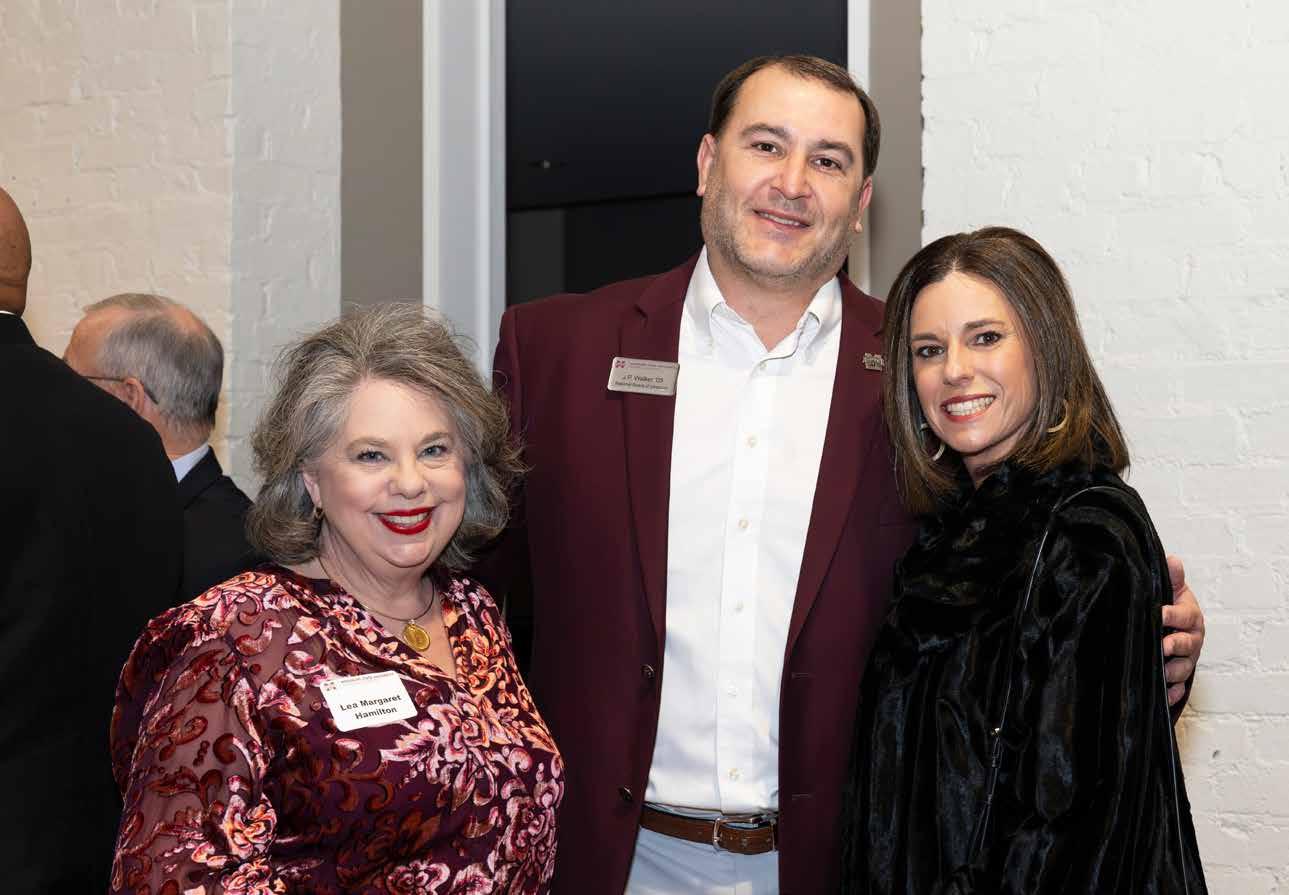
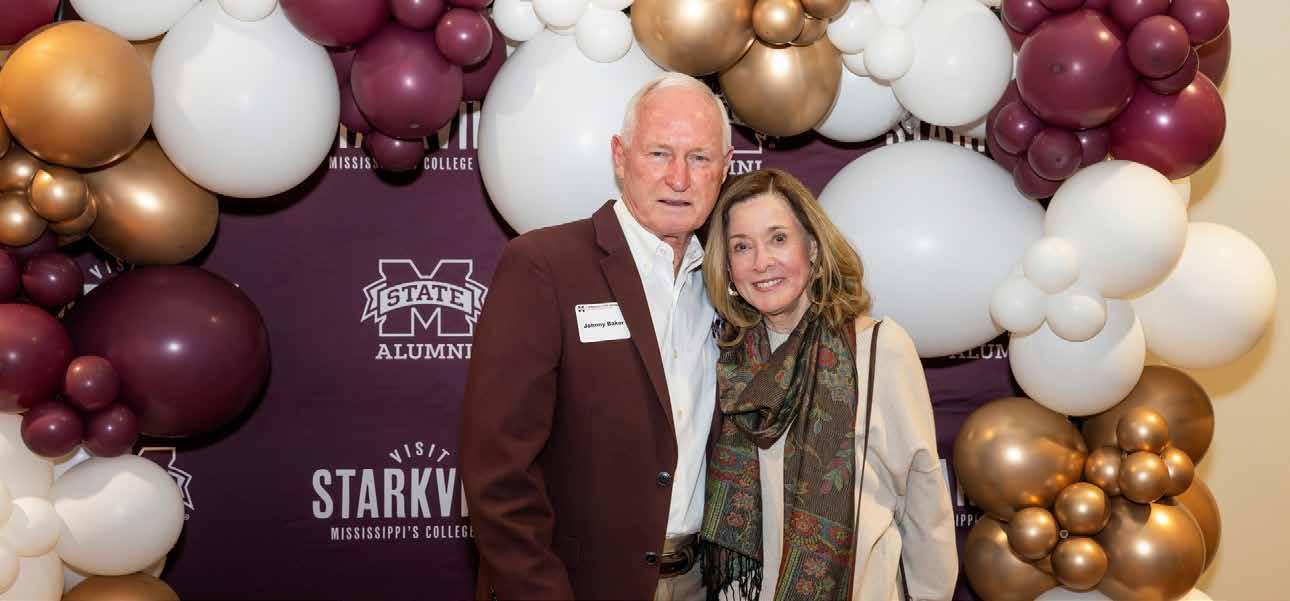
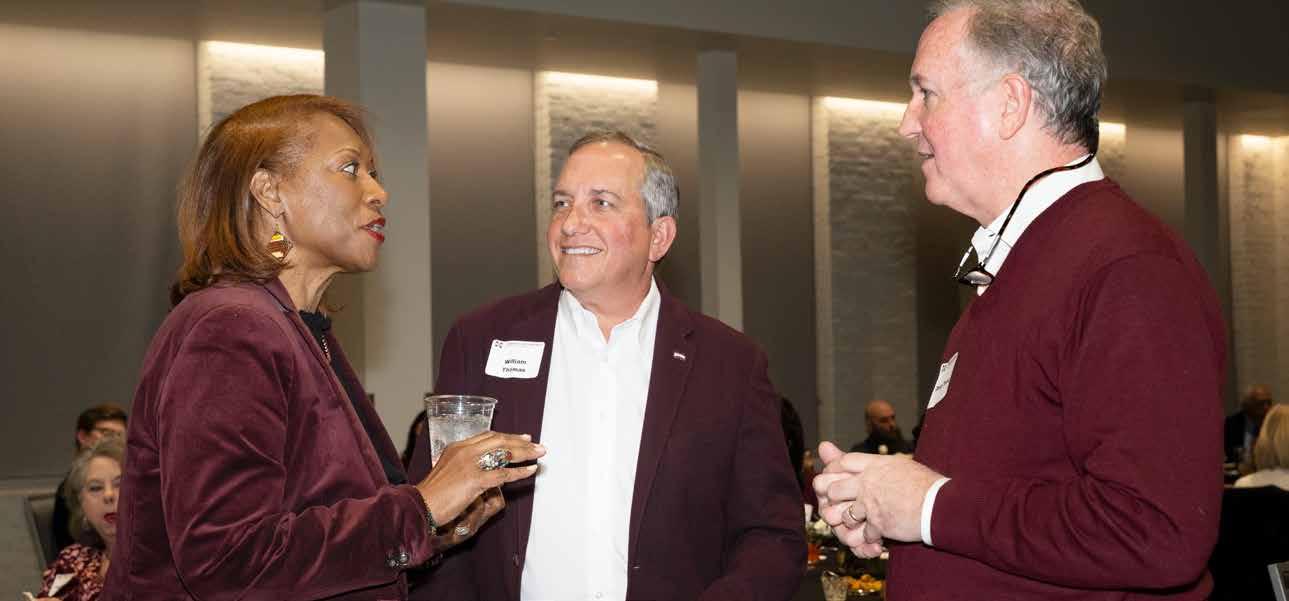
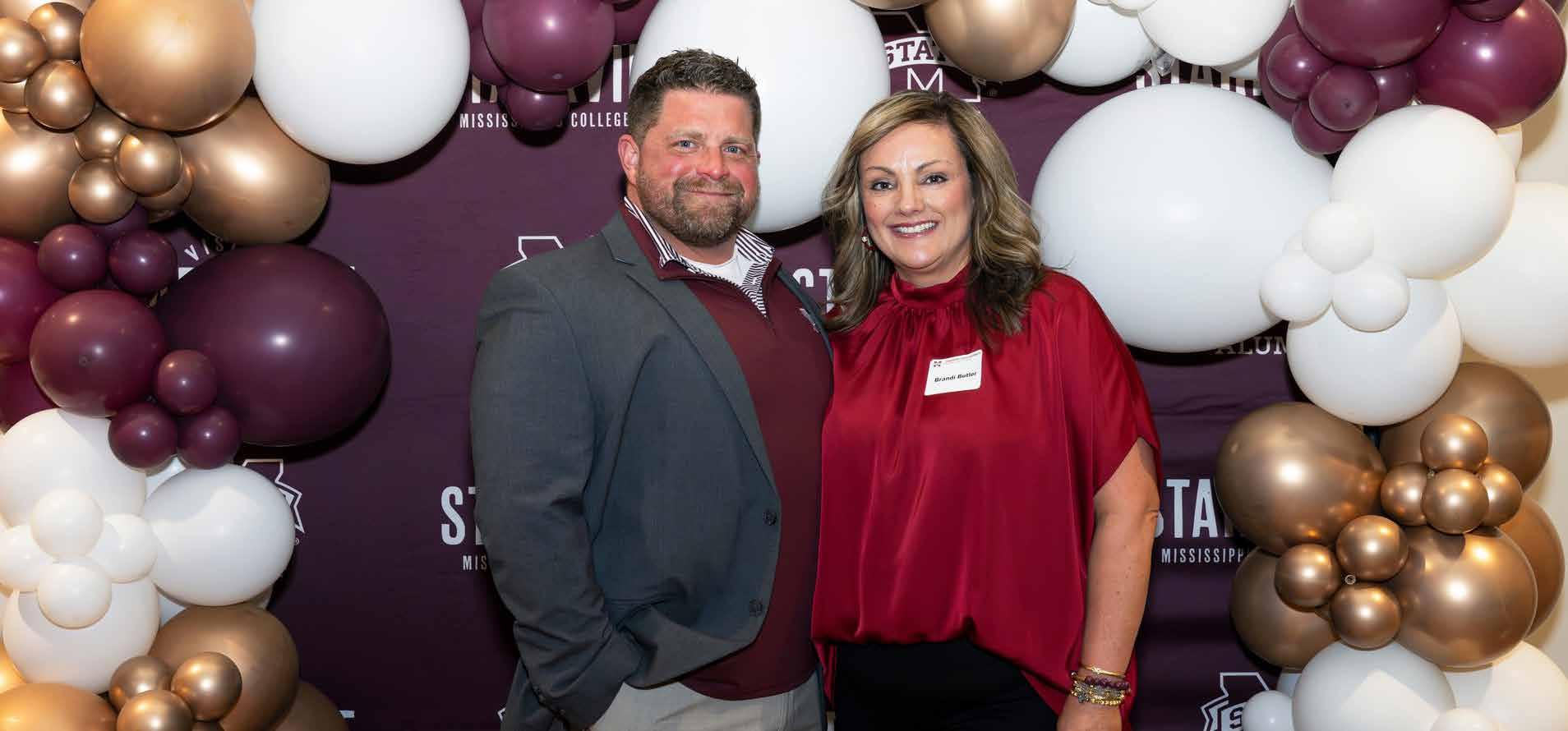

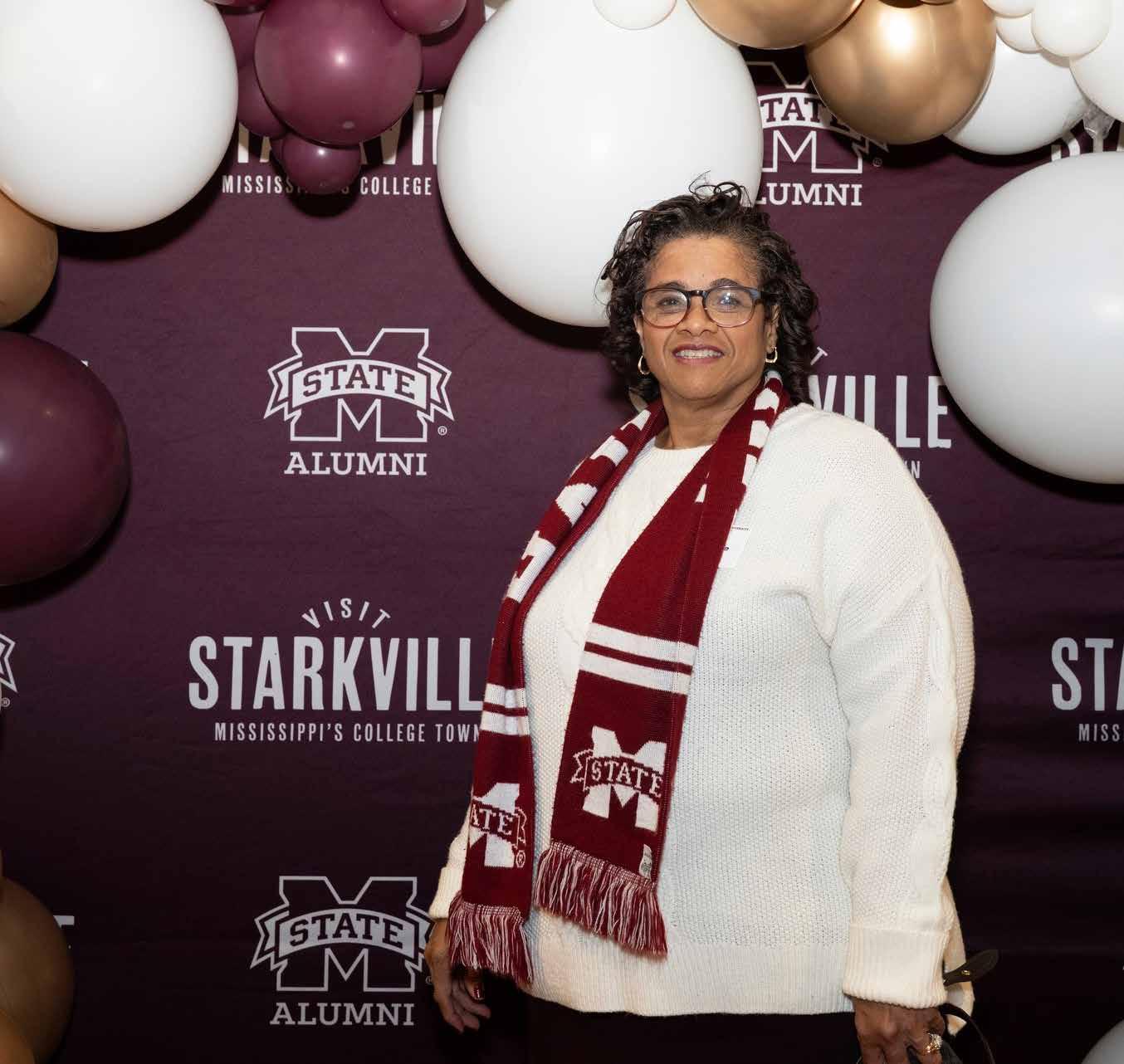
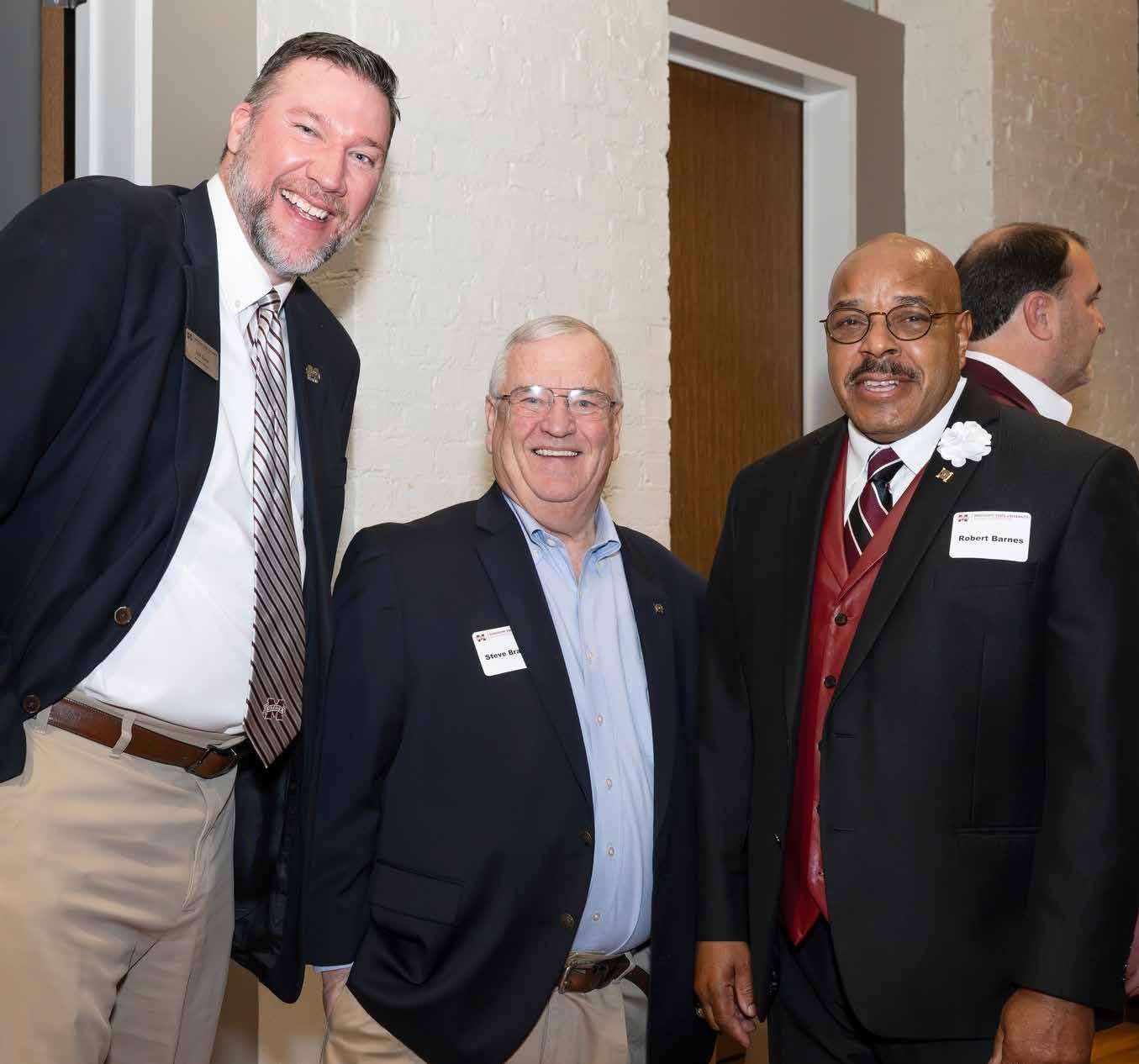
BULLDOGS
WHO
INSPIRE
Celebrating the 2025 Reveille 25
By Shun Pounds
Each year, Mississippi State University welcomes thousands of new graduates into its alumni family. Many make an immediate impact, rising as leaders in business, medicine, education, engineering, the arts and beyond. Some break new ground in their industries, and others dedicate their careers to service, but all carry with them the spirit of Mississippi State—excellence, determination and giving back.
Launched in fall 2021, the Reveille 25 honors 25 outstanding young alumni who exemplify these values. Chosen from a competitive pool of over 200 applicants, this prestigious recognition celebrates graduates under 40 who are answering the call of MSU’s mission by making a lasting difference in their professions and communities.
Named after MSU’s former yearbook, The Reveille, the program honors Bulldog traditions while envisioning the future. It highlights trailblazers and changemakers who continue to enhance MSU’s reputation nationwide and beyond.
“The Reveille 25 program is a great opportunity to recognize our young alumni who are making a difference in their communities and careers. They exemplify the best of our university and the strength of our university’s mission for excellence,” said Brooke Bridges, alumni engagement manager for the MSU Alumni Association.
This year’s class was honored during a banquet this spring. The 2025 Reveille 25 class includes:
Asishana Ajayi of Edo State, Nigeria. Ajayi has made remarkable impacts in engineering, community service and leadership. Ajayi graduated from MSU with a Bachelor of Science in aerospace engineering in 2021, an MBA in project management in 2024 and a Master of Science in industrial and systems engineering in 2024. He is currently pursuing a doctorate at MSU and works as an industrial engineering analyst at Waggoner Engineering Inc., contributing to infrastructure improvements in Meridian.

Stanley Blackmon of Madison. Blackmon is an accomplished litigator and appellate attorney. He earned a Bachelor of Science in biological sciences from MSU in 2012 and his Juris Doctor at the University of Alabama in 2015. He is a partner at Bradley Arant Boult Cummings LLP in Birmingham, Alabama, where he represents clients in complex litigation and has argued cases before the U.S. Courts of Appeals for the 5th and 11th Circuits.
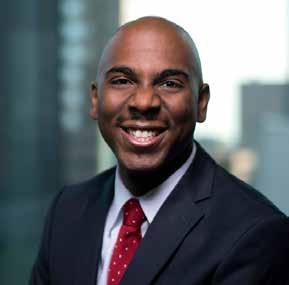
Dr. Emily Nations Bufkin of Clinton. Bufkin is both a physician and an educator. She graduated summa cum laude with a Bachelor of Science in biological engineering from MSU in 2012 and completed her Doctor of Medicine at the University of Mississippi Medical Center in 2016. She is an assistant professor and program director for the Combined Internal Medicine-Pediatrics Residency at the University of Texas Southwestern Medical Center in Dallas, Texas, where she trains resident physicians and focuses on healthcare transition and disability health equity.

MaCall Morgan Chastain of Jackson. Chastain advocates for mental health policy and legal compliance. She earned a Bachelor of Arts in English with a minor in pre-law from MSU in 2016, followed by her Juris Doctor from the Mississippi College School of Law in 2019. As general counsel and bureau director of the division of certification for the Mississippi Department of Mental Health in Jackson, she oversees

legislative affairs, policy development and service certification standards.
Dr. Rob Dambrino of Grenada. Dambrino has built a distinguished career in neurosurgery. After earning a Bachelor of Science in biomedical engineering from MSU in 2013, he completed a Master of Public Health at Vanderbilt University and a Doctor of Medicine at the University of Mississippi Medical Center. He is the chief resident in neurosurgery at Vanderbilt University Medical Center, specializing in open and endoscopic skull base neurosurgery.
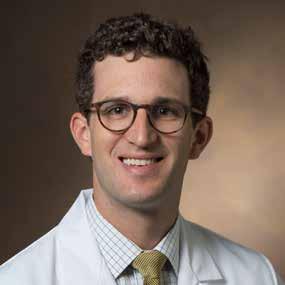
Caitlin Fournier of Pensacola, Florida. Fournier graduated magna cum laude from MSU with a Bachelor of Arts in communication in 2017. She later obtained a master’s degree in adult and higher education from the University of Oklahoma. As director of fan engagement at OU, she manages marketing and game production for football, softball and gymnastics, making history as the first woman to lead the production of OU football games.
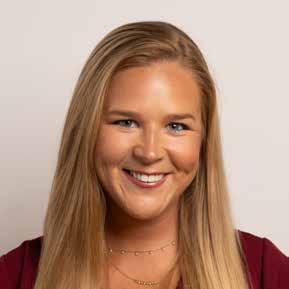
Dr. Hudson Frey of Hollandale. Frey is a facial plastic and reconstructive surgeon dedicated to restoring and enhancing facial aesthetics. He earned a Bachelor of Science in microbiology from MSU in 2013, followed by a Doctor of Medicine from the University of Mississippi Medical Center in 2017. Now based in Austin, Texas, and specializing in cosmetic facial surgeries to restore facial harmony, he also performs reconstructive surgery after Mohs procedures for skin cancer and complex nasal reconstruction to restore nasal breathing.
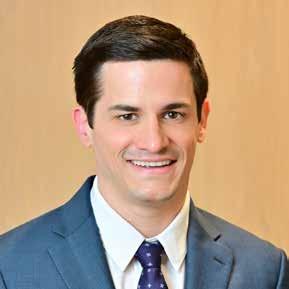
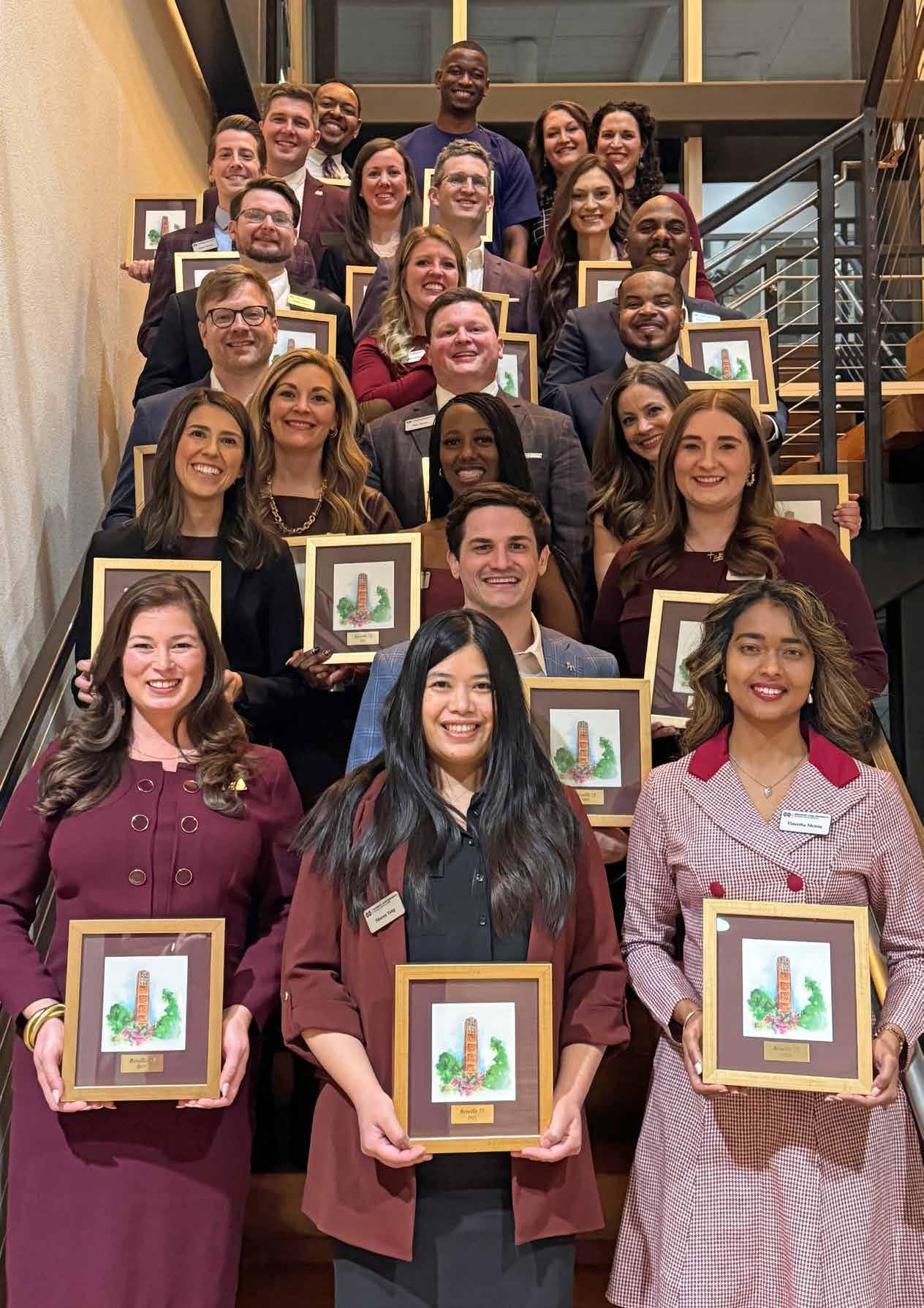
Christian Good of Macon. Good is a leader in agriculture and business. In 2016, he graduated from MSU with a degree in agricultural business management and minors in economics and business administration. As the owner of Christian Good Farms and the manager of Philip Good Farms in Macon, he oversees the production of soybeans, corn, cotton,
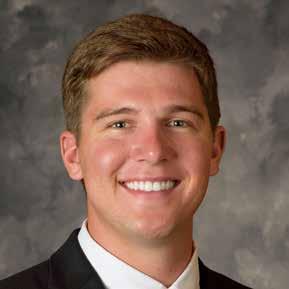

beef cattle and catfish while implementing sustainable practices.
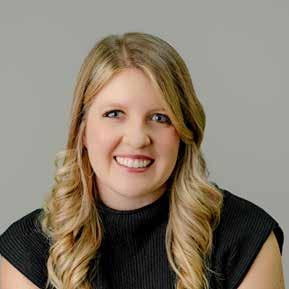
Jensen Bosarge Jacquet of Biloxi. Jacquet is an educator and mentor. In 2017, she earned a Bachelor of Science in secondary education with a minor in psychology from MSU, followed by a Master of Science in educational psychology from the University of Memphis. Jacquet teaches English and AP psychology within the Harrison County School District, where she also serves as head cross-country coach and lead sponsor of the Beta Club.

Sarah Beth Jones of Louisville. Jones is a founding partner at Gay Jones & Kuhn PLLC in Jackson, a women-owned law firm with additional offices in Mississippi, Arkansas, Alabama and Louisiana. She graduated summa cum laude from MSU in 2008 with a Bachelor of Arts in political science and earned her Juris Doctor from the University of Mississippi School of Law. Jones specializes in mass tort and product liability litigation, representing various clients, including Fortune 500 companies.

Taylor McNair of Learned. McNair is a committed advocate for agriculture and public policy. In 2017, she earned a Bachelor of Science in agricultural business from MSU and subsequently obtained her Juris Doctor from the Mississippi College School of Law. As the deputy general counsel and public policy coordinator for the Mississippi Farm Bureau Federation in Jackson, she provides legal counsel and legislative advocacy for the state’s agricultural community.

Dr. Vineetha Maya Menon of Bengaluru, India. Dr. Menon is a leader in artificial intelligence and data science. She earned a doctorate in electrical and computer engineering from MSU in 2016 and currently serves as the Dr. Terence Reed Endowed Associate Professor of Computer Science at
the University of Alabama in Huntsville. As the director of the Big Data Analytics Lab, she specializes in Explainable AI, AI-driven drug discovery, cybersecurity and human-AI trust in autonomous systems.

Sarah Morgan of Brazil, Indiana. Morgan, a passionate educator and author, has dedicated her career to faithbased outreach and literacy advocacy. She graduated from MSU’s College of Education in 2013 and began her career as a thirdgrade teacher before transitioning into homeschooling and nonprofit leadership. Inspired by her personal experiences, she founded He Breaks Chains, Inc., a nonprofit that distributes devotional books to inmates nationwide.
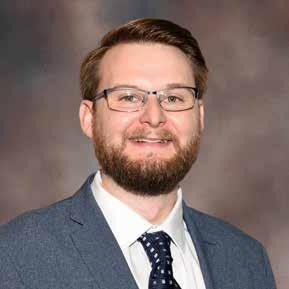
Dr. Kollin Napier of Petal. Napier is a prominent figure in artificial intelligence education and workforce development. He earned a Bachelor of Science in 2016, a Master of Science in 2017, and a Doctor of Philosophy in 2023 from MSU, where he was involved in the Preparing Future Faculty Program. As the director of the Mississippi Artificial Intelligence Network, known as MAIN, at Gulfport’s Mississippi Gulf Coast Community College, he leads the nation’s first statewide AI initiative, collaborating with colleges, universities and global technology leaders.
Grant Nerren of Amory. Nerren has established a strong career in higher education leadership and student recruitment. He earned a Bachelor of Business Administration in 2015 and a Master of Public Policy and Administration in 2018 from MSU. He is currently pursuing an MSU doctorate in higher education leadership, which he expects to complete this year. As the regional assistant director of recruitment for the university, he leads a team of remote recruiters and develops data-driven strategies to enhance the university’s national presence.


Jeronn Parker of Brookhaven. Parker has built a successful career in corporate compliance and risk management. He earned a Bachelor of Science in biological sciences from MSU in 2016 and later obtained a Master of Business Management from Faulkner University. As the lead compliance analyst for AT&T in Dallas, Texas, he oversees regulatory compliance, risk mitigation and employee training.

Allison Rogers of Long Beach. Rogers earned a degree in geoscience with a concentration in professional and broadcast meteorology from MSU in 2015. Now an Emmynominated meteorologist for WLWT in Cincinnati, Ohio, Rogers delivers timely weather updates and critical live coverage during severe weather events. She also reports on major disasters, including tornado outbreaks and flooding.

Adam Trest of Laurel. Trest earned a Bachelor of Fine Arts in painting with a minor in architectural design from MSU in 2009. As a fine artist and illustrator, he has contributed to the New York Times bestselling children’s book “The Lantern House,” and was named the 2023 Thad Cochran Distinguished Arts Educator. He operates his own studio, creating original works and product designs while supporting Laurel’s cultural revitalization.

Shelby Balius Tschume of Cumming, Georgia. Tschume has built a career in organizational strategy, most recently serving in higher education leadership. She earned her Bachelor of Business Administration in 2013 and an MBA in 2023 from MSU before becoming the director of strategic initiatives in the Office of the Provost and Executive Vice President. In this role, she leads universitywide projects designed to enhance academic and operational effectiveness.
Anna Claire Tucker of Dubberly, Louisiana. Tucker graduated summa cum laude from MSU in 2021 with degrees in English and philosophy. She earned her Juris Doctor from the Mississippi College School of Law in 2024 and now works as an associate attorney at Blanchard Walker O’Quin & Roberts PLC, in Shreveport, Louisiana, specializing in business litigation. Passionate about service, she volunteers at her local church and serves as the Panhellenic advisor to Chi Omega at Centenary College.
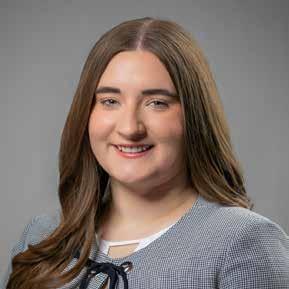
Stedmond Ware of Greenwood. Ware has dedicated his career to promoting opportunity and success. He earned his Bachelor of Arts in psychology in 2012 from MSU and a Master of Science in community development at Delta State University. He serves as a portfolio manager III at AmeriCorps’ North Central Regional Office in Kansas City, Missouri, where he manages millions in federal funds and provides strategic guidance to AmeriCorps grantees. In this role, he supports project sponsors in grant planning, compliance and program effectiveness while fostering partnerships to expand national service initiatives.

Ross Weems of Jackson. Weems is a third-generation MSU graduate with a distinguished career in banking and community leadership. He earned a Bachelor of Business Administration from MSU in 2009, an MBA from MSU in 2010 and a degree from the Graduate School of Banking at Louisiana State University in 2024. In his role as first vice president of the BankPlus Private Client Group in Jackson, he provides tailored financial solutions to individuals, corporate executives, medical practices and professional firms.
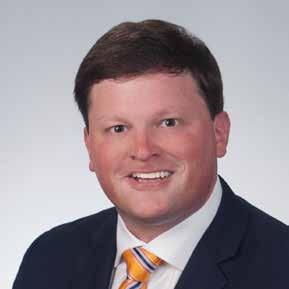

Randall Journeay White of Leland. White has built a successful career in financial planning. She earned two bachelor’s degrees, one in marketing and one in business administration with a focus on risk management, insurance and financial planning, as well as an MBA from MSU. She works as a Certified Financial Planner at American Seniors Benefit Inc. in Jackson, specializing in retirement strategies and comprehensive financial planning.

Tonie B. Williams of Memphis, Tennessee. Williams has dedicated her career to social work and veteran services. She earned a degree in social work from MSU in 2018 and is currently the coordinator for the U.S. Department of Veterans Affairs’ Intimate Partner Violence Assistance Program
leads outreach efforts to support veterans and families affected by domestic violence.
Dr. Sharon Yang of Starkville. Yang was raised in Taichung, Taiwan, and has dedicated her career to veterinary pathology and biomedical research. She earned a Bachelor of Science in wildlife, fisheries and aquaculture from MSU’s College of Forest Resources and a Doctor of Veterinary Medicine from the College of Veterinary Medicine. She is an assistant professor at Vanderbilt University Medical Center, where she provides pathology expertise for cancer biology, infectious diseases, and genetic disorder research while overseeing diagnostic services for laboratory animals.

To learn more about The Reveille 25 program, visit www.alumni. msstate.edu/reveille25 or contact






















SENIOR CELEBRATION WELCOMES
FUTURE ALUMNI
The MSU Alumni Association hosted the Fall 2024 Senior Celebration at The Mill in December. Graduating seniors enjoyed music, food, photo opportunities, giveaways and plenty of fun as they were welcomed into the Bulldog alumni family. Congratulations to the fall 2024 graduates!
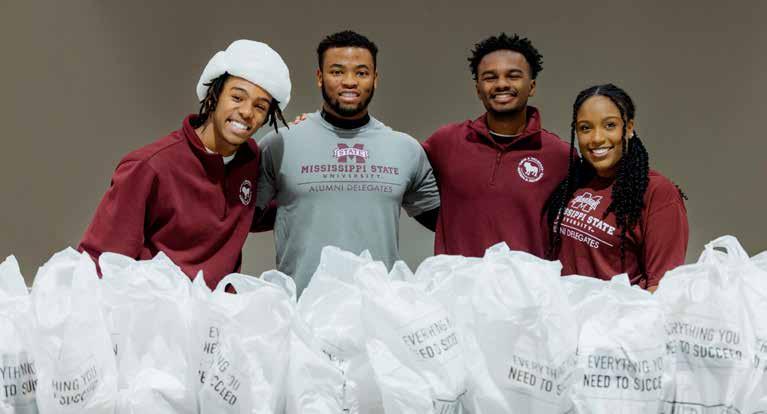


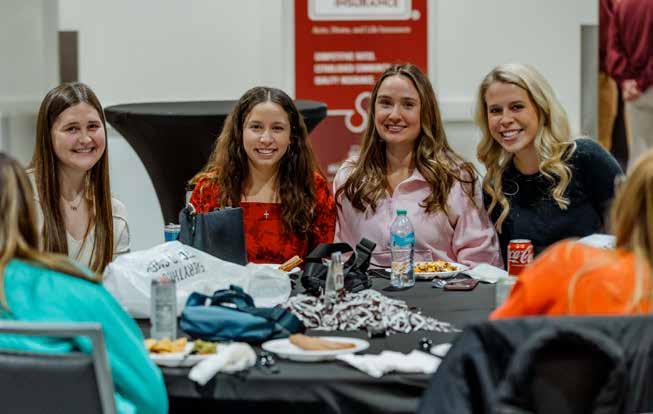
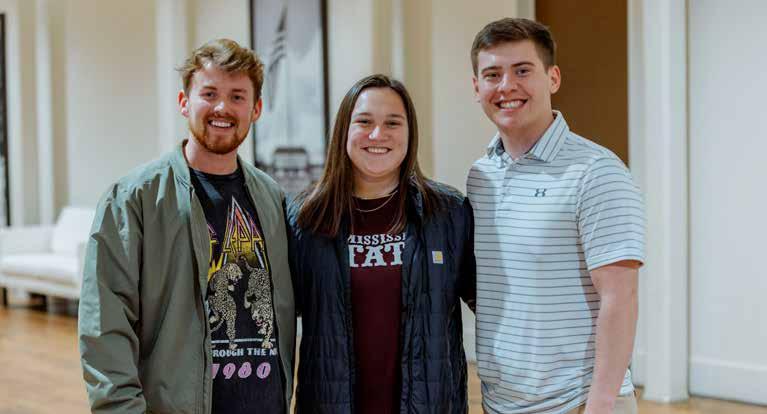
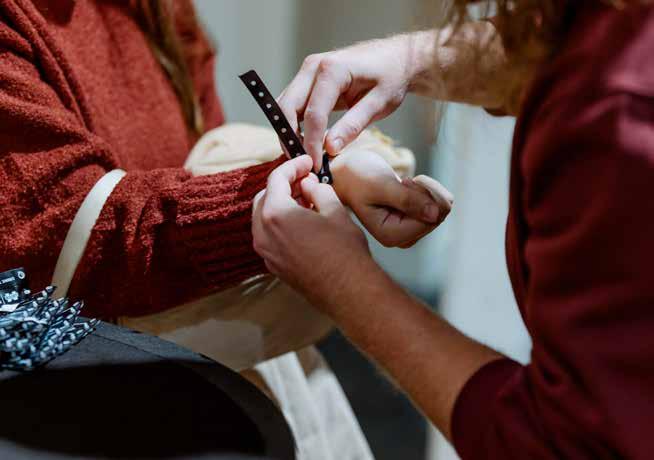


BRYCEN STEVENS WINS TUITION DRAWING
Brycen Stevens, a sophomore mechanical engineering major from Indianola, won the MSU Alumni Association’s Fall 2024 Tuition Drawing. He received full-time tuition, equal to 12 credit hours, for the spring semester. His winning ticket was one of 3,846 sold by the Alumni Delegates—the association’s student organization. Each ticket gives an MSU student a chance to win a semester of free in-state tuition. This fall, the delegates raised more than $16,000 through ticket sales. For more information about the tuition drawing, contact Brooke Bridges, alumni engagement manager, at 662-325-3479 or bbridges@alumni.msstate.edu.

National Board Members Return Home to Serve MSU
The faithful members of the MSU Alumni Association’s national board of directors returned home to Starkville in February for their spring 2025 board meeting at The Mill.
Board members in attendance included: Front Two Rows: L to R: Tony James, John Shappley, Nathan Cummins, National President Terri Russell, National Treasurer Riley Nelson, Jonathan Jackson, Belvia Giachelli, Dwanda Moore, Kim Correro Fandel, Celeste Carty, Paige Roper, Mary Ann Latham, Immediate Former National President Patrick White, Adrienne Morris, B.B. Hosch, Vice President Lynn Burwell, Connie Raines and Strat Karatassos. Back Row L to R: Student Association Director of Policy Hunter Yelverton, Dave Dickson, Robert Banik, Jason Cory, J.P. Walker, Executive Director Jeff Davis, Brad Garrison and Mike Criswell.
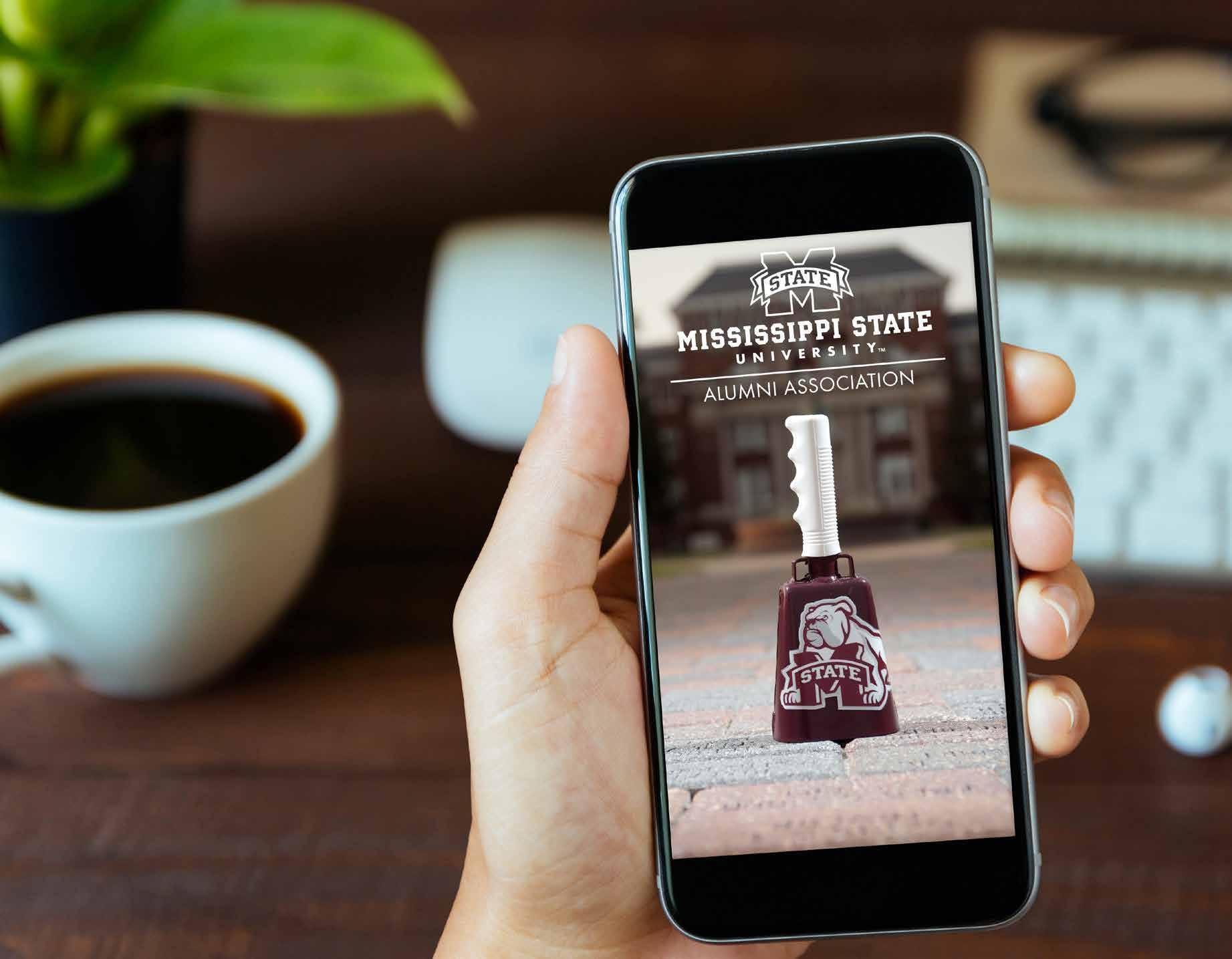
Mississippi State University Honors Endowed Faculty AT 2024 MEDALLION
By Shun Pounds
CEREMONY
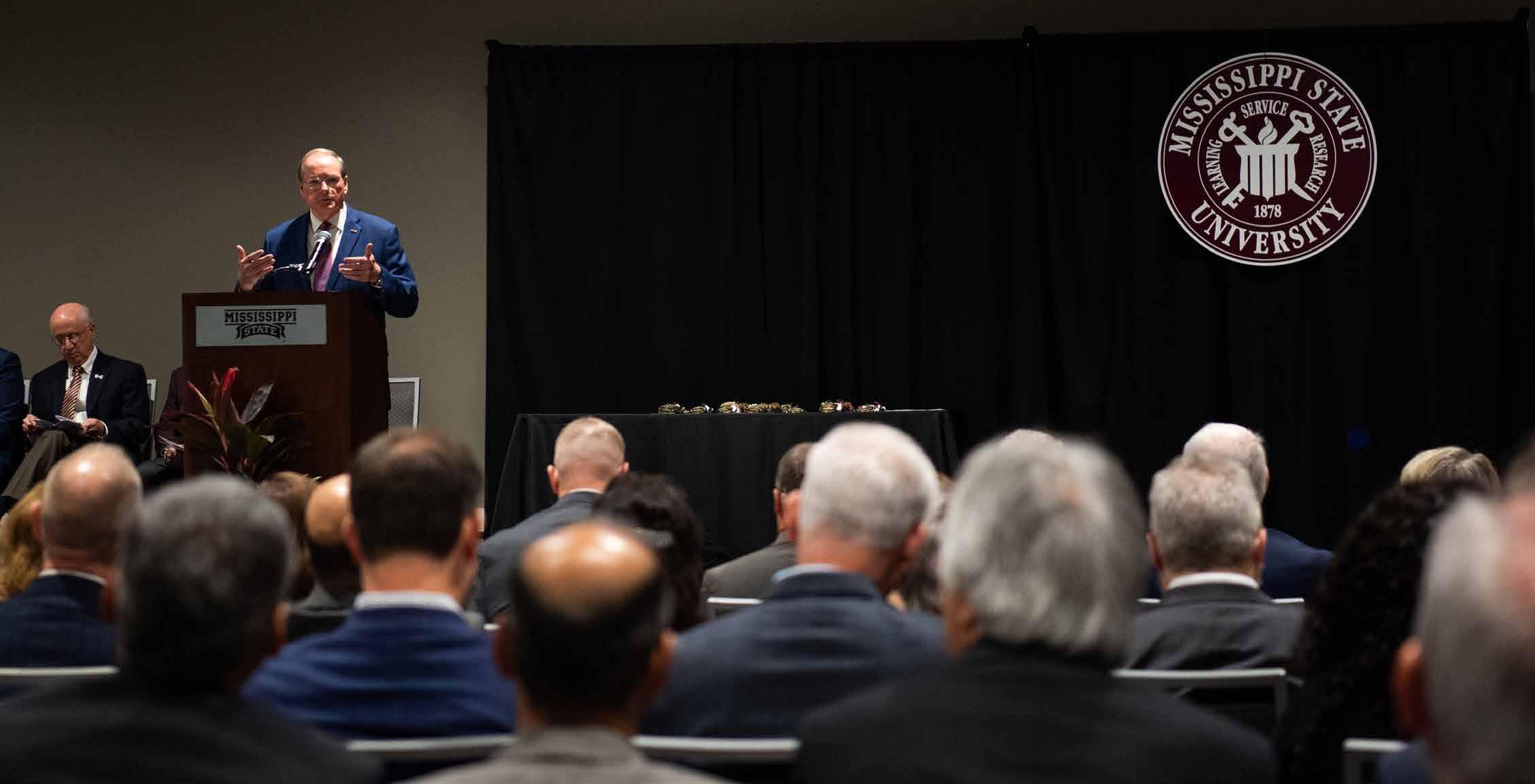
In fall 2024, Mississippi State University honored its distinguished endowed faculty during the inaugural Medallion Ceremony at The Mill. The event celebrated the exceptional teaching, research and service that drive the university’s academic excellence.
MSU President Mark E. Keenum opened the ceremony by expressing his deep appreciation for the university’s dedicated faculty, alumni and friends whose generous gifts make endowed positions possible.
“For this inaugural event, our Medallion Ceremony, we were able to recognize some truly outstanding individuals within our Mississippi State family—our distinguished, world-class faculty who’ve been designated as either endowed professors or endowed chairs during their impressive careers at Mississippi State University,” Keenum said.
Established through private gifts, endowed faculty positions are crucial in attracting and retaining top scholars. These positions provide faculty members with vital resources to advance research, enhance teaching and mentor students who will shape the future.
Tommy Nusz, a longtime university supporter and benefactor, emphasized the impact of endowed faculty members on
students and the greater community.
“Our endowed faculty have a transformational impact on young people’s lives and provide a foundation for a lifelong journey of learning. These faculty members are among the leaders of our university who are enhancing our lives, our environment and our state while driving transformational leadership and emphasizing exceptionalism,” Nusz said.
Keenum highlighted how MSU’s reputation for academic excellence is deeply tied to the strength of its faculty.
“Students want to be here because of the quality of education and the reputation we have for providing our young learners with the best education possible," Keenum said. “These endowments enable us to attract exceptional candidates who will become part of our university family and join our faculty ranks.”
MSU extends its heartfelt gratitude to the alumni and friends whose support of endowed faculty positions strengthens the institution’s mission. Their generosity elevates faculty members and enriches the academic landscape, fostering innovation and inspiring future generations. The university currently has 87 endowed professorships and chairs that help drive this momentum forward. n

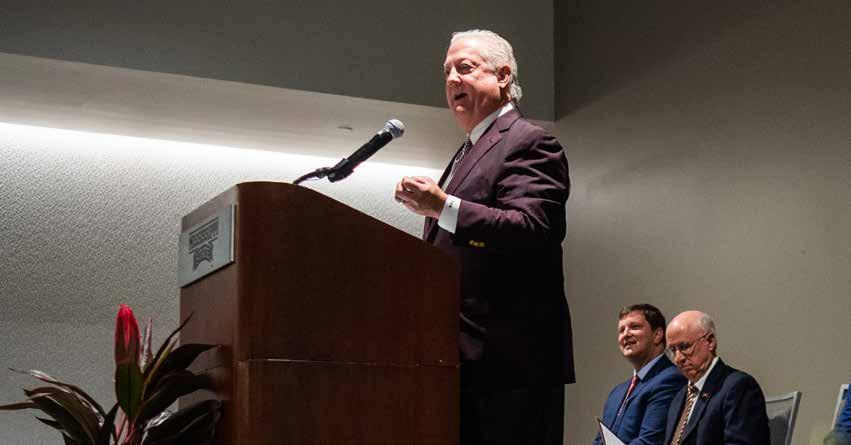
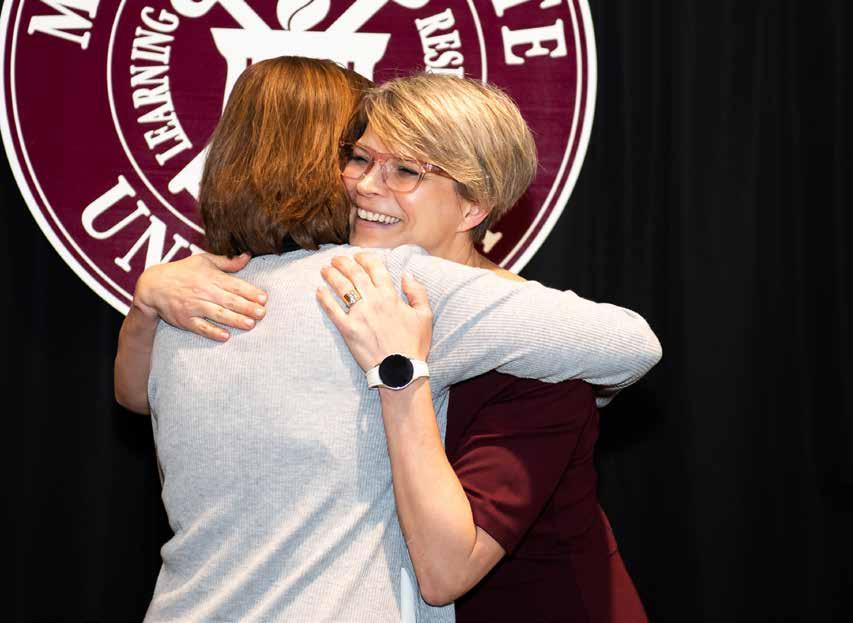
Dean Angi Bourgeois shares a congratulatory moment with a faculty member during the ceremony, celebrating her appointment to an endowed position in recognition of exceptional teaching, research and service.
Tommy Nusz, longtime MSU supporter and benefactor, speaks at the inaugural Medallion Ceremony, highlighting the transformational impact of endowed faculty on students, the university and the broader community.
LEARN MORE



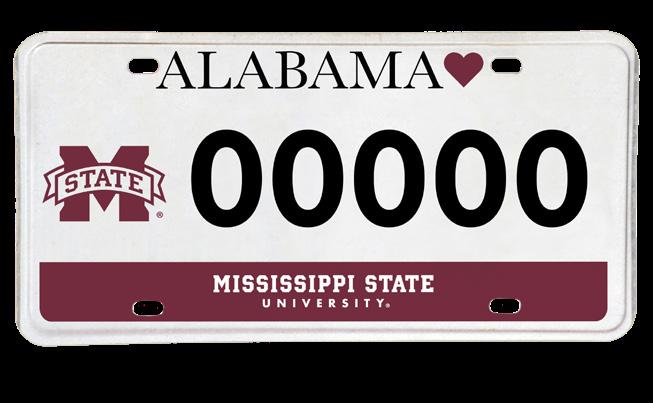


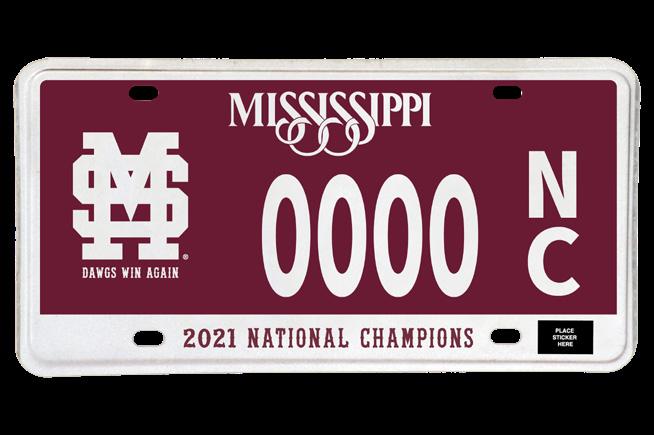
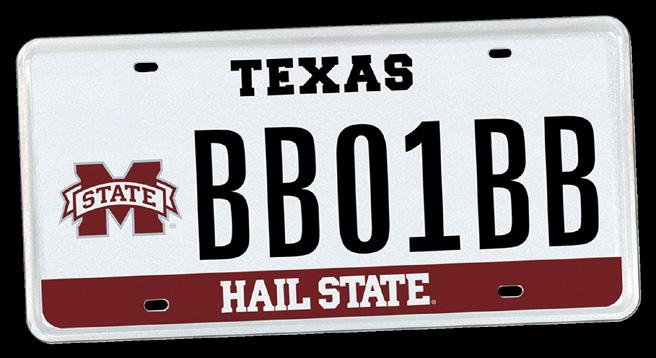
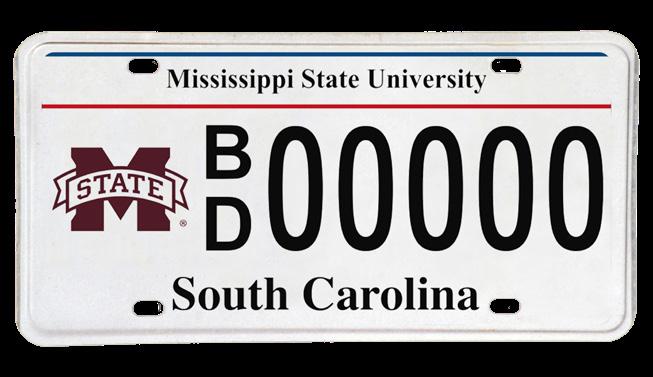



Spark your child’s interests and introduce them to career possibilities through Engineering the Future. Developed for kindergarten – eighth grade students, this $40 program ensures your child will be mailed six, hands-on activities during the school year, as well as a continuouslearning enrichment via email.
Registration closes in August. Register today!
Dr. Shana Lee Director of K-12 Educational Outreach & Student Programs bcoe.k12outreach@gmail.com 662-325-1360

MSU FOUNDATION welcomes new development team members
By Shun Pounds
The Mississippi State University Foundation is pleased to announce recent strategic personnel additions that reinforce the institution’s commitment to fostering strong alumni and corporate relationships.
NaToya Sanders and Mary Elizabeth Stringer Tate joined the development staff as assistant directors of development in the College of Business in fall 2024. Both bring valuable experience and a deep connection to MSU, making them key assets in advancing the college’s development initiatives.
Sanders is a two-time MSU graduate, earning a Bachelor of Business Administration in marketing in 2010 and a master’s in public policy and administration in 2022. Her business and public policy background uniquely positions her to cultivate meaningful partnerships and enhance opportunities for students and alumni.
“As a proud alumna of Mississippi State University, I am excited to continue advancing the university’s mission and impact,” Sanders said. "I look forward to building meaningful relationships with alumni and supporters to ensure continued opportunities for our students. It is an honor to be a bridge; to help turn generosity into transformative action that shapes lives and strengthens the university.”
Tate, a 2017 magna cum laude graduate from MSU’s College of Education, brings a passion for higher education and student success to her new role. Her experience in relationship building and program development will play a vital part in securing resources that benefit students and faculty.
“It is a profound honor to return to Mississippi State University and serve the College of Business in this meaningful capacity,” Tate said. “MSU has been instrumental in shaping my personal and professional journey, and I am eager to foster relationships that will help nurture new opportunities for our students, faculty and alumni.”
These appointments highlight MSU’s continued investment in exceptional professionals who are dedicated to advancing the university’s mission and expanding opportunities for its students.
For more on the Division of Development and Alumni’s efforts and milestones, please visit devalumni.msstate.edu n
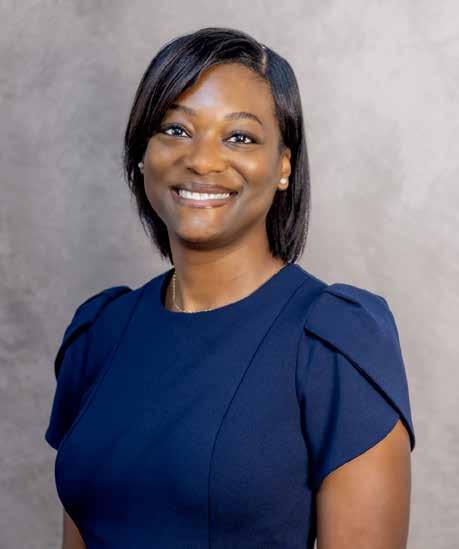
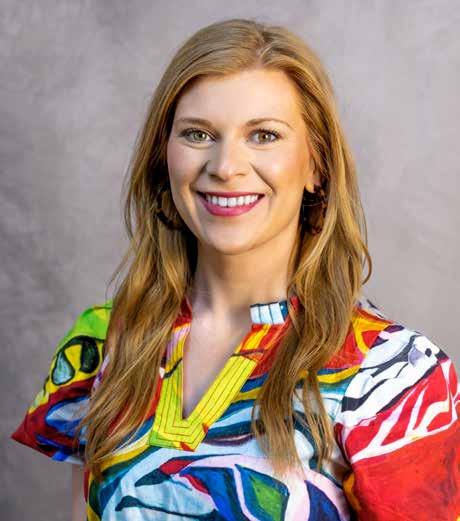
NaToya Sanders
Mary Elizabeth Stringer Tate

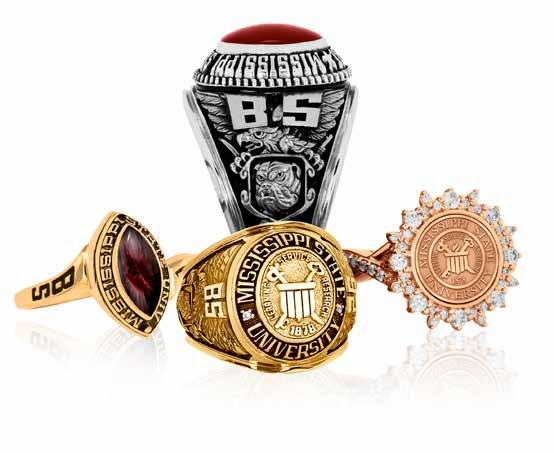

MAROON REACH & IMPACT
Learn how your organization can connect with the powerful network of Bulldogs through customized opportunities that are tailored to help achieve your objectives.
Total Living Alumni
166,614
Top 6 Concentrated States (as of May 2025)
Mississippi (53%) Alabama (6%) Tennessee (6%)
Texas (5%) Georgia (3%) Florida (3%)
1,158 globally Addressable Alumni
100+
135,428 digital 158,104 Active Members† 52,000 ALUMNI CHAPTERS AND CLUBS
†Denotes alumni and friends who have made a gift to MSU
For more information, contact Leanna Smith, Assistant Director of Alumni Partnerships & Business Development, at LSmith@alumni.msstate.edu or 662-325-3360.

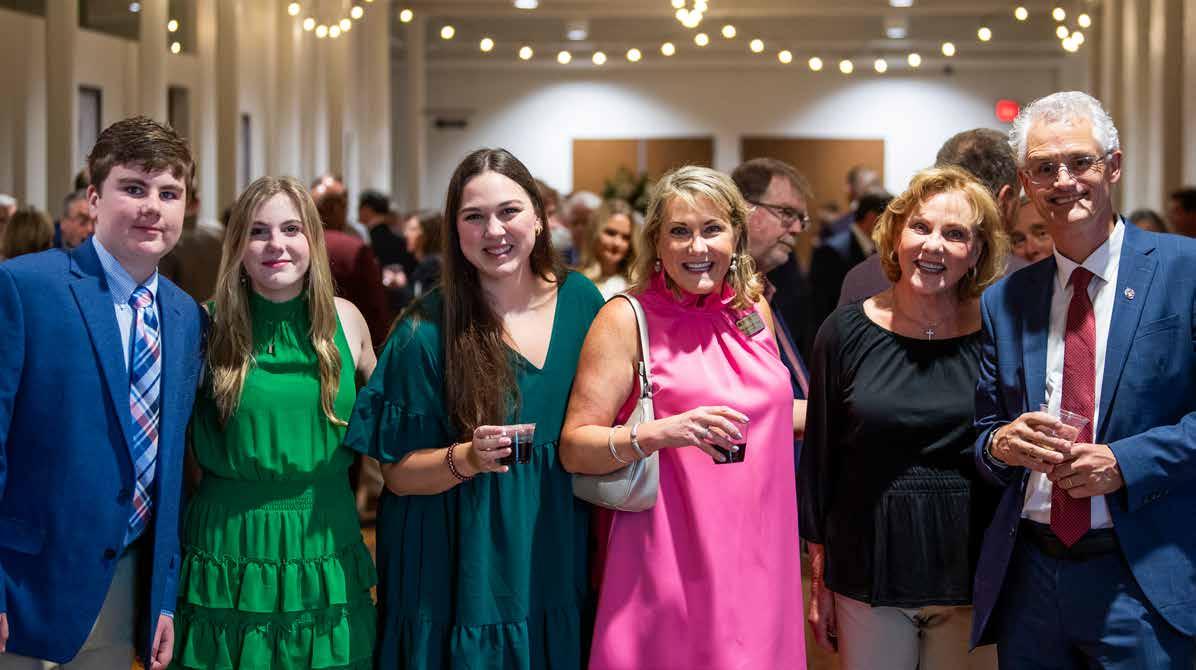
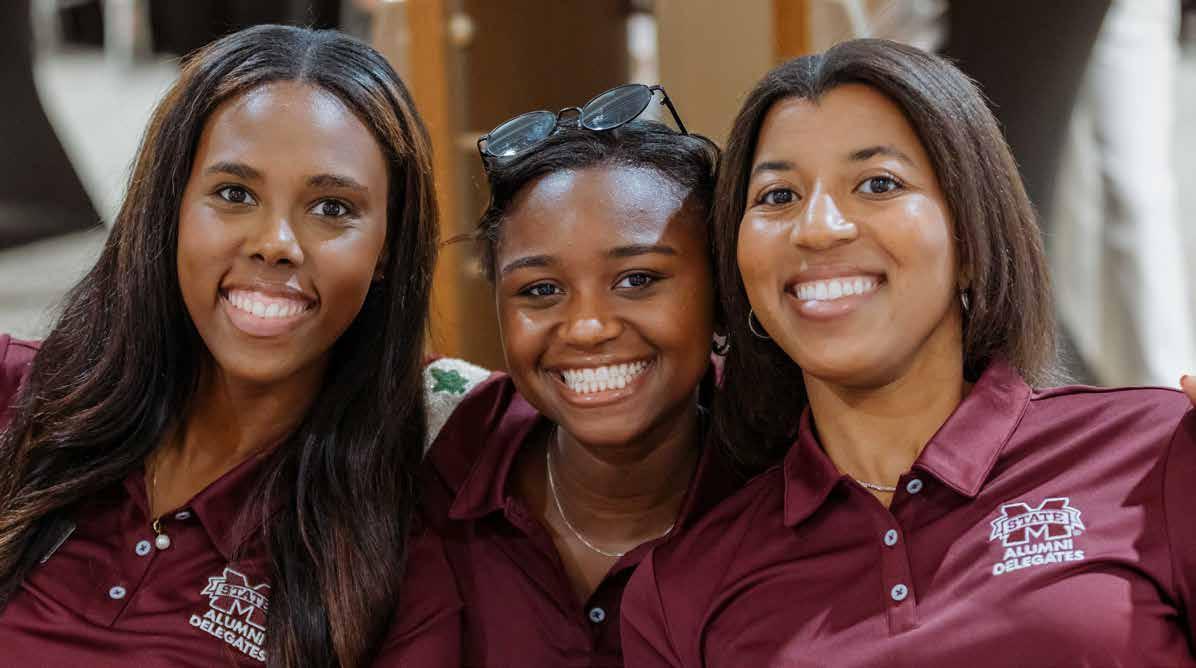
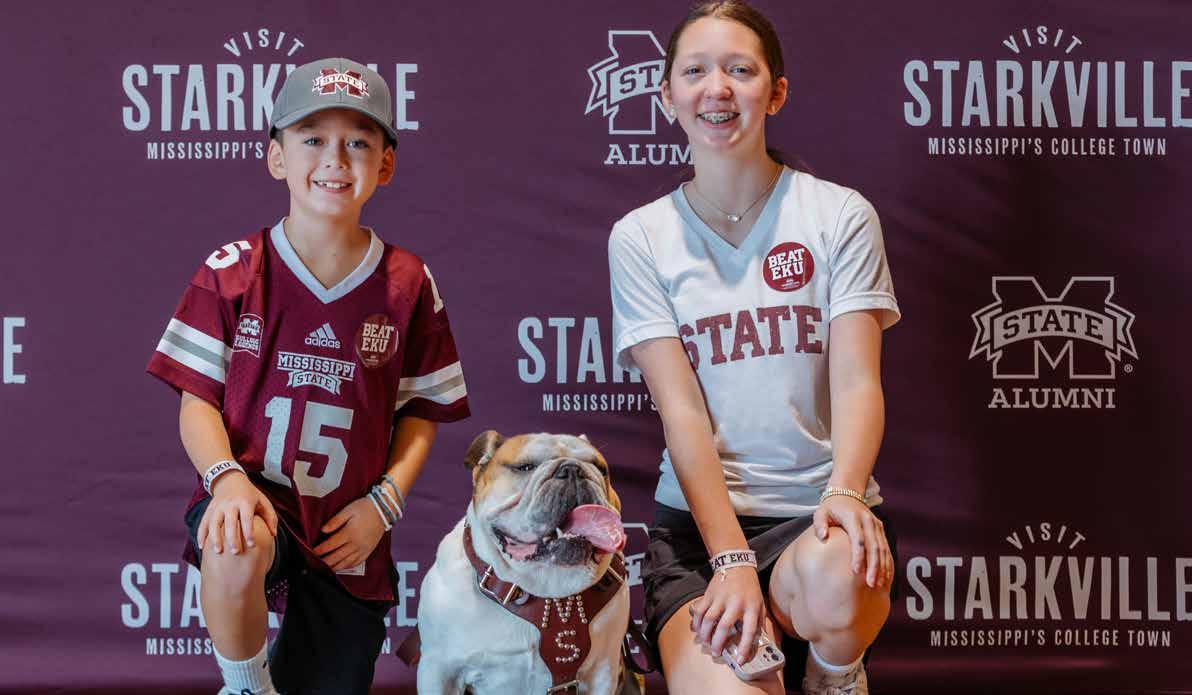
WAYS TO PARTNER
The Mississippi State University Alumni Association hosts events and offers programs and services which are directly supported by our partnerships. We can create a customized package to help your organization maximize its resources and strategic goals.
ADVERTISING OPPORTUNITIES
PRINT - Alumnus Magazine, event signage, and event promotion
Alumnus Magazine Distribution
u 2x/year Print, 1x/year Digital
u Reaches more than 52,000 active alumni association members
u Print Audience - Active alumni and supporters
u Digital Audience - All addressable alumni
DIGITAL - E-newsletters, social media, web, email and mobile app
ENGAGEMENT OPPORTUNITIES
Engagement opportunities through events and programs:
u Tailgates (home and away)
u Reunions and Alumni Gatherings
u Awards Banquet
u Reveille 25
u Senior Celebration
u Traveling Bulldogs
u + Other Annual Events

NEW
PURPOSE, HISTORIC SETTING
The Mill now dedicated home of MSU Division of Development and Alumni
The 90,000-square-foot historic mill, a landmark on Russell Street since 1902, is officially home to the Mississippi State University Division of Development and Alumni following a ribbon cutting in April.
The division previously called the Hunter Henry Center, on the western edge of campus, home until January 2024. It moved into the more-spacious mill as final renovations were taking place, having outgrown its prior facility. The division engages graduates and friends of the university to support the betterment of its students, faculty and future. It stewards gifts that strengthen the mission of the institution and serves as a rallying force that helps alumni
By Kevin Tate, Photos by Grace Cockrell
interact with the university and one another.
“The Mill stands as a symbol of what we can accomplish by working together,” said MSU President Mark E. Keenum. “I am grateful for the generous donors who believe in Mississippi State University and the work we are doing to move our state and nation forward who made this project possible. In many ways, The Mill is the front door for welcoming guests and visitors to our campus, Starkville and Oktibbeha County. It’s a winwin-win for all of us.”
The building became a fixture of the Starkville skyline upon its construction in 1902, and has served in a number of capacities since. It was added to the National

Register of Historic Places in 1975.
“We’re honored to call The Mill home,” said John Rush, vice president for development and alumni. “It’s a classic building and a place anyone who’s spent much time on campus or in town knows on sight. It was built to weave natural fibers into fabric to clothe a nation. In some ways, that’s a good metaphor for the work we’re doing here today.”
By housing the MSU Division of Development and Alumni in its easily-accessed location just off campus, the building has found new life once again. This time it is host to ballrooms, meeting facilities, gathering centers and professional offices. Officially dubbed The Mill at MSU, it stands adjacent to
Generous Mississippi State supporters and friends joined university leaders to celebrate renovations at The Mill at MSU Conference Center, now home to MSU’s Division of Development and Alumni. Cutting the ribbon is MSU Foundation Chair Rodger Johnson (holding scissors), joined by MSU Vice President for Development and Alumni
John P. Rush (left), Starkville Mayor Lynn Spruill (center) and MSU President Mark E. Keenum (right).
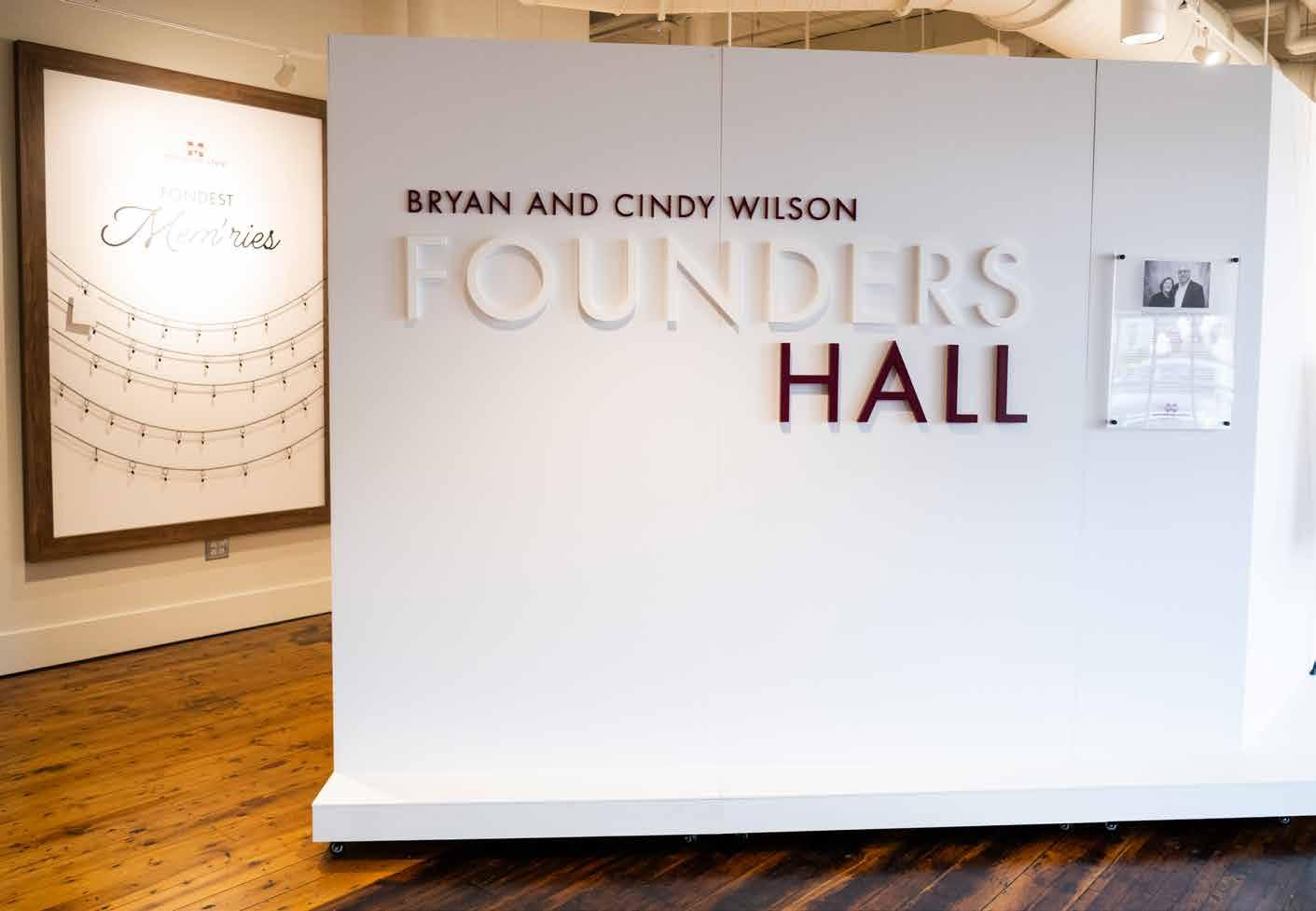
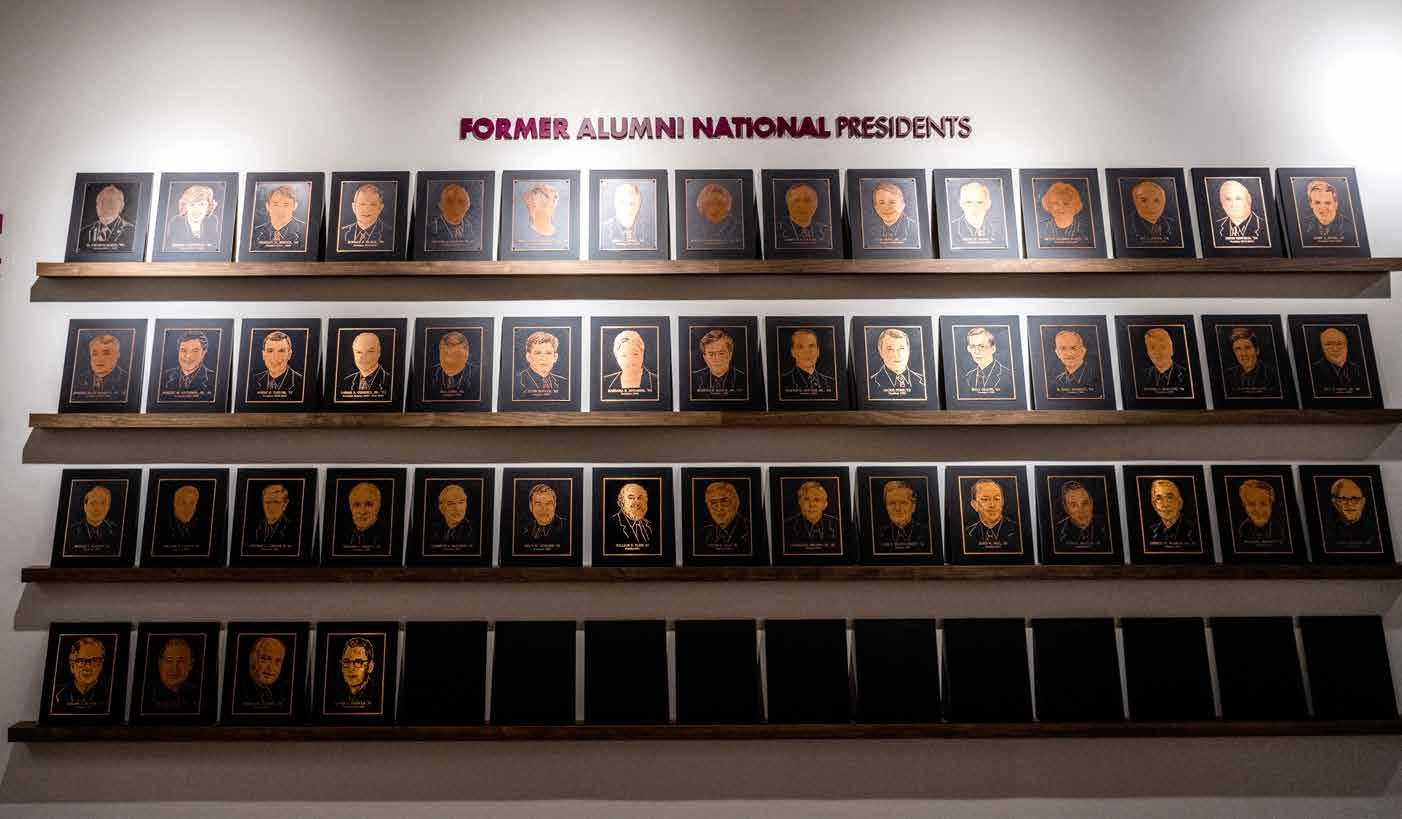
a three-story, 461-slot parking garage and 104room Courtyard Marriott hotel. Accordingly, its halls and breakout rooms have already hosted a number of conferences, banquets and conventions.
“Never in our wildest imagination did we think we’d wind up with such a beautiful facility,” said Rodger Johnson, chairman of the board for the MSU Foundation and a primary driver of the project. “The value of the accomplishments go well beyond the facility alone, though. It’s representative of the bridging relationship we’ve created with the community. It’s part of an effort that has been and continues to be transformational for the university and the city, merging two great institutions. It’s really



been a pleasure to help put it all together. This is history married to the present with an eye toward the future.”
Starkville Mayor Lynn Spruill agreed, noting the mutually beneficial aspects of the relationship.
“We really appreciate the partnership,” she said. “As an SEC city, we want to be a place where people are proud to be. We’re proud of the seamless nature of the relationship as we’re growing from city hall to Lee Hall. Watching the future come together is really exciting. It’s incredibly bright.”
To learn more about The Mill at MSU or to book a space for your own event, visit themillatmsu.com. n

“The Mill is the front door for welcoming guests and visitors to our campus, Starkville and Oktibbeha County.”
- President Mark E. Keenum

THE U.S. GRANT PRESIDENTIAL LIBRARY
Experiencing the past in the present
By Kevin Tate
Mississippi State University plans to break ground soon on the site of a new U.S. Grant Presidential Library, significantly increasing the impact the museum will have on the campus and community, and creating a gateway to welcome visitors to our home.
The university is exploring opportunities and private gifts to relocate the presidential library from its current location in Mitchell Memorial Library. Plans call for it to move to a new, dedicated and much more accessible facility to be built near the intersection of Highway 12 and Russell Street. Here, it would help greet anyone arriving to enjoy the university, the city and all the library has to share.
Bryan and Cindy Wilson recently made an important lead gift to the Grant Library Initiative because they understand this investment in the new presidential library will have a lasting influence for generations.
“Cindy and I believe the Grant Library will serve as a starting point for countless students, history buffs and visitors from all over the world, not only to learn about
President Grant but also about Mississippi State University,” Wilson said.
“As a former teacher, Cindy envisions grade school field trips to the Grant Library that over time will be the first introduction to Mississippi State for hundreds of thousands
"Cindy and I believe the Grant Library will serve as a starting point for countless students, history buffs and visitors from all over the world, not only to learn about President Grant but also about Mississippi State University.”
— Bryan Wilson
of kids," he continued. "What better way to promote unity and civil discourse along with an opportunity for a lifetime of education?”
The new facility will offer expanded archival resources, modern exhibition spaces and interactive visitor experiences to
foster understanding of Grant’s leadership, resilience and vision. The work will make history’s lessons accessible by bringing the museum experience to life.
“Each gallery will have a distinct visual identity, yet still be part of a cohesive design system that places Grant at the center,” said Anne Marshall, an MSU history professor who serves as executive director of the Ulysses S. Grant Association and the U.S. Grant Presidential Library.
They will tell the story of Grant’s military and presidential careers and show the pivotal role Mississippi played in both,” she continued. “The new library will be more than seeing artifacts in glass cases. With much more compelling immersive audio and visual experiences, the exhibits will bring history to life for visitors of all ages.”
The presidential library is the largest single collection of Grant papers in the world. The collection came to MSU in 2009 and the presidential library status was established in 2012. It is home to a vast repository of correspondence, photographs, scrapbooks and memorabilia, much of it in Grant’s

Impressions of
The journey centers the visitor’s impression. Throughout, explicit and implicit content messaging and design will encourage visitors to think critically about who Grant was as a man and a leader and what it is that shapes those impressions.
“The new library will be more than seeing artifacts in glass cases. With much more compelling immersive audio and visual experiences, the exhibits will bring history alive for visitors of all ages.” ~ Anne Marshall
What impression was Grant looking to make?
What impressions did Grant want to leave of himself?
How have impressions of Grant changed over time and why?

Appomattox
Memoirs Legacy over

own hand, there are also more than 4,000 published works focused upon Grant, his generalship and his presidency. Much of it is primary historical source material preserved from his own time. The museum also includes a gallery dedicated to the Frank and Virginia Williams Collection of Lincolniana which, before its transition, constituted the largest privately-held collection of Abraham Lincoln items in the U.S.
The library has benefited visiting writers and Grant biographers. Its staff also worked closely with a production company that made the 2020 Grant miniseries which appeared on the History Channel.
“We are grateful for Bryan and Cindy’s major investment in the future of the Grant Presidential Library and the many other ways they support Mississippi State University,” said MSU President Mark E. Keenum. “Private gifts from our alumni, friends and fans make so much of the work we do possible. We are making an incredible impact in the lives of our students and serving the state and nation thanks to their generosity and visionary leadership.”
Bryan, a two-time entomology alumnus and 2024 National Alumnus of the Year, and Cindy, 1982 elementary education alumna, have generously invested in multiple areas including Bulldog athletics, endowed
scholarships, the T.K. Martin Center’s Project IMPACT program and student activities. They were drawn to the Grant Library Initiative from historical, educational and aesthetic standpoints.
The Wilsons are excited by the evolution of this entrance to campus. Alongside the new Grant Presidential Library, plans call for a boutique hotel, green spaces and other amenities on Russell Street adjacent to The Mill.
“This is a fantastic opportunity to establish a focal gateway, inviting visitors to explore one of the most beautiful campuses in the U.S.,” Bryan Wilson said. He is an agricultural executive and entrepreneur who has served on a variety of campus and community advisory boards.
He also noted the enormous impact the presidential library will have on Starkville’s economy. The new museum will change the way visitors see our community.
“We are grateful to the Wilsons for their tremendous continued support of our university,” said John Rush, vice president for development and alumni. “Their generosity will help us create the facility and experience that we wish to represent the Grant and Lincoln collections, MSU, and the state of Mississippi.”
The library’s current location already hosts many visitors, but a recent feasibility study suggested it has a vast opportunity to grow. Estimates project 55,000 to 75,000 people might come to the new presidential library each year thanks to increased visibility, accessibility and parking.
“We already get visitors from all over the nation and across the world, and we envision the U.S. Grant Presidential Library joining the list of premier historic and cultural tourism locations in the state such as the museums in Jackson and the Vicksburg National Military Park,” Marshall said. “Furthermore, alongside Vicksburg and Corinth, this museum will magnify Mississippi’s Civil War tourism industry.”
The Wilsons believe in highlighting Grant’s critical role in unifying the country and prioritizing healing and reconciliation following the war, which allowed the nation to recover and rebuild its strength.
“Mississippi State housing and supporting the Grant Presidential Library delivers a great message of forgiveness, civility, unity, and the advancement of a continued path forward and upward,” Wilson said.
For more information about supporting the university’s Grant Library Initiative, contact John Rush at 662-325-9306 or john.rush@msstate.edu n


• Serving communities for over 70 years
• Located in all 82 counties of MS, across the southeastern US, and Colorado
• Philanthropic supporter of MSU, Mississippi area high schools, and other institutions of higher learning
1970s

and on the Education Advisory Board for the First Center for the Visual Arts. In addition to her MSU degree, she holds a master’s from Mississippi College and a doctorate from the University of South Carolina.
Scott Hutchins (M.S. entomology, ‘83) was nominated by President Donald Trump to serve as the U.S. Department of Agriculture’s undersecretary for research, education and economics. He served as the deputy undersecretary for REE during Trump’s first term. A board-certified entomologist, Hutchins spent more than 30 years as a global leader of integrated field sciences for Corteva Agriscience, formerly known as Dow AgroSciences. At the time of this printing, his nomination awaits confirmation by the Senate Agriculture Committee and the full U.S. Senate.

wing levels. He previously served as the chief of staff for the Mississippi Air National Guard. Alan Lamar (B.P.A., ’92) was elected to the board of directors of the Phil Hardin Foundation, a statewide education philanthropy organization based in Meridian. He is a private wealth financial advisor with Coffin, Lamar, Sims and Hannah Private Wealth Management of Wells Fargo Advisors.


William B. Berry (B.S., M.S. petroleum engineering; ’74, ‘76) was named as part of the 12-member Class of 2025 for the Horatio Alger Association, a nonprofit educational organization that honors the achievements of outstanding leaders who have overcome adversity. It also supports young people in the pursuit of their American Dream through higher education and technical scholarships. A former CEO of Continental Resources, Inc, and executive vice president of ConocoPhillips, he developed a strong work ethic delivering newspapers and cleaning used bricks for a penny each. At 17, he bought a car that had been completely submerged in salt water during Hurricane Camille, stripped it down and repainted it to drive himself to Mississippi State. He has survived malaria and throat cancer and held administrative positions with his employers on four continents. As a philanthropist, he and his wife, Sherry, support STEM education and at-risk youth. They are longtime supporters of Mississippi State University, including endowing the William and Sherry Berry Chair in Agricultural and Biological Engineering and providing scholarships to hundreds of MSU students. Thomas Velsun (MBA, ’77) has released a new thriller “The Hidden Empire” through The Wild Rose Press. Available through major online retailers, the book follows two athletes turned business executives who unexpectedly find themselves enmeshed in a plot to conquer the world.
1980s
Nola Jones (B.M.E. instrumental, ‘80) was among three inductees for the Music for All Hall of Fame 2025. The honor recognizes individuals who have significantly impacted music education in America. Jones is on the chief judge team for Bands of America and is division coordinator for the Director Academy at the Music for All Summer Symposium. She is on the board of directors of the Tennessee Music Education Association and previously served as director of visual performing arts for the Metropolitan Nashville Public Schools
Anthony R. Baity (B.S. aerospace engineering, ’84) was selected as assistant deputy chief of staff for logistics, engineering and force protection at the Pentagon headquarters of the U.S. Air Force. A member of the senior executive service, he is responsible to the Air Force chief of staff for leadership, management and integration of Air Force logistics readiness, aircraft, munitions and missile maintenance, civil engineering, and security forces, as well as setting policy and preparing budget estimates that reflect enhancements to productivity, combat readiness and quality of life for airmen.
1990s
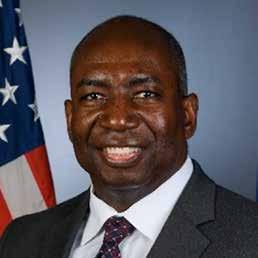
Lynn Oldshue (B.A. communication, ‘92) has released “Our Southern Souls, Vol. II.” In this second volume of the series, the award-winning journalist and photographer shares a collection of 160 stories, which were originally published on the website of the same name. The stories explore the lives of everyday people she meets through chance encounters. The book is available for purchase at select bookstores and on the Our Southern Souls website with all proceeds benefiting the Magnolia Breeze Youth Ensemble, a therapeutic music program for children and teens.
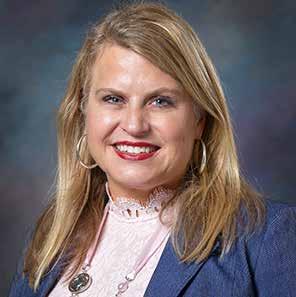

Maj. Gen. Edward H. Evans Jr. (B.S. industrial engineering, ‘92) was celebrated at a promotion ceremony at the Mississippi National Guard Joint Task Force headquarters in Jackson. He earned his commission in 1992 after graduating from the ROTC at MSU. He began his career as an active-duty civil engineer and later became an aircraft pilot. His wartime, contingency and aeromedical experience includes more than 725 combat hours in support of overseas operations. His leadership positions include commanding at the squadron, group and
Dr. Jennifer Bryan (B.S. microbiology, ‘99) is president of the board of trustees for the Mississippi State Medical Association. She practiced family medicine in her hometown of Brandon until joining the Department of Family Medicine at the University of Mississippi Medical Center as an assistant professor, later moving to St. Dominic Medical Associates. She previously served as vice chair of the board and was elected as chairman from 2018-21, serving as the first female chair of the group.
2000s
Taylor Ferrell (B.A. political science, ‘00) is now Of Counsel at Beveridge & Diamond in Washington, D.C. He most recently served as the senior legal advisor on all
energy, environment and installation issues at the Department of Defense.
Before joining the defense department, he was acting assistant secretary of the Army Civil Works, overseeing the U.S. Army Corps of Engineers Civil Works program. He was also a trial attorney in the Department of Justice, Environment and Natural Resource Division.

Bill Crawford (M.S. school administration, ‘01) has authored “A Republican’s Lament: Mississippi Needs Good Government Conservatives,” now available from the University Press of Mississippi. Crawford is a retired editor and publisher of three weekly newspapers. He was executive vice president and chief financial officer of Great Southern National Bank, vice president for community and workforce development at Meridian Community College, and founder and president of The Montgomery Institute. He served in the state legislature, and, under three Republican governors, he held various appointments including the board of the Mississippi Institutions of Higher Learning, deputy director of the Mississippi Development Authority and the task force on contracting and procurement for the Mississippi Department of Corrections.

Law Firm, PLLC, focuses on civil litigation, personal injury and wrongful death claims, insurance defense, and estate planning.
Michael Curtis (B.F.A. graphic design, ‘04) is now a co-owner of Ohiobased Planning NEXT, a national community planning firm that has worked in 25 states and more than 150 communities in the U.S. He is a director of the firm and holds certification from the American Institute of Certified Planners. In addition to his degree from MSU, he holds a master’s from Ohio State University.

Jason Rogers (B.A. English literature, ‘03) has co-written the rom-com “Take me to Banaue.” It follows an American engineer as he discovers the truth of the women he fell in love with. The film is now available to stream on Tubi. It is also available to rent or buy on Amazon Prime.
Matt Mooney (B.B.A., MBA, business administration; ’04, ‘05) served as the 2025 WM Phoenix Open Tournament chairman. Chief operation officer of Parkway, a commercial real estate firm in Arizona, he was assistant chairman for the 2024 event. He previously served as senior vice president and managing director at Cousins Properties in Atlanta, Georgia. A Brookhaven native, he was a member of MSU Men’s Golf while at State.


research, education and economics. She previously was as chief of staff to the Rural Business Cooperative Service with the USDA, and served in the National Guard. Bailey Archey (B.S. animal and dairy sciences, ’18; DVM, ’22) was named policy advisor in the marketing and regulatory programs mission area focusing on Animal and Plant Health Inspection Services issues. She previously served as a legislative assistant to U.S. Sen. Cindy Hyde-Smith.
Connor Chase (B.B.A., ’18) is now an attorney with Beasley Allen Law Firm. He previously worked as a law clerk before receiving this promotion, in which he will focus on cases involving toxic exposure. He previously worked in the municipal water industry, an experience that informs his law practice. He earned his law degree from the Samford University Cumberland School of Law.


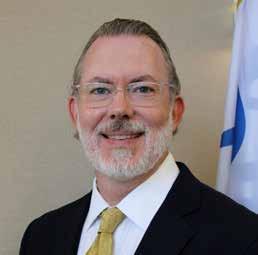
David Stovall (B.A. communication, ‘03) was elected Aldermanat-Large for the City of Pearl in a fall 2024 runoff election. At Mississippi State, he served as treasurer of Lambda Chi Alpha and was an active member in the Public Relations Society of America, College Republicans, the Greek Council for Christ and the Campus Activities Board. He earned a master’s from the University of Southern Mississippi and a law degree from the Mississippi College School of Law. His law practice at Stovall
Laurie Todd-Smith (Ph.D. education, ‘07) was appointed by President Donald Trump assistant secretary for early childhood education at the U.S. Department of Health and Human Services. Her three decades of education experience include serving as head of then-Gov. Phil Bryant’s education policy team. She most recently served as director of the Center of Education Opportunity and the Center for the American Child at the America First Policy Institute.
2010s
Two Division of Agriculture, Forestry and Veterinary Medicine graduates have been appointed to leadership roles within the U.S. Department of Agriculture. Kelsey Barnes (B.S. agricultural science, ’15) is now senior advisor to the secretary for rural development, biofuels, and

Jenna Taylor (B.A. communication, ’18) is now an account manager with Obsidian Public Relations in Memphis, Tennessee. She first joined the company as an intern in 2018, turning full time in 2020 delivering strategic support to clients and developing skills that led to this promotion.
2020s
Valencia Epps (B.S., M.S. elementary education; ’22, ’23) is one of 29 inaugural Fulbright-John Lewis Civil Rights Fellows selected from students across the U.S. A Stephen D. Lee Scholar and Phi Theta Kappa Honor Society member, she is the university’s first recipient of the new fellowship and MSU’s 10th Fulbright U.S. Student program winner in the past six years. She is using her fellowship research to improve education inequities in rural South Korea by improving collaboration between Korean natives and expatriates. Her project addresses the gap in occupational well-being between male and female expatriate English teachers, ultimately contributing to the systematic change in South Korean English education programs.

Randy Bolen Sr. (B.A. marketing, ’70) 77, Oxford — A member of the Sigma Alpha Epsilon fraternity, he enjoyed his role as a pledge trainer. Following graduation, he accepted a job at Aetna in Birmingham, Alabama, and later settled back in Jackson. His career expanded as he worked several years at Paine Webber. Bolen had an affinity for the commodities market. His job took him across the Mississippi Delta, meeting many soybean and rice farmers. His last job was as a land man for Miller Land, a job that suited him well because he loved seeking land leases in small towns across Mississippi. — Jan. 6, 2025
Donald J. Conkel (B.S. social studies education, physical education, ’57) 89, Pompano Beach, Florida – He was part of both the Bulldog football and the MSU track teams while at State. — Oct. 6, 2024
Billie Miriam Brantley “MaryAnne” Dale (B.S., M.S. music education; ’68, ’70) 78, Brandon — A high-school member of the Mississippi Lions All State Band, the Kosciusko native was first chair flute with the Mississippi State University Symphonic Band. She also sang with the MSU Choir and the Madrigal Singers. She worked for the Mississippi Department of Education’s Disability Determination Services from 197480. She was named statewide Examiner of the Year in 1976 and served one term as president of the Mississippi Association of Disability Examiners. — Dec. 8, 2024
Cecil Wayne Grisham (B.S. civil engineering, ’63) 89, Ripley – He attended MSU after working as a lineman for multiple years. Following his graduation, he was a civil engineer with the Corps of Engineers for 32 years until his retirement. — Dec. 13, 2024
Paul D. Hardin (B.S. agricultural engineering technology and business, ’83) 63, Madison – He had a 33-year career with the USDA Farm Service Agency, working with both appraisals and loans. Upon retirement, he focused on furthering his appraisal and real estate broker business,
pH Real Estate Services in Madison. He was a lifetime member of the Mississippi Coalition of Appraisers, having served as president of the board of directors and secretary. He was also a member and served on the board of the Mississippi Association of Realtors. A talented musician who played trumpet in the Famous Maroon Band, he played with his church orchestra and lent his vocal talents to the church choir, quartets and solos. — Sept. 16, 2024
Arthur Darwin Holland (B.S. agronomy, ’53) 95, Clinton – For the majority of his career, he worked in sales, enjoying the time spent with customers promoting products and discussing Bulldog sports until he retired at 90. A member of Parkway Baptist Church in Clinton, he taught Sunday school for more than 50 years. — Oct. 18, 2023
John A. Johnson (B.S. management, ’68; MBA, ’72) 80, Madison — A member Phi Kappa Tau Fraternity, he served as advisor and supporter of local chapters, as well as in the national organization. He was active duty with the U.S. Army for two years, stationed in Vietnam and San Francisco, California, processing personnel. He continued this commitment with extended service in the Army Reserves. After military service, he returned to MSU, earning an MBA in 1972. He then worked for Shell Oil in New Orleans, Louisiana, before returning to Jackson to work in state government. He earned a Juris Doctor from Mississippi College in 1980 and continued in state government using those skills. He retired from state government and taught computer skills at Horizons in Ridgeland. He was a member of American Mensa and enjoyed their annual conventions for over 40 years. — Jan. 28, 2025
Brian Roy Lockhart (Ph.D. forest resources, ’92) 60, Gentry, Arkansas –He was owner of Hardwood Silviculture LLC and served as chair for the Society of American Foresters D2 Silviculture Working Group. He was also a member of the Biennial Southern Silvicultural Conference Steering Committee. He held
a master’s in forest science from Yale in addition to his doctoral degree from MSU. — Nov. 30, 2024
Ed A. “Tony” Montgomery (B.S. animal husbandry, ’69) 79, Canton — A member of the Sigma Alpha Epsilon Fraternity, he spent much of his career working in farm management, chemical sales, cotton scouting and cotton farming in Yazoo County, earning a reputation for his work ethic and integrity. — Nov. 9, 2024
John Kent Owens (B.S., Ph.D. electrical engineering; ’65, ’74; Professor Emeritus) 89, Starkville – A native of Laurel, he joined the Marine Corps after his high school graduation and was first stationed in North Carolina. After leaving military service, he and his family moved to Florida where he was an electronic technician, which helped inspire his collegiate plans. After earning his bachelor’s at MSU, he earned a master’s at the University of New Mexico, then returned to MSU for his doctoral degree. He was a member of numerous honor societies including Eta Kappa Nu, Tau Beta Pi and Phi Kappa Phi. He started a professional career with Lockhead in Georgia before returning to Starkville to join the faculty at Mississippi State. During his 23 years of faculty service, he earned the HearinHess Distinguished Professor Award and performed noteworthy research for Honda Aeronautics. In 1991, he left academia to begin a career in forensic accident investigation and expert testimony before fully retiring in 2018. – Nov. 6, 2024
William Green Poindexter, III (B.A. political science, ’67) 80, Inverness – While at MSU, he was a member of Sigma Chi and remained involved with the fraternity and the university throughout his life. He served on the staff of Sen. John C. Stennis before returning to Sunflower and Leflore counties to farm. At 27, he was elected mayor in Inverness, the youngest person to hold that office in the town’s history. He was elected to the Mississippi House of Representatives for the 13th district in 1975 and served for 20 years. During that tenure, he was a
ranking member of the house and served as vice chairman of the Ways and Means Committee and chairman of both the rules and peer committees. In 1993, he joined the staff of Gov. Kirk Fordice as a legislative liaison, as well as agricultural liaison. He was executive director of the Mississippi Agricultural Aviation Association for five years and was serving on the Mississippi Tax Appeal board. Among his many recognitions for civic contributions, he was named Inverness Citizen of the Year in 2018. – Nov. 25, 2024
Charles H. “Sonny” Shamburger, III (B.S. business administration, ’69) 77, Brandon— A standout football player for the Bulldogs and member of Kappa Sigma Fraternity, he found success in the insurance industry and as a pilot, Sunday school teacher and cook. Known for his adventurous spirit and love for travel, he shared countless journeys with his parents and his wife, Peggy Agnew Shamburger. His dedication to sports continued with his unwavering support for Brandon High School football and other athletic events. — Nov. 21, 2024
Peggy Agnew Shamburger (B.S. basic business education, ’73) 72, Brandon — A member of Phi Mu sorority, she was a flight attendant for Delta Airlines before becoming a travel agent and guide. Besides her family and faith, nothing brought Peggy more joy than traveling. She joined Avanti Travel in 1991, and explored the world including not only some of the most popular destinations, but also some of the most obscure. Her last big trip was across several countries in Eastern Europe to celebrate her 50th wedding anniversary to her husband, Sonny. — March 20, 2025
Julie Paul Smith (attended) 67, Glen Allen, Virginia – Following her time at MSU, she earned a nursing degree from the University of Southern Mississippi. She was a member of Kappa Kappa Gamma sorority. Her career moved with her husband’s across the Southeast, including work in a critical care unit in Louisiana,
an open-heart unit in Tennessee and another turn in critical care in Kentucky before settling in Virginia where she spent 22 years with what is now the Virginia Commonwealth University Medical Center. There, she played a pivotal role in developing a medical program for the ER and rose to the position of clinical coordinator. — Nov. 29, 2024
Louis J. “Lou” Venier (B.S. marketing, ’56) 90, Camp Hill, Pennsylvania – Born in Brooklyn, New York, he came to Mississippi State on a football scholarship. He was commissioned as a second lieutenant in the Army and was assigned to the 25th Infantry Division “Tropic Lightning” Anti-Aircraft Artillery Battalion in Hawaii. Following his honorable discharge, he became a pharmaceutical salesman in Pfizer’s agriculture division. He retired from the company as a regional manager after nearly 34 years. — Oct. 31, 2021
Jon Enrique Windham (B.S., M.S. civil engineering; ’64, ’67) 82, Ocean Springs –He attended MSU on a football scholarship, playing on the freshman team in 1960 and the varsity squad from 1961-63. He was named co-captain for his senior year during the 1963 Liberty Bowl Championship season. He played in the Blue-Grey Game in Montgomery, Alabama, the next year and went on to serve the Bulldogs as a graduate assistant coach from 1964-66. He began his career at the Waterways Experiment Station, now known as the Engineering Research and Development Center in Vicksburg, in 1966 while completing his master’s thesis. He then went to Texas A&M, where he earned a doctoral degree. He returned to ERDC where he worked until 2009, when he became a consultant for various contractors that support ERDC’s Impact and Explosions Effects Branch. In 2020, he became a retired annuitant for the ERDC-IEEB. He earned the highest ERDC award in 2015 when he was inducted into the Gallery of Distinguished Civilian Employees. – Oct. 8, 2024
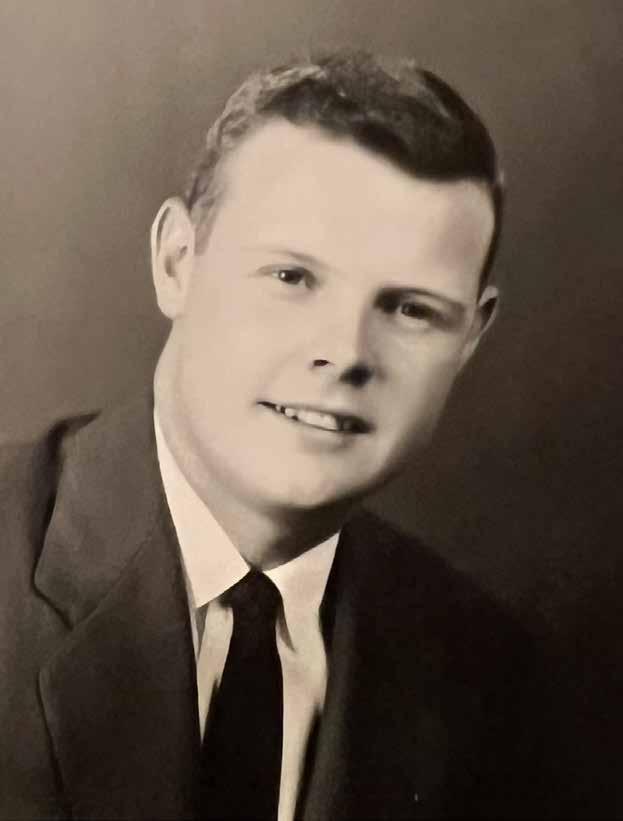
Remembering Wentworth Vail “Winky” Harned
Wentworth Vail “Winky” Harned (B.S. petroleum geology, '57) 89, Williamsburg, Virginia – The son of Dr. Horace H. Harned, MSU’s longtime head of microbiology whose name is on the building that now houses the Department of Biological Sciences, Wentworth was born and lived on the campus of what was then Mississippi State College. He was a member of Kappa Sigma while at State. Following his undergraduate graduation, he earned a master’s in geology from Ole Miss. His professional career began in Arlington, Virginia, and he spent three decades in the field of oceanography, which included extensive travel. From 1961 until 1975, he was a civilian scientist with the U.S. Navy working on naval ships, directing marine geophysical surveys. He then relocated to Pass Christian with the Office of the Oceanographer of the Navy. He later worked at the Stennis Space Center in Bay St. Louis.
Returning to Arlington, he worked with the Office of Naval Ocean Research and Development Activity before ultimately becoming the U.S. national liaison officer to the NATO SACLANT Undersea Research Centre in La Spezia, Italy. He retired in 1991 to enjoy time traveling with his wife, Marilynn, and other leisure activities.
– March 30, 2025
IN MEMORY OF DONALD LEE "DONNIE" PRISOCK JR.
Donald Lee “Donnie” Prisock Jr., one of Mississippi State’s most popular and courageous alumni, died Dec. 26, 2024. He was 72.

A native of Starkville, Prisock was the epitome of positivity and kindness. Born with cerebral palsy, he used a wheelchair his whole life and ultimately became the first student with a disability to enter Starkville Public Schools.
He earned a bachelor’s in psychology and social work, and a master’s in guidance education from Mississippi State, where he was an active member of Sigma Alpha Epsilon. He then earned a doctoral degree in higher education from the Jackson campus of Ole Miss. However, he always maintained his love for MSU and was the consummate Bulldog fan.
Fondly known on campus as “Doc,” Prisock began his 31-year career at MSU as an academic counselor with the athletic department before moving into the “job he was meant to have”—working with students with disabilities as coordinator of Student Support Services.
In 1977, MSU mechanical engineering students and faculty built a customized “Bulldog Buggy” that gave Prisock newfound independence. With his custom wheels, he was able to navigate Starkville and go to work with no assistance.
Throughout his career, he received many awards including one for leading Mississippi State through a transformation into one of the most accessible campuses in the Southeastern Conference. He also was named one of President George H.W. Bush’s “Heroes” during his MSU commencement address in 1989.
The Prisock/Bailey Endowed Scholarship was created in 1999 in honor of Prisock and others. It is used to help students with disabilities to attend MSU. In 2003, his accomplishments were recognized during the state’s first Celebration of Achievement sponsored by the Mississippi Department of Rehabilitation Services and the Mississippi Society for Disabilities. In 2014, the Donnie Prisock Diversity Award was established in the MSU College of Education. It honors graduates who have “demonstrated leadership and commitment to promoting diversity and are considered role models and advocates for diversity at MSU.”
Bulldog family mourns leading ladies Lee, Ruby
The Mississippi State University community has lost two dedicated and passionate supporters of all things Maroon and White with the passing of former first lady Patricia Pittman Lee, 83, and Patricia Randle Ruby, 84.
The wife of Charles Lee, the 17th university president, Patricia Lee died Aug. 28, 2024. A native of North Carolina, she worked tirelessly to support her husband and children as Charles earned his degrees and pursued a career in higher education through institutions including the University of Arkansas at Monticello, Mississippi State, and Texas A&M.
While at A&M, with her children grown, Lee joined the dean’s office in the College of Agriculture and Life Sciences as coordinator for the college’s development council. She later became executive director of the International Stockman’s School, a partnership between the Department of Animal Sciences and the Houston Livestock Show and Rodeo.
In 2002, she became the First Lady of Mississippi State University, where she used her knowledge and experiences to advance the university’s numerous internal and external interests.
In 2006, in her acceptance speech for being selected by the President’s Commission for Women to receive the Outstanding Woman’s Award, she said, “As women, we always have been society’s nurturers and caregivers, and I for one have no wish to see women relinquish that role, even as our horizons grow broader. Instead, I hope you will use your gifts of empathy and compassion as you exercise leadership to help make our society more caring and just.”
Patricia Ruby, wife of longtime university leader Roy H. Ruby, died April 21.
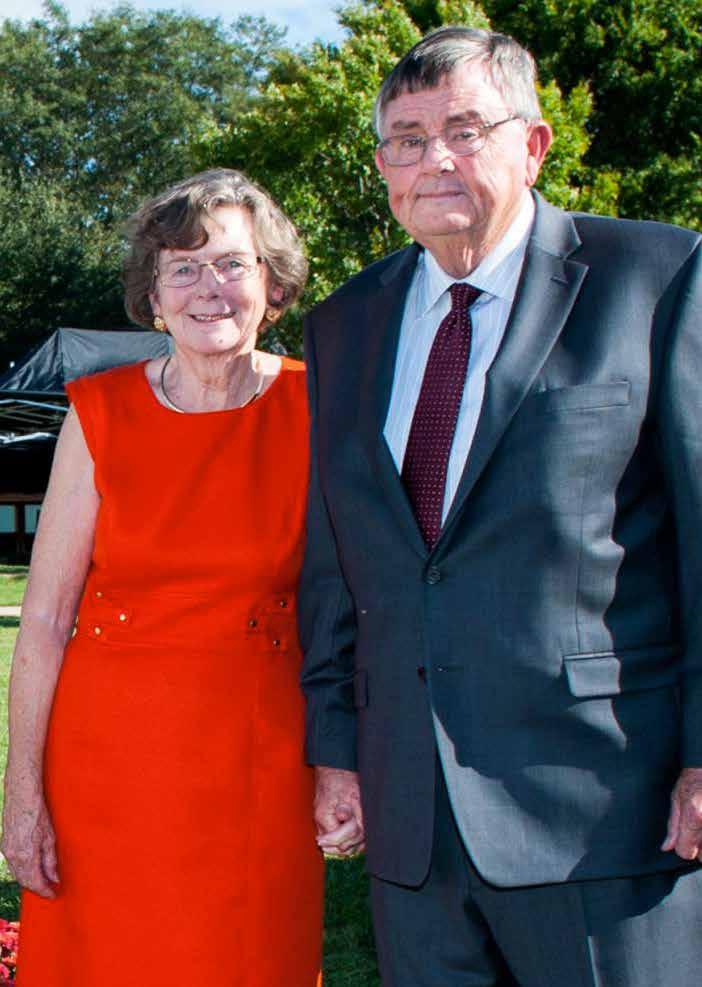
Born in Ecru, Ruby graduated in 1961 from what is now the Mississippi University for Women with a degree in elementary education. As a student, she was a member of the Mam’selle and Masker Social Clubs and the school’s representative to the Maid of Cotton contest in Memphis, Tennessee.
Upon graduation, she accepted a position as a first-grade teacher in the Natchez Public Schools. After marrying Roy Ruby in 1962, she moved to Ft. Knox, Kentucky, where the couple lived while he completed military service. They ultimately returned to Starkville which became their permanent home. She was active in the First United Methodist Church and the Starkville Women’s Club. For several years she delivered Meals-on-Wheels and participated in other charitable organizations.


Remembering ROBERT E. “ED” SMYLIE
Robert Edwin “Ed” Smylie of Crossville, Tennessee, who was best known for his innovative solution to help Apollo 13 astronauts return safely to Earth, died April 25. He was 95.
Born in Lincoln County, Smylie served in the U.S. Navy before graduating from Mississippi State with a bachelor’s in mechanical engineering in 1952. He then served as an instructor for the university while pursuing a master’s in the field, which he earned in 1954. In 1967, he added a master’s degree in management from the Sloan Fellowship program at the Massachusetts Institute of Technology.
Smylie began his career with Douglas Aircraft Company, but when President Kennedy announced plans for a manned mission to the moon, he applied to and was accepted for a position with NASA, where he was appointed as head of the Environmental Control Section. For the next 11 years he worked at the Houston, Texas, Johnson Space Center where he designed the environmental control systems for the Apollo program, including the spacecraft and suits to be used
on all Apollo Lunar Missions.
In 1970, Smylie made one of his most famous contributions to NASA when he found a solution and talked Apollo 13 astronauts through a life-saving, mid-flight repair.
When the flight crew moved into their lunar module, its carbon dioxide scrubbers lacked the capacity to provide breathable air. Smylie and two colleagues had to engineer a solution using only what was available to the crew, which included among other things a sock, flight-plan binder, hoses from their suits and duct tape.
Smylie later said that once he learned duct tape was available, “I felt like we were home free. One thing a Southern boy will never say is, ‘I don’t think duct tape will fix it.’”
In 1973, Smylie moved to NASA headquarters in Washington, D.C. before moving to the Goddard Space Flight Center in Maryland as the deputy director. In 1980, he returned to NASA headquarters as associate administrator for space tracking and data systems, where he was responsible for NASA’s worldwide satellite tracking network. He was recognized at the White House for his integral

contributions to NASA during the early phases of the shuttle program.
Following his retirement from public service, he held administrative roles with RCA, MITRE and Grumman Corporation until 1995. Though semi-retired, he continued to be involved in the space program as an independent consultant until his full retirement in 2010.
For more about Smylie and his historic Apollo 13 work, see the MSU Film’s produced documentary “XIII” at www.films.msstate. edu/film/xiii.
Robert “Ed” Smylie simulates the work he and a team of engineers in NASA’s Mission Control did for the Apollo 13 mission. (MSU Libraries archival photo)
Robert “Ed” Smylie stands next to the command center used during the Apollo missions. Smylie was an MSU alumnus who played a pivotal role in the Apollo 13 mission’s success.
with LEE WEISKOPF
I recently attended a ceremony at Keesler Air Force Base in Biloxi, where MSU President Mark E. Keenum, Gov. Tate Reeves and officials from the U.S. Air Force celebrated the signing of an enhanced use lease to pave the way for construction of the 100,000-squarefoot Mississippi Cyber and Technology Center that will straddle the fence of Keesler and the City of Biloxi. This was a monumental step toward another victory for the state of Mississippi and Gulf Coast to fortify this region as a hub for national defense and security initiatives. It is also a reminder of how far we have come since one of our state’s lowest days, Aug. 29, 2005, and how the power of education and partnership have helped us overcome the disaster of Hurricane Katrina to not only rebuild but remake our state for the 21st century.
I was a sophomore in the fall of 2005, and on the campus of Mississippi State University, it was like any other late summer, rainy day, except that it wasn’t. I clearly remember watching television reports from the Gulf Coast as Hurricane Katrina barreled down on the Gulf Coast, leaving a path of destruction never seen before. My hometown of Columbia, some 90 miles inland, suffered extensive damage from the winds and rain. An estimated two-thirds of the state saw some type of impact from the storm and the destruction in the three coastal counties was unbelievable. Homes and businesses were gone, moved and destroyed by the wind, rain and storm surge leaving nothing but debris and slabs behind. Mississippi is a small community, and you did not have to go far to find someone who lost all material possessions, or even worse, a loved one. How would we overcome? We did what Mississippians do. We rallied together to clean up and rebuild, or as Gov. Haley Barbour simply said, “We hitched up our britches.”
People from all over the country flocked to the Gulf Coast to begin the cleanup efforts, students and faculty from MSU included. Many student groups organized donation drives, as well as trips to the coast to assist in cleanup and with other volunteer roles. These trips to the normally beautiful Gulf Coast were anything but glamorous. They usually meant sleeping in the conference room of MSU’s Coastal Research and Extension Center in Biloxi with dozens of your closest friends on the floor around you. Volunteers found themselves not only assisting in the tasks of
clean up or serving a meal, but also being a friend to someone who didn’t know how they were going to rebuild their home, giving a hug to a child and telling them it would be OK, and other acts of compassion. It was raw, but it was real. And it set the stage for the rebuilding of not only our Gulf Coast but the entire state. Twenty years later, I marvel at where Mississippi and the Gulf Coast are. Mississippi is celebrating record amounts of capital investments that are creating jobs and economic opportunities for our families. Mississippi’s educational achievement is at an all time high, with our students testing at or above national averages, garnering attention from those around the country for what the New York Times has called the “Mississippi Miracle.” Specially, our Gulf Coast is thriving with strong communities, full of development and opportunities. MSU has been right there along the way in the 20-year rebuild since Hurricane Katrina, investing in the region with Engineering on the Coast, the headquarters of the MSU-led Northern Gulf Institute and the soon-to-be constructed Northern Gulf Aquatic Food Research Center in Ocean Springs. We are the top college choice for high school graduates from the Coast.
The Mississippi Cyber and Technology Center is the next step in that rebuild, or “rebirth,” that will enhance the educational and economic opportunities for Mississippians for years to come. Partnering with the U.S. Air Force, state and federal governments, all levels of education and private sector partners like Mississippi Power, fortifying and protecting our nations cybersecurity programs and

personnel will make this center on Mississippi’s Coast a national example of partnership and strength. As a native Mississippian and proud MSU alumnus, I am excited to see our state succeed and take pride in knowing that Mississippi State University is right there working and partnering with others to make not only the coast but the entire state of Mississippi the best it can be. n
Lee Weiskopf was appointed chief of staff in Mississippi State’s Office of the President in May 2024 and continues his work as the university’s lead lobbyist and primary contact to the executive and legislative branches of state government. A two-time graduate of MSU, he holds a bachelor’s in political science and a master’s in public policy and administration. He served as director of policy for then-Lt. Gov. Tate Reeves, and he began his professional career at MSU’s Social Science Research Center. As a student, he received the Sen. John C. Stennis Scholarship and was vice president of the Student Association.

Weiskopf
Lee Weiskopf in his days as a student leader at Mississippi State. Pictured during the 2006-07 school year are the MSU Student Association officers: (from left to right) attorney general Aaron Rice of Sumrall, treasurer Thomas C. "T.C." Rollins of Columbus, president James R. "JR" Love of Glen Allen (center), vice president Lee Weiskopf of Columbia, and secretary Elizabeth R. "Libbi" Burns of St. Joseph, Louisiana.

Found in the University Archive, this image captures an MSU ROTC cadet rappelling down the Military Science Department’s training tower in 2005. The Army ROTC has long played an active role on campus, preparing students for leadership through challenging training exercises like this one. Today, Mississippi State is proud to be recognized as one of the nation’s Top 5 Military Friendly Schools by VIQTORY (GI Jobs). Were you part of ROTC or another military-affiliated group while at MSU? Share your stories at alumnus.msstate.edu or by emailing alumnus@msstate.edu. Include your name, major(s), and graduation year(s)—your memory could be featured in a future issue.

Make your wedding unforgettable by choosing The Mill.
This 90,000-squarefoot building, originally built in 1902, has been beautifully restored and listed on the National Register of Historic Places. The venue offers stunning settings for celebration and pictures commemorating your day. The Grand Ballroom accommodates up to 1,000 guests. For a more intimate gathering, choose the Randy and Nina Cleveland Gallery, suitable for up to 100 people. The choice is yours at The Mill—contact The Mill event management staff at (662) 325-0355 for more information. You may also wish to visit our site at www.themillatmsu.com.
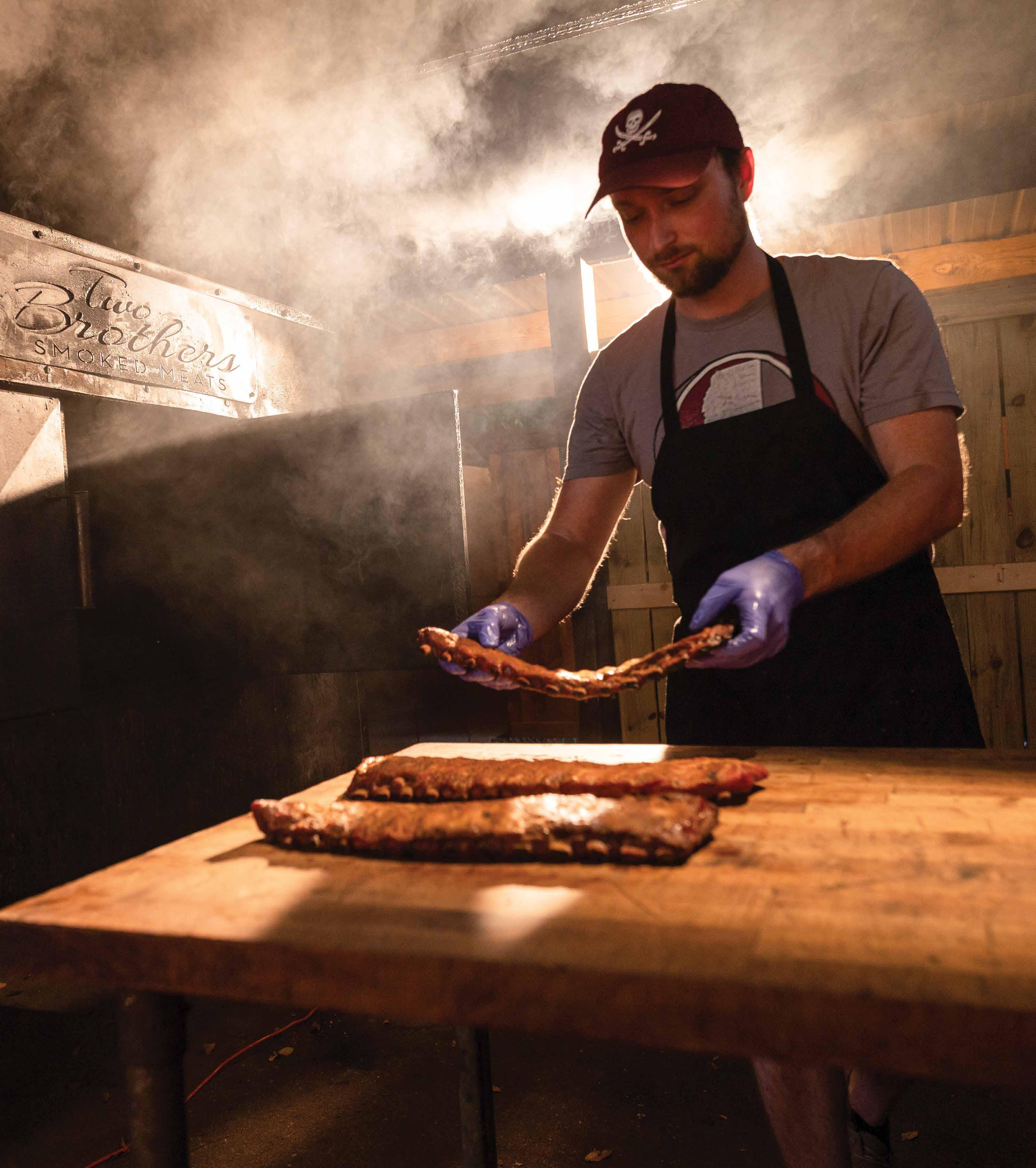
600 Russell Street
Starkville, MS 39759
www.alumni.msstate.edu

A POWERFUL POSITION
A first-generation college student, Christopher Robinson says it was dedicated mentors at MSU who helped him see how far he could go. Now a medical student at Harvard University, the biomedical engineering alumnus is just one of the success stories from the university’s Office of Prestigious External Scholarships. P. 22
